

101 Essential British Words and Phrases: Unlock the Secrets Now
- 11th February 2024
- Travel Language Guides , Travel

Introduction
Welcome to our blog on the vibrant and sometimes perplexing world of British English! If you’re planning a trip to the UK or just fascinated by the nuances of British culture, you’re in the right place. During my extensive travels across the UK, from bustling city streets to quaint countryside pubs, I’ve encountered a rich tapestry of language that is as diverse as it is charming. Whether I was hopping on trains, catching buses, or relaxing in cozy cafes, each experience was an opportunity to immerse myself in the local vernacular.
This blog is a culmination of those experiences, a guide to help you navigate the common British Words and Phrases that you might hear in everyday conversations. From asking for directions when you find yourself a bit lost, to ordering a meal in a restaurant, or simply having a chat with a local at a pub, knowing these terms will enrich your travel experience.
Join me as we explore the colloquial charm of British English , ensuring that on your next trip to England, you’ll feel right at home amidst the lively banter and unique British Words and Phrases. Let’s dive into the world of ‘cheers,’ ‘mate,’ and ‘brolly’ – your journey through the heart of British language starts here!
Family British Words and Phrases
Family life in Britain, with its own quirks and idiosyncrasies, is reflected in the language used to describe its members and dynamics. The British Words and Phrases here range from affectionate and playful to mildly cheeky, illustrating the close-knit yet light-hearted nature of family relationships. Understanding these British Words and Phrases provides insight into the familial bonds and interactions that are central to British culture.
Ankle-biter – /ˈæŋ.kəl ˌbaɪ.tər/
Sounds like: “ank-ul by-tur”
A small child, usually a toddler.
Example: “The park was full of ankle-biters enjoying the sunny day.”
Her indoors – /hɜːr ɪnˈdɔːrz/
Sounds like: “her in-dawrz”
A humorous and slightly outdated way to refer to one’s wife.
Example: “I’d better get home; her indoors will be wondering where I am.”
Old man/Old lady – /oʊld mæn/ /oʊld ˈleɪ.di/
Sounds like: “old man” / “old lay-dee”
Informal terms for one’s father and mother, respectively.
Example: “My old man used to work there in the ’60s.”
Sprog – /sprɒɡ/
Sounds like: “sprog”
Slang for a child or baby.
Example: “We’ve got two sprogs now, a boy and a girl.”
Dinky – /ˈdɪŋ.ki/
Sounds like: “ding-kee”
Dual income, no kids yet; refers to a couple without children but with two incomes.
Example: “They’re a dinky couple, both working in law.”
Expressions of Emotion or State British Words and Phrases
The British have a unique way of articulating feelings, whether it’s the satisfaction of a job well done or the exhaustion after a long day. These British Words and Phrases are a window into the British psyche, revealing how emotions are colorfully and often humorously expressed in everyday language.
“Chuffed” – /tʃʌft/
Sounds like: “chuffed” (with a soft ‘ch’ as in ‘chess’)
Proud or pleased.
Example: “I’m really chuffed with how my presentation went.”
“Gutted” – /ˈɡʌt.ɪd/
Sounds like: “gut-id”
To be very disappointed or upset.
Example: “I was absolutely gutted when I heard the concert was cancelled.”
“Knackered” – /ˈnæk.əd/
Sounds like: “nak-erd”
Very tired or exhausted.
Example: “I’m totally knackered after that workout.”
“Gobsmacked” – /ˈɡɒb.smækt/
Sounds like: “gob-smakt”
Astonished or amazed.
Example:”I was absolutely gobsmacked when I won the prize.”
“Miffed” – /mɪft/
Sounds like: “miffed”
Annoyed or upset.
Example: “She was really miffed that she wasn’t invited.”
“Jammy” – /ˈdʒæm.i/
Sounds like: “jam-ee”
Very lucky.
Example: “He won the raffle? What a jammy fellow!”
“Blimey” – /ˈblaɪ.mi/
Sounds like: “bligh-mee”
An expression of surprise.
Example: “Blimey, that was a close call!”
“Oh my gosh” – /oʊ maɪ ɡɒʃ/
Sounds like: “oh my gosh” (with the ‘o’ in ‘gosh’ as in ‘off’)
An expression of surprise, excitement, or disbelief.
Example: “Oh my gosh, I can’t believe you won the lottery!”
“Daft” – /dɑːft/
Sounds like: “daaft”
Silly or foolish.
Example: “Don’t be daft, that’s obviously not true.”
“Flummoxed” – /ˈflʌm.əkst/
Sounds like: “flum-ukst”
Confused, perplexed, or bewildered.
Example: “I was completely flummoxed by the puzzle.”
“Gormless” – /ˈɡɔːm.ləs/
Sounds like: “gorm-less”
Lacking intelligence or vitality; clueless.
Example: “He stood there looking completely gormless.”
Weather British Words and Phrases
Talking about the weather is more than just small talk in the UK; it’s a national pastime, thanks in part to the country’s famously unpredictable weather. The vocabulary used to describe British weather is as varied as the weather itself, ranging from ‘nippy’ mornings to ‘muggy’ afternoons. These British Words and Phrases are essential for anyone looking to understand the daily life and conversation in the UK, where the weather is always a relevant topic.
It’s chucking it down – /ɪts ˈtʃʌk.ɪŋ ɪt daʊn/
Sounds like: “its chuck-ing it down”
Raining very heavily.
Example: “Bring an umbrella; it’s chucking it down outside.”
Nippy – /ˈnɪp.i/
Sounds like: “nip-ee”
Chilly or cold weather.
Example: “It’s a bit nippy this morning, better wear a scarf.”
Overcast – /ˈoʊ.vər.kæst/
Sounds like: “oh-ver-kast”
Cloudy or dull weather, without sunshine.
Example: “It looks overcast today, I doubt we’ll see much sun.”
Muggy – /ˈmʌɡ.i/
Sounds like: “mug-ee”
Hot and humid weather.
Example: “It’s so muggy today, I’m sweating just sitting here.”
Brass monkeys – /bræs ˈmʌŋ.kiz/
Sounds like: “brass munk-eez”
Extremely cold weather (short for “cold enough to freeze the balls off a brass monkey”).
Example: “It’s brass monkeys out there; make sure you wear your warmest coat.”
“Parky” – /ˈpɑː.ki/
Sounds like: “par-kee”
Cold weather, usually when it’s a bit chilly outside.
Example: “It’s a bit parky out there, better wear a coat.”
Social Interactions British Words and Phrases
The essence of British social interaction lies in its understated humor, politeness, and a penchant for euphemism. This category encompasses the British Words and Phrases that grease the wheels of daily communication in the UK, from casual meet-ups to formal encounters. They demonstrate the British approach to socializing, where indirectness and wit often play a key role in conversation.
“Cheers” – /tʃɪəz/
Sounds like: “chee-uhz” (with a soft ‘r’)
Used commonly as a way to say “thank you” or as a toast when drinking.
Example: “Cheers for helping me move yesterday.”
“Mate” – /meɪt/
Sounds like: “mayt”
A friendly term for a friend or person.
Example: “How’s it going, mate?”
“Chinwag” – /ˈtʃɪn.wæɡ/
Sounds like: “chin-wag”
A chat or a gossip.
Example: “Let’s have a chinwag over a cuppa later.”
“Taking the piss” – /ˈteɪ.kɪŋ ðə pɪs/
Sounds like: “tay-king the piss”
Mocking or making fun of someone or something.
Example: “Are you taking the piss out of me with that offer?”
“Whinge” – /wɪndʒ/
Sounds like: “winj”
To complain persistently and in a peevish or irritating way.
Example: “He won’t stop whinging about the weather.”
“Kerfuffle” – /kəˈfʌf.əl/
Sounds like: “ker-fuff-uhl”
A fuss or commotion, especially one caused by conflicting views.
Example: “There was a bit of a kerfuffle outside the shop.”
“Did you” – /dɪd juː/
Sounds like: “did yoo”
Used to inquire or confirm something.
Example: “Did you see the match last night?”
“Oh really” – /oʊ ˈrɪə.li/
Sounds like: “oh ree-uh-lee”
Used to express surprise, skepticism, or interest in what someone is saying.
Example: “Oh really? I had no idea you’d been to France.”
“Beeb” – /biːb/
Sounds like: “beeb”
Nickname for the BBC (British Broadcasting Corporation).
Example: “I saw that documentary on the Beeb last night.”
“Guv’nor (Guv)”** – /ˈɡʌv.nər/ (Guv’nor), /ɡʌv/ (Guv)
Sounds like: “guv-nor” (Guv’nor), “guv” (Guv)
A respectful and somewhat informal term used to address a man, often in a working environment. It’s akin to saying “boss” or “chief.”
Example: “Morning, Guv! What’s on the schedule for today?”
“Brilliant” – /ˈbrɪl.i.ənt/
Sounds like: “bril-ee-uhnt”
Used to express approval or excitement.
Example: “That’s brilliant news about your job promotion!”
“Mugging me off”** – /ˈmʌɡ.ɪŋ miː ɒf/
Sounds like: “mug-ing me off”
A colloquial term meaning to treat someone as a fool or to disrespect them, often by deceiving or making fun of them.
Example: “I can’t believe he said that in front of everyone; he’s totally mugging me off.”
“Bloke” – /bloʊk/
Sounds like: “blohk”
Refers to a man.
Example: “I met this interesting bloke at the café.”
“Sorted” – /ˈsɔː.tɪd/
Sounds like: “saw-tid”
Arranged or organized.
Example: “I’ve arranged everything for the party, so we’re all sorted.”
“Ta” – /tɑː/
Sounds like: “tah”
Example: “Ta for the coffee, it was much needed.”
“Skint” – /skɪnt/
Sounds like: “skint”
Having no money; broke.
Example: “I can’t come out tonight, I’m completely skint.”
“Gob” – /ɡɒb/
Sounds like: “gob”
Mouth or to talk a lot, sometimes rudely.
Example: “Shut your gob! You’re making too much noise.”
“Gaffer” – /ˈɡæf.ər/
Sounds like: “gaf-er”
A way to refer to the boss or the person in charge.
Example: “Ask the gaffer if you can leave early today.”
“Poppycock” – /ˈpɒp.i.kɒk/
Sounds like: “pop-ee-kok”
Nonsense or foolish talk.
Example: “He said he could run faster than a car? What absolute poppycock!”
“Tosh” – /tɒʃ/
Sounds like: “tosh”
Nonsense or rubbish.
Example: “Don’t listen to him, he’s talking tosh.”
“Codswallop” – /ˈkɒd.zwɒl.əp/
Sounds like: “cods-wollop”
Nonsense or foolish talk, similar to “poppycock.”
Example: “That story about the ghost is complete codswallop.”
“Punter” – /ˈpʌn.tər/
Sounds like: “pun-ter”
A customer or user of services, often used in informal contexts.
Example: “The pub gets quite busy with punters on Friday nights.”
“Chinless wonder” – /ˈtʃɪn.ləs ˈwʌn.dər/
Sounds like: “chin-less wun-der”
A derogatory term for an upper-class or ineffectual person.
Example: “He’s such a chinless wonder, always talking but never doing.”
“Earwig” – /ˈɪə.wɪɡ/
Sounds like: “ear-wig”
To eavesdrop or listen in on someone’s conversation.
Example: “Stop earwigging on our conversation!”
“Jolly” – /ˈdʒɒl.i/
Sounds like: “jol-ee”
Very; used for emphasis, often in a cheerful context.
Example: “We had a jolly good time at the fair.”
Food British Words and Phrases
British cuisine, often unfairly maligned, is actually rich with history and flavor, and this is reflected in its colloquial language. From traditional dishes to modern culinary delights, the British Words and Phrases used in the context of food reveal much about the nation’s love for hearty meals and comfort food. Understanding these British Words and Phrases is not just about navigating a menu, but also about appreciating the cultural significance and the stories behind Britain’s favorite dishes.
Bangers and Mash – /ˈbæŋ.ɡərz ænd mæʃ/
Sounds like: “bang-ers and mash”
A traditional British dish consisting of sausages and mashed potatoes.
Example: “Let’s have bangers and mash for dinner tonight.”
Full English – /fʊl ˈɪŋ.ɡlɪʃ/
Sounds like: “full ing-glish”
A full English breakfast, typically including bacon, eggs, sausages, toast, beans, and tomatoes.
Example: “I’m starving – I could do with a full English.”
Toad in the Hole – /təʊd ɪn ðə hoʊl/
Sounds like: “toad in the hole”
A traditional English dish made with sausages in Yorkshire pudding batter.
Example: “My gran makes the best toad in the hole.”
Spotted Dick – /ˈspɒt.ɪd dɪk/
Sounds like: “spot-id dick”
A traditional British steamed pudding, containing dried fruit and often served with custard.
Example: “For dessert, how about some spotted dick?”
Bubble and Squeak – /ˈbʌb.əl ænd skwiːk/
Sounds like: “bub-ble and squeak”
A traditional British dish made from cooked potatoes and cabbage, mixed together and then fried.
Example: “We had bubble and squeak with our leftovers from Sunday roast.”
“Cuppa” – /ˈkʌp.ə/
Sounds like: “cup-ah”
Short for a cup of tea.
Example: “Do you fancy a cuppa?”
“Banger” – /ˈbæŋ.ər/
Sounds like: “bang-er”
Slang for a sausage; can also refer to a popular song or track.
Example: “We’re having bangers and mash for dinner.”
Clothes/Fashion British Words and Phrases
The UK has long been a trendsetter in the world of fashion, and this is mirrored in the unique vocabulary surrounding clothing and style. From the practical ‘wellies’ needed for a rainy day to the classic ‘mac’, these British Words and Phrases provide insight into the practical yet fashionable choices that characterize British attire. They reflect a blend of traditional sensibilities and modern flair that is quintessentially British.
Trainers – /ˈtreɪ.nərz/
Sounds like: “train-erz”
Sneakers or athletic shoes.
Example: “I’ve bought a new pair of trainers for the gym.”
Jumper – /ˈdʒʌm.pər/
Sounds like: “jump-er”
A sweater or pullover.
Example: “It’s chilly, so I put on my warmest jumper.”
Wellies – /ˈwel.iz/
Sounds like: “well-eez”
Wellington boots or rubber rain boots.
Example: “Put on your wellies; it’s muddy outside.”
Mac – /mæk/
Sounds like: “mak”
Short for a Mackintosh, mostly a waterproof raincoat.
Example: “Don’t forget your mac; it looks like rain.”
Trousers – /ˈtraʊ.zərz/
Sounds like: “trou-zers”
Example: “He wore his new trousers to the office today.”
“Brolly” – /ˈbrɒl.i/
Sounds like: “brol-ee”
Slang for an umbrella.
Example: “It looks like rain; don’t forget your brolly.”
Travel British Words and Phrases
Travel in the UK is an adventure filled with unique experiences, and the language used in this context is equally distinctive. From navigating the ‘Tube’ in London to understanding the difference between a ‘motorway’ and a ‘dual carriageway,’ these British Words and Phrases are crucial for anyone traveling across the UK. They not only assist in practical navigation but also immerse you in the local culture, where travel is often about the journey as much as the destination.
On the pull – /ɒn ðə pʊl/
Sounds like: “on the pull”
Trying to find a romantic partner, often when out socializing.
Example: “He’s on the pull tonight, looking for a date.”
To go walkabout – /tə ɡoʊ ˈwɔːk.ə.baʊt/
Sounds like: “to go walk-uh-bout”
To go on a long, unplanned walk; originally an Australian term.
Example: “He’s gone walkabout in the Lake District for a few days.”
Eating al fresco – /ˈiː.tɪŋ æl ˈfrɛs.koʊ/
Sounds like: “eating al fres-co”
Eating outdoors.
Example: “It’s such lovely weather; let’s eat al fresco.”
On your bike – /ɒn jɔːr baɪk/
Sounds like: “on your bike”
A way of telling someone to go away, somewhat rudely.
Example: “You think you can just cheat and get away with it? On your bike, mate!”
Queue up – /kjuː ʌp/
Sounds like: “kyoo up”
To line up or wait in line.
Example: “We had to queue up for an hour to get into the museum.”
Explore our blog on Porthcurno Beach Cornwall
Sports British Words and Phrases
Sports play a significant role in British culture, and this is reflected in the rich vocabulary related to various games and activities. Whether it’s the strategic moves in a game of football or the traditions of cricket, these British Words and Phrases provide insight into the nation’s favorite pastimes. They capture the excitement, camaraderie, and sometimes the friendly rivalry that sports bring into British life.
Nutmeg – /ˈnʌt.mɛɡ/
Sounds like: “nut-meg”
In football (soccer), a technique where the ball is played through an opponent’s legs.
Example: “He just nutmegged the defender!”
Sticky Wicket – /ˈstɪk.i ˈwɪk.ɪt/
Sounds like: “stick-ee wick-it”
Originally a cricket term for a difficult pitch to play on, now used to describe a tricky situation.
Example: “He’s on a sticky wicket with his boss after that mistake.”
Fancy Footwork – /ˈfæn.si ˈfʊt.wɜːrk/
Sounds like: “fan-see foot-work”
Skilful movement of the feet, especially in sports like football.
Example: “That player’s fancy footwork helped him dodge every opponent.”
On the ropes – /ɒn ðə roʊps/
Sounds like: “on the ropes”
Originally a boxing term, now used to describe being in a defensive and vulnerable position.
Example: “Their team’s been on the ropes since the second half started.”
Blinder- /ˈblaɪn.dər/
Sounds like: “blighn-der”
An outstanding performance or action.
Example: “He played a blinder in the match yesterday.”
Hat-trick – /ˈhæt.trɪk/
Sounds like: “hat-trick”
In cricket and football, achieving three successes in a row, like three goals or three wickets.
Example: “She scored a hat-trick in the last game.”
Work/Career British Words and Phrases
The workplace in the UK, with its own set of norms and etiquette, is encapsulated in these phrases. From the cheeky ‘skive off’ to the more formal ‘brass neck,’ understanding this vocabulary is key to grasping the nuances of British professional life. These British Words and Phrases reveal the balance between a strong work ethic and the equally valued need for humor and humility in the workplace.
Skive off – /skaɪv ɒf/
Sounds like: “skyv off”
To avoid work or responsibilities, often by pretending to be sick.
Example: “He’s not really ill; he’s just skiving off.”
Workie ticket – /ˈwɜːr.ki ˈtɪk.ɪt/
Sounds like: “work-ee tick-it”
Someone who is always trying to get out of work.
Example: “He’s a bit of a workie ticket, always leaving early.”
To get the sack – /tə ɡɛt ðə sæk/
Sounds like: “to get the sack”
To be fired from a job.
Example: “If you’re late again, you’ll get the sack.”
Up the duff – /ʌp ðə dʌf/
Sounds like: “up the duff”
Slang for being pregnant, often used in workplace gossip.
Example: “Did you hear? She’s up the duff and will be on maternity leave soon.”
Brass neck – /bræs nɛk/
Sounds like: “brass neck”
Having the audacity to do something bold or shameless at work.
Example: “He had the brass neck to ask for a raise after being late every day this week.”
Describing Situations or Things British Words and Phrases
This category encompasses a range of phrases used to describe various situations, objects, or conditions in the UK. These British Words and Phrases are a testament to the British knack for descriptive language, often infused with a touch of humor or understatement. From something being ‘dodgy’ to a situation that’s ‘pear-shaped,’ these British Words and Phrases are key to understanding how Britons perceive and articulate their everyday experiences.
“Dodgy” – /ˈdɒdʒ.i/
Sounds like: “doj-ee”
Something or someone that is suspicious or of low quality.
Example: “That looks like a dodgy deal to me.”
“Wonky” – /ˈwɒŋ.ki/
Sounds like: “won-kee”
Not right or unstable.
Example: “This table is a bit wonky, one leg is shorter than the others.”
“The Bee’s Knees” – /ðə biːz niːz/
Sounds like: “the bee’s knees”
Something that is excellent or of high quality.
Example: “This new phone is the bee’s knees.”
“The Dog’s Bollocks” – /ðə dɒɡz ˈbɒl.əks/
Sounds like: “the dog’s bollocks”
Something that is exceptionally good or impressive.
Example: “His new sports car is the dog’s bollocks.”
“Bob’s your uncle” – /bɒbz jɔːr ˈʌŋ.kəl/
Sounds like: “bobz yor un-kul”
Equivalent to “and there you have it.”
Example: “Just click here, and Bob’s your uncle, you’re logged in.”
“Snookered” – /ˈsnuː.kəd/
Sounds like: “snoo-kerd”
In a difficult situation with no easy way out; originally from the game of snooker.
Example: “I’m completely snookered with this project deadline.”
“Doddle” – /ˈdɒd.əl/
Sounds like: “dod-uhl”
Something very easy to do.
Example: “The exam was a doddle.”
“Naff” – /næf/
Sounds like: “naff”
Something that is a bit uncool or tacky.
Example: “That old car of his is really naff.”
“Loo” – /luː/
Sounds like: “loo”
Informal term for a toilet or bathroom.
Example: “Where’s the loo in this restaurant?”
“Plonk” – /plɒŋk/
Sounds like: “plonk”
Cheap or low-quality wine.
Example: “We just drank some cheap plonk at the party.”
“Tickety-boo” – /ˈtɪk.ɪ.ti.buː/
Sounds like: “tick-eh-tee-boo”
Everything is fine and in good order.
Example: “Don’t worry, everything’s tickety-boo!”
“Full Monty” – /fʊl ˈmɒn.ti/
Sounds like: “full mon-tee”
The whole thing or the complete version.
Example: “For breakfast, he went for the full Monty: eggs, bacon, toast, and beans.”
“Manky” – /ˈmæŋ.ki/
Sounds like: “man-kee”
Dirty, unpleasant, or poor quality.
Example: “These old shoes are getting a bit manky.”
“Nutter” – /ˈnʌt.ər/
Sounds like: “nut-er”
A crazy or eccentric person.
Example: “He ran through the streets in his pajamas? What a nutter!”
“Pear-shaped” – /ˈpeə.ʃeɪpt/
Sounds like: “pair-shaped”
Used to describe a situation that has gone wrong or developed problems.
Example: “The project went completely pear-shaped.”
“Dog’s dinner” – /dɒɡz ˈdɪn.ər/
Sounds like: “dog’s din-ner”
A mess or a situation that has been badly handled.
Example: “He made a real dog’s dinner of the presentation.”
“Higgledy-piggledy” – /ˌhɪɡ.əl.diˈpɪɡ.əl.di/
Sounds like: “hig-ul-dee pig-ul-dee”
In a confused or disordered state.
Example: “The books were stacked higgledy-piggledy on the shelf.”
“Iffy” – /ˈɪf.i/
Sounds like: “if-ee”
Doubtful or questionable.
Example: “The weather looks a bit iffy for the weekend.”
Verbs and Actions British Words and Phrases
Verbs and action phrases in British English often carry with them nuances that go beyond the mere action they describe. These British Words and Phrases reflect the subtleties of British communication, where indirectness and politeness often play a significant role. Whether it’s ‘fancying’ a cup of tea or ‘nicking’ something, these British Words and Phrases are integral to grasping the more active aspects of British speech and the behaviors they imply.
“Fancy” – /ˈfæn.si/
Sounds like: “fan-see”
To like or want something.
Example: “Do you fancy going to the cinema tonight?”
“Nicked” – /nɪkt/
Sounds like: “nicked”
Stolen or arrested.
Example: “He got nicked for shoplifting.”
“Leg it” – /leɡ ɪt/
Sounds like: “leg it”
To run away, usually quickly.
Example: “We had to leg it to catch the bus.”
“Waffle” – /ˈwɒf.əl/
Sounds like: “wof-uhl”
To talk on and on without getting to the point.
Example:
“He tends to waffle a lot during his lectures.”
“Kip” – /kɪp/
Sounds like: “kip”
A short sleep or nap.
Example: “I’m just going to have a quick kip before we go out.”
Slang Terms British Words and Phrases
British slang is a colorful and essential element of the language, offering a glimpse into the more informal and often humorous side of British English. These British Words and Phrases range from the money-related ‘quid’ to the quintessentially British ‘bollocks.’ Understanding these British Words and Phrases slang terms is crucial for anyone looking to fully comprehend everyday conversations in the UK and to connect with the more colloquial aspects of British culture.
“Quid” – /kwɪd/
Sounds like: “kwid”
Slang for the British pound sterling.
Example: “Can you lend me twenty quid until tomorrow?”
“Bollocks” – /ˈbɒl.əks/
Sounds like: “bol-uhks”
Nonsense or rubbish; can also express disbelief.
Example: “That’s complete bollocks! He never said that.”
Conclusion:
As we wrap up our linguistic journey through the charming and sometimes bewildering world of British Words and Phrases, I hope this blog serves as a valuable companion for your travels across the UK. The British Words and Phrases we’ve explored are more than mere vocabulary; they’re keys to unlocking richer, more authentic experiences in your interactions and adventures.
Whether you find yourself navigating the bustling streets of London, ordering a traditional meal in a Scottish pub, or simply asking for directions in a Welsh village, these common British Words and Phrases will help ensure your journey is smooth and filled with the warmth of local engagement. No more feeling like a deer caught in headlights when someone asks if you’d fancy a cuppa or when a friendly local tells you it’s ‘chucking it down’ outside.
Remember, language is the bridge between cultures, and even a few British Words and Phrases can go a long way in showing respect and interest in the places you visit. So, armed with your newfound knowledge of British colloquialisms, I hope you’ll feel confident and excited about your UK adventure. May your travels be filled with delightful conversations, new friendships, and the joy of discovery. Happy travels, and here’s to no more lost-in-translation moments!
Our latest UK travel Blogs

12 Best Amazing Reasons to visit Cotswold Motoring Museum, Bourton-on-the-Water

20 Best Amazing UK Tourist and Cultural Hotspots to Explore

Discover the 7 Broadstairs Bays ,the Best Beaches in Kent

8 Compelling Reasons to Visit Lower Slaughter: Discover the Heart of the Cotswolds

15 Must-See Secrets of Painswick – The Hidden Gems from the Queen of the Cotswolds

Top 7 Highlights of Birdland Park and Gardens,Bourton-on -the -Water

7 Top Haworth Steampunk Weekend Must -See Attractions

10 Captivating Porthcurno Beach Cornwall Highlights : Discover Cornwall’s Coastal Paradise

“Discover Weymouth: A Seaside Gem on the Jurassic Coast”

Rye, East Sussex: Unearthing the Historic Charm of the English Countryside

Deal, Kent: Exploring the Seaside Town with Timeless Charm

“Top 16 Hacks for Cheaper UK Train Travel!”
Share this:, you may also like, related posts.

- 24th March 2024

- 21st February 2024

- 4th February 2024
Leave a Reply Cancel reply
Discover more from my wanderlust adventures.
Subscribe now to keep reading and get access to the full archive.
Type your email…
Continue reading

Travelling or Traveling: What’s the Difference?
Home » Travelling or Traveling: What’s the Difference?
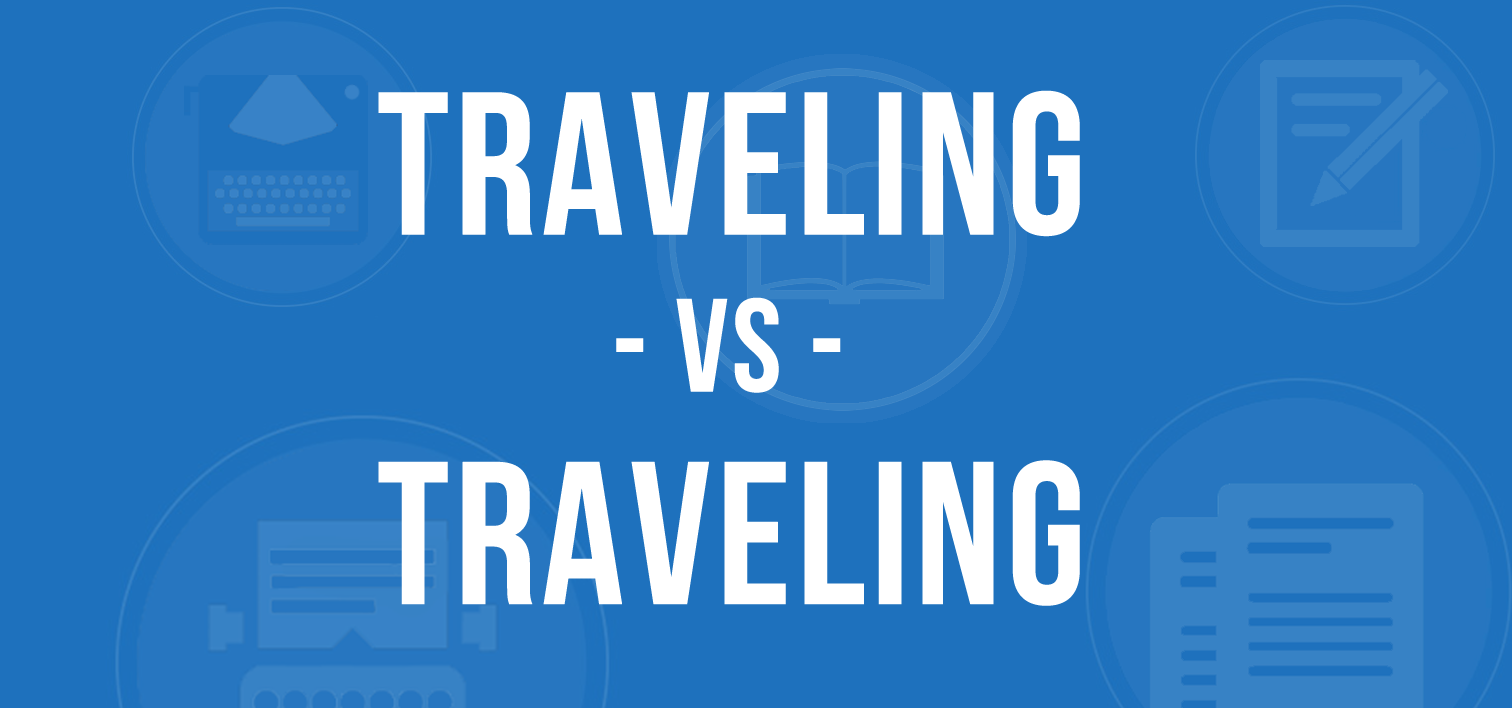
Are you taking a trip anytime soon? If so, where will you be traveling? Or is it travelling? How exactly do you spell this word?
The two words traveling and travelling can cause some confusion for those writers not exactly sure when to use which one. Are they just variations of the same word? Do they have different meanings? Do they function differently in a sentence?
In today’s post, I want to address all of these questions so you will never again wonder or second-guess yourself, “Is it travelling or traveling?”
The Difference Between Travelling and Traveling
Travelling and traveling are both verbs, obviously. To travel is to go from one place to another, as on a trip or journey. For example,

- When the traveling pub is taken off a trailer and put together in a lot near Milwaukee and California avenues, it will boast 400 feet of bar space. – Chicago Sun Times
- They travelled 5,000 miles from Myanmar to place a plaque in Seagrim’s native village of Whissonsett in eastern England. – Washington Post
- Under that analysis, completion of the mobility plan would result in about 35 million miles per day being traveled on L.A. surface streets in 2035. – L.A. Times
You’re probably still thinking, “Okay, I still don’t know how to use these words.”
The difference between traveling vs. travelling isn’t much of a difference at all, really.
In fact, the difference between them is entirely dialectal. There is no demonstrable difference of sense or function, meaning both words can be used interchangeably.
When to Use Travelling
Even though the only thing separating travelling and traveling is a dialectical difference, it is still important to keep your audience in mind when picking which word to use and when.
Travelling (with two Ls) is the preferred spelling in British English and is used much more frequently than is traveling . The graph below shows the use of travelling vs. traveling (as a percentage of all words used) in British English books, journals, and magazines from 1800 to 2008.
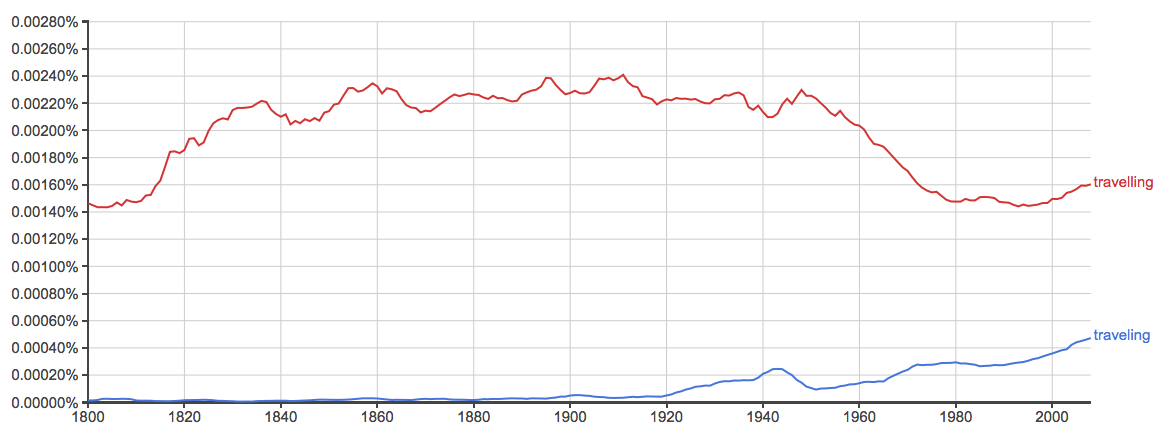
As you can see, travelling (with two Ls) clearly dominates in British English, being used at a rate of about 4:1.
Now, if we look at the same two words over the same time period but limit our search to American print sources, the results completely flip.
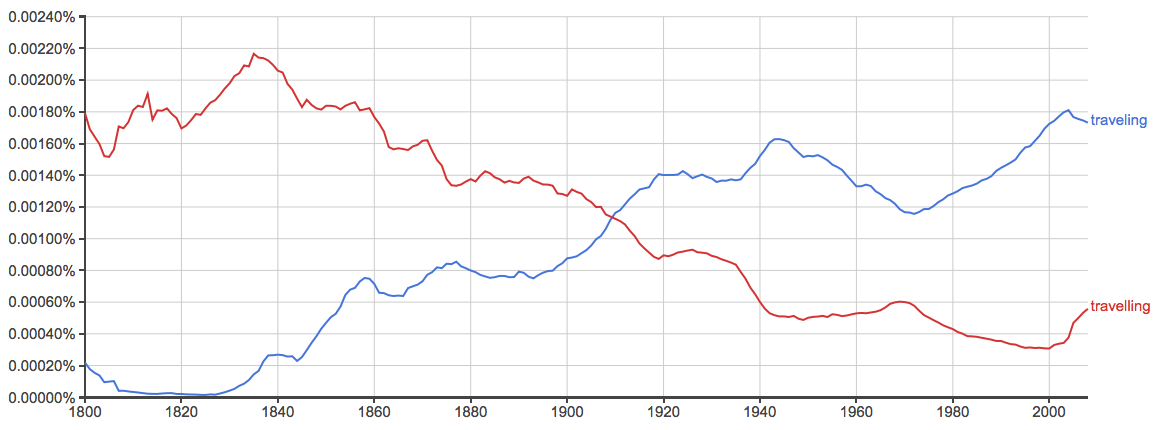
There’s actually a bigger gap between traveling and travelling in American English than there is in British English.
When to Use Traveling
As indicated in the above graph, traveled (with one L) is the preferred spelling in American English.
I’ve discussed the reason for the popularity of many shortened spellings in American English in other posts ( cancelled/canceled comes to mind ), but the basic reason stems back to Noah Webster himself.
He is usually credited with the shortening of many American spellings because in his original 1898 dictionary, he sought to simplify many British spellings he saw as unnecessary. This is where the British-American divide over words like color/colour came from.
Anyway, the point is, if you are writing to an American audience, traveling (with one L) is your best choice.
Remember the Difference – Traveling or Travelling?
One simple way to keep track of these two words is that the shorter spelling is American. If you can keep in mind that, generally speaking, British English favors (favours) the longer spelling of words, you will be able to remember the difference between these words.
It is also worthwhile to note that all of the distinctions in this post apply equally to travelled vs. traveled, traveled vs. travelled, traveller vs. traveler, traveler vs. traveller, etc.
Summary – Traveling vs. Travelling
Is it traveling or travelling? That depends on where you are writing and who is your audience.
- Travelling is the preferred spelling in British English.
- Traveling is the preferred spelling in American English.
Whether you’re talking about travelled or traveled or traveller or traveler, these same preferences still apply.
Grammarflex

“Traveling” or “Travelling” (Which Spelling is Correct?)
- February 12, 2024

Traveling or travelling?
The verb travel , which is to “go from one place to another, especially over a long distance”, uses different spellings based on UK English and US English:
- British English spells “ travelling ” with the double “L”.
- American English spells “ traveling ” with one “L”.
The same goes with other verb forms of “travel” in the past tense i.e., traveled and travelled ; or as a noun, traveler and traveller .
Other words (like traveling or travelling)
Word forms of travel.
Other verb/noun forms also conform to the same spelling rules based on US/UK English:
Sentences with traveling/traveling (present participle)
The travelling / traveling public have had enough of fare increases.
She grew up in a travelling / traveling family.
The birds are travelling / traveling south for the winter.
She enjoys travelling / traveling around Europe.
Sentences with traveled/travelled (past tense)
They travelled / traveled cross-country from New York to California.
The pain travelled / traveled down his back.
They travelled / traveled on the bus to and from work together.
Synonyms of travel
- peregrinate (to travel especially on foot)
Phrases with travel
- travel light
- travel-sick/travel sickness
- travel agent or agency
Origin of the word travel
Etymonline on travel :
Late 14c., “to journey,” from travailen (1300) “to make a journey,” originally “to toil, labor”. Replaced Old English faran . Related: Traveled ; traveling . Traveled (adj.) “having made journeys, experienced in travel” is from early 15c. Traveling salesman is attested from 1885. —Etymonline, travel.
Read more about US English vs. UK English
- Harper, Douglas. “Etymology of humor.” Online Etymology Dictionary, Accessed 12 February, 2024.
- “Peregrinate.” Merriam-Webster.com Dictionary, Merriam-Webster, https://www.merriam-webster.com/dictionary/peregrinate . Accessed 12 Feb. 2024.
Recent Posts

“Beck and Call” or “Beckon Call”? Which is Correct?
Meaning of ‘beck and call’ ‘To be at someone’s beck and call‘ is an idiomatic expression that describes being immediately available or ready to be

What’s the Meaning of the Word “Connotation”?
Ever catch bad vibes from a text? That feeling or internal response you have from the actual words to communicate it, is its connotation; which

What’s the Difference Between Ambiguous & Ambivalent?
Are ambiguous and ambivalent the same? Something ambiguous (an adjective) is unclear, vague and open to different interpretations. To be ambivalent (also an adjective) means

When to Use Have or Had? (Explained with Examples)
When should you use “have” or “had”? When is it correct to use have, has, or had? Phrased differently, what’s the past tense of have?

What’s the Past Participle? (Explanation & Usage)
The past participle is a form of a verb that can appear as an adjective, or be used to form specific tenses and the passive

Emigrate vs. Immigrate (Meaning + Examples)
Meaning of emigrate vs. immigrate To immigrate is the verb form of the noun immigrant; referring to someone that’s moved away from their birth country

Recurring vs. Reoccurring (Correct Usage, + Examples)
Did you have a recurring or reoccurring dream? If you’re finding the difference between these two words befuddling, then this post is for you. How

What’s the Difference Between Nevertheless vs. Nonetheless?
Nevertheless vs. nonetheless Nevertheless and nonetheless are synonyms that both belong to the same part of speech; i.e, they’re compound adverbs that express contrast. There

Assent or Ascent (or Accent?)
When to use assent, ascent and accent The differences between assent, ascent and accent: Assent may be a noun or a verb: the former refers
Travel Vocabulary for English-Language Learners
With a follow-up quiz for extra practice
- Basic Conversations for English Language Learners
- Pronunciation & Conversation
- Writing Skills
- Reading Comprehension
- Business English
- Resources for Teachers
- TESOL Diploma, Trinity College London
- M.A., Music Performance, Cologne University of Music
- B.A., Vocal Performance, Eastman School of Music
The travel-related words below are the most important terms to know when talking about travel or taking vacations . Words are categorized into different sections depending on the type of travel. You'll find example sentences for each word to help provide context for learning, as well as a short quiz at the end to test your knowledge.

Air Travel Vocabulary and Sample Sentences
Airport : I went to the airport to catch a flight to San Francisco. Check in : Make sure to get to the airport two hours early to check in. Fly : I like to fly on the same airline to get mileage points. Land : The airplane will land in two hours. Landing : The landing took place during a storm. It was very scary! Plane : The plane is packed with 300 passengers. Take off : The airplane is scheduled to take off at 3:30 p.m.
Vacation Travel Vocabulary and Sample Sentences
Camp : Do you like to camp in the woods? Destination : What is your final destination? Excursion : I'd like to take an excursion to the wine country while we're in Tuscany. Go camping : Let's go to the beach and go camping next weekend. Go sightseeing : Did you go sightseeing while you were in France? Hostel : Staying in a youth hostel is a great way to save money on vacation. Hotel : I'll book a hotel for two nights. Journey : The journey will take four weeks and we'll visit four countries. Luggage : Can you carry the luggage upstairs? Motel : We stayed in a convenient motel on our way to Chicago. Package holiday : I prefer to buy package holidays , so I don't have to worry about anything. Passenger : The passenger felt ill during the voyage. Route : Our route will take us through Germany and on to Poland. Sightseeing : The sightseeing in this town is rather boring. Let's go shopping . Suitcase : Let me unpack my suitcase and then we can go swimming. Tour : Peter went on a tour of the vineyard. Tourism : Tourism is becoming an important industry in almost every country. Tourist : Every May, many tourists from around the world come to see the flower festival. Travel : Travel is one of his favorite free time activities. Travel agent : The travel agent found us a great deal. Trip : The trip to New York was lovely and interesting. Vacation : I'd love to take a nice long vacation on the beach.
Overland Travel Vocabulary and Sample Sentences
Bicycle : One of the best ways to see the countryside is to ride a bicycle. Bike : We rode a bike from shop to shop. Bus : You can catch a bus for Seattle at the bus station. Bus station : The bus station is three blocks from here. Car : You might want to rent a car when you go on vacation. Lane : Make sure to get into the left lane when you want to pass. Motorcycle : Riding a motorcycle can be fun and exciting, but it's also dangerous. Freeway : We'll have to take the freeway to Los Angeles. Highway : The highway between the two cities is quite lovely. Rail : Have you ever traveled by rail? Go by rail : Going by rail offers the opportunity to get up and walk around as you travel. Railway : The railway station is down this street. Road: There are three roads to Denver. Main road : Take the main road into town and turn left at 5th Street. Taxi : I got in a taxi and went to the train station. Traffic : There's a lot of traffic today on the road! Train : I like riding on trains. It's a very relaxing way to travel. Tube : You can take the tube in London. Underground : You can take the underground in many cities throughout Europe. Subway : You can take the subway in New York.
Sea / Ocean Travel Vocabulary and Sample Sentences
Boat: Have you ever piloted a boat? Cruise: We will stop at three destinations during our cruise through the Mediterranean. Cruise ship: It's the most elegant cruise ship in the world! Ferry: Ferries allow passengers to take their cars with them to their destination. Ocean: The Atlantic Ocean takes four days to cross. Port: There are all kinds of commercial ships in the port. Sailboat: The sailboat requires nothing but the wind. Sea: The sea is very calm today. Set sail: We set sail for the exotic island. Ship: Have you ever been a passenger on a ship? Voyage: The voyage to the Bahamas took three days.
Travel Vocabulary Quiz
Test your knowledge by taking this short quiz.
- destination
- your mindset
- conversation
- have a beer
- all answers are correct
- all the answers are correct
- Family-Related Vocabulary for English-Language Learners
- Vocabulary Quiz - Travel
- Reporting Verbs for English Language Learners
- Sports Vocabulary for English Learners
- Travel Vocabulary
- Hobbies Vocabulary for English Students
- Media Vocabulary for English Learners
- Education Vocabulary for English Learners
- Spanish Vocabulary for Planes and Airports
- Indirect Speech in the English Language
- Dating and Marriage Vocabulary in English
- Vocabulary Lesson: French for Travelers
- Advertising Vocabulary for English Learners
- German for Travelers: The Basic Travel Phrasebook
- How Do You Rate as an Expert of the English Language?
- Driver Education Key Vocabulary for English Learners
You are using an outdated browser. Please upgrade your browser or activate Google Chrome Frame to improve your experience.
Travel English Phrases You’ll Need for Your Next Trip
English is essential for communication in most countries.
Wherever you are going, you need to have a good grasp of the basics of the language to get around and communicate at the airport, hotel and everywhere in between.
This post has dozens of travel English phrases to help you navigate any foreign country. Learn what they mean and how you can use them!
At the Airport
On the airplane, arriving at your destination, riding public transportation, at the hotel, at a restaurant, sightseeing, emergencies, and one more thing....
Download: This blog post is available as a convenient and portable PDF that you can take anywhere. Click here to get a copy. (Download)
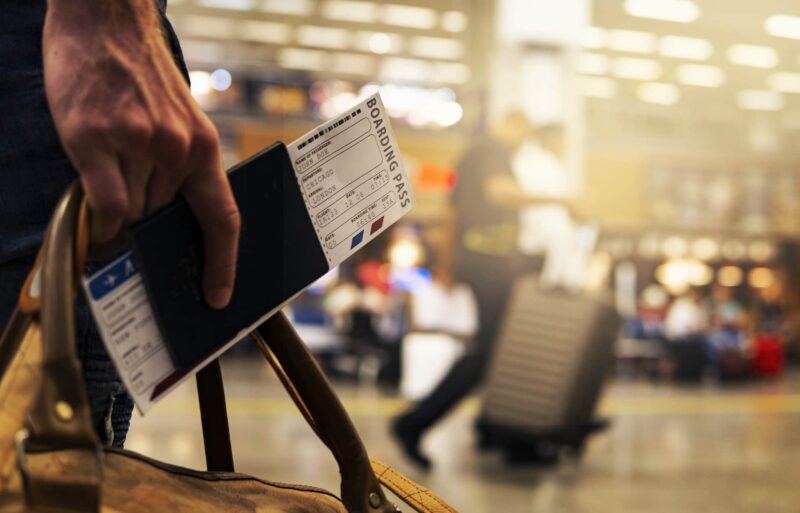
Excuse me, how do I… ?
If you are flying for the first time, you will need information on how to:
- Check in. When you check in , you are letting the airline know you have arrived. If the person you are talking to tells you to go to the check-in counter, you can follow up this question with “how do I get to the check-in counter?” to get directions. At the check-in counter, you present your ticket , a document that allows you to get your boarding pass. The boarding pass, in turn, will allow you to board (ride) your airplane.
- Board the airplane. If you are not sure about what you should do before you get on a plane and during your flight, you can ask the airline staff about this.
Where is the… ?
You will likely ask for general directions to one or more of the following:
- Information desk. As you can guess from the name, the information desk is where you can learn everything you need to know about getting around the airport. You can even ask for a map (a picture guide of the area) from them.
- Gate. A gate is where you will enter to get to the airplane. It is also the place where you wait before boarding your flight. The gate is usually written on your boarding pass.
- Restroom. A restroom is a place where you take care of personal business like combing your hair, washing your face or using the toilet. Depending on the country you are visiting, this room may also be called a bathroom , washroom, comfort room, loo or toilet .
- Charging station. If your phone has low or no battery, these places can get your device’s battery up to 100 percent again.
- Restaurant. If you feel hungry while waiting for your flight, you can visit a restaurant where you can eat in the meantime.
How do I get to… ?
Although they both seem to ask for directions, there is a slight difference between “where is the… ?” and “how do I get to… ?”
“Where is the… ?” will get you a general answer like “(The place you want to go to) is at Building A.”
Meanwhile, “how do I get to… ?” asks for specific directions, so the person you are talking to will reply with “From here, you turn left, and when you see this sign, turn right…” and so on.
What time is my flight?
Often, it may not be clear what time your specific flight is—in which case, this question will be useful.
What items am I allowed to bring on board?
Airlines usually have rules on what you can and cannot take into the airplane.
How much luggage am I allowed to carry on?
Your luggage includes all the bags you are bringing with you for the flight. Airlines often have limits on how much and how heavy your luggage should be.
Are meals included?
A meal is a collection of food served at one time. Not all airlines provide meals, so it may be good to ask if you will get these before you board.
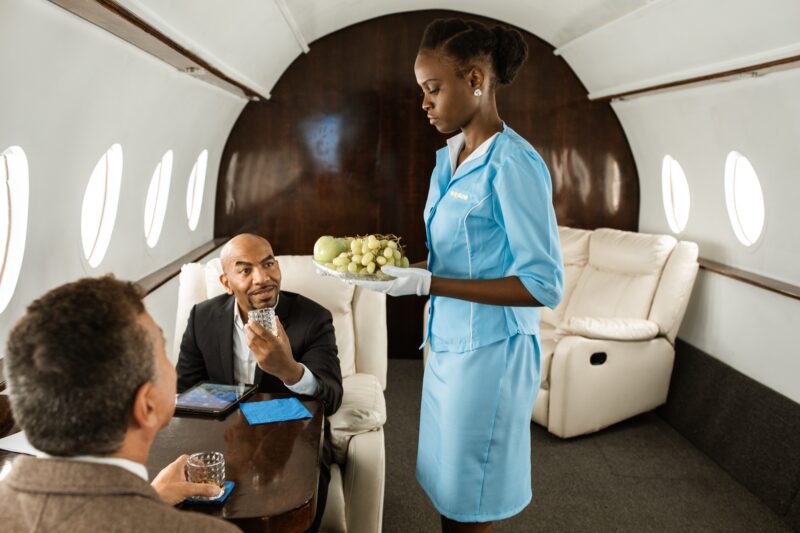
Excuse me, can you please help me put my luggage away?
Airplanes have baggage compartments or closed spaces above each of the seats. You can ask the flight attendant, an airplane employee in uniform who is usually female, to help you put your luggage in its compartment.
Can I please change my seat?
Once you get on the plane, you may want to change your seat because other seats are more comfortable, have a better view, etc.
How much does… cost?
You can ask about the cost of anything you want to buy like the following:
- water bottle
- snack (a small meal)
I would like… , please.
This phrase is the standard and polite way to ask for something that is usually free or something you do not have to pay for. For example, if you are thirsty, you might say “I would like a glass of water, please.”
Does my seat have… ?
For example, if you want a device to return your phone’s battery charge at or above acceptable levels, you can say “does my seat have a charging port ?” And if you want to move the seat back so you can lie down, say “does my seat have a recline button ?”
Excuse me, I need to…
There are a few things you can ask permission for on a plane. You can say “Excuse me, I need to…”
- Get out of my seat
- Use the restroom
- Move my luggage
What time is it?
This is a standard question for figuring out what time of the day it is. It is useful when you are flying over different time zones and when the plane finally lands.
For more vocabulary and phrases related to air travel, take a look at this post—it’s aimed at flight attendants, but you’ll learn a thing or two as well!
Knowing English for flight attendants is essential in today’s interconnected world. These 60+ English words and phrases will prepare you for the job before, during and…
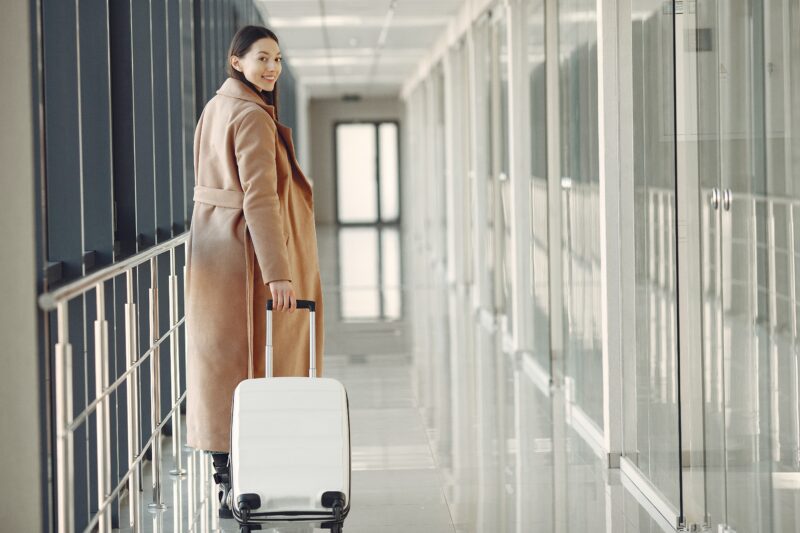
Once you are at your destination (the place you are visiting), some of the useful phrases you can use are the following.
Just like at the airport when you first arrived, “Where is the… ?” and “How do I get to… ?” are useful phrases when you are at your destination.
Some of the places where you might need directions are:
- Baggage claim area. Remember when you checked in your luggage? This is the place where you claim or get it.
- Currency exchange. A currency exchange is a place where you take the money you use in your own country and get it changed to the money used at your destination.
- Bus stop. Finding a bus stop will be especially helpful if you want to find a cheap way to get around. Asking “where is this bus going?” can also help you know if you are riding the right bus.
- Taxi / Taxi stand. No bus? Take a taxi instead, which is also called a cab in some places. You can usually find a group of taxis at taxi stands.
- Hotel. Of course, you should provide the name of your specific hotel.
- Immigration or customs. Immigration or customs is the place where you have to explain why you came to a country and tell officers what your intentions are.
Sorry, I do not understand what you are saying.
This phrase will help native English speakers know English is not your first language. You can also say “I do not speak English very well” and ask them to “please speak slowly” if you are still having trouble.
I recommend that you prep before you go by studying authentic English media like movies and TV shows. These can help you prepare for real interactions in English.
FluentU takes authentic videos—like music videos, movie trailers, news and inspiring talks—and turns them into personalized language learning lessons.
You can try FluentU for free for 2 weeks. Check out the website or download the iOS app or Android app.
P.S. Click here to take advantage of our current sale! (Expires at the end of this month.)

Try FluentU for FREE!
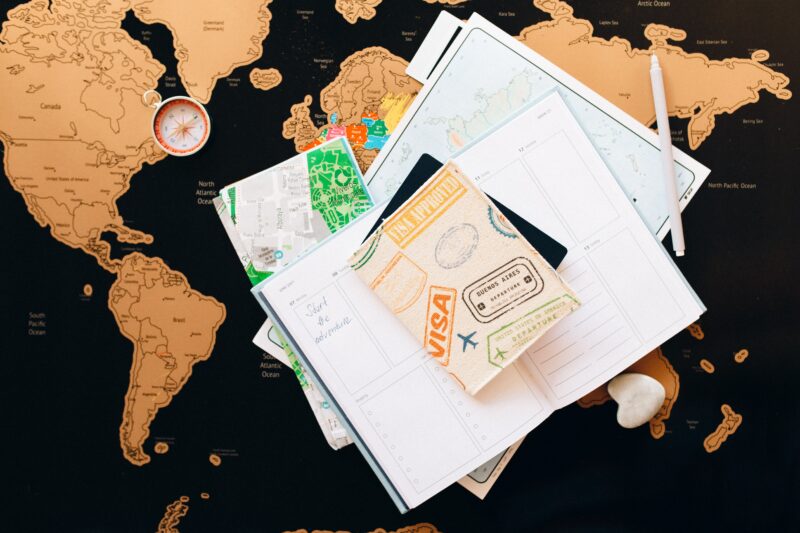
I have items to declare.
Aside from explaining why you are in a certain country, you also have to declare (make a formal or official statement on) the items that you may need to pay duties (taxes on items from another country) for.
If you do not have such items, you can simply say “I have nothing to declare.”
I have a connecting flight.
This is how you say you will board another plane to go somewhere else.
I am traveling for…
Depending on why you came to the country, you can say you are traveling for:
- Leisure. Say this if you are traveling because you are on vacation.
- Work. Say this if you are traveling because your company asked you to .
- Family. If you are traveling because you are visiting relatives, let the customs officer know.
I will be here for… days.
You will need to provide the number of days you will be staying in the country, like “I will be here for 90 days.”
If you have it, you can also show your visa , a document that proves you are allowed to enter the country for a certain purpose within a certain period.
I am staying at…
The customs officer may ask you where you will be sleeping. You can say “I am staying at (the name of your hotel)” or “I am staying at (the address of your family or friend in the country).”
Check out more airport vocabulary here .
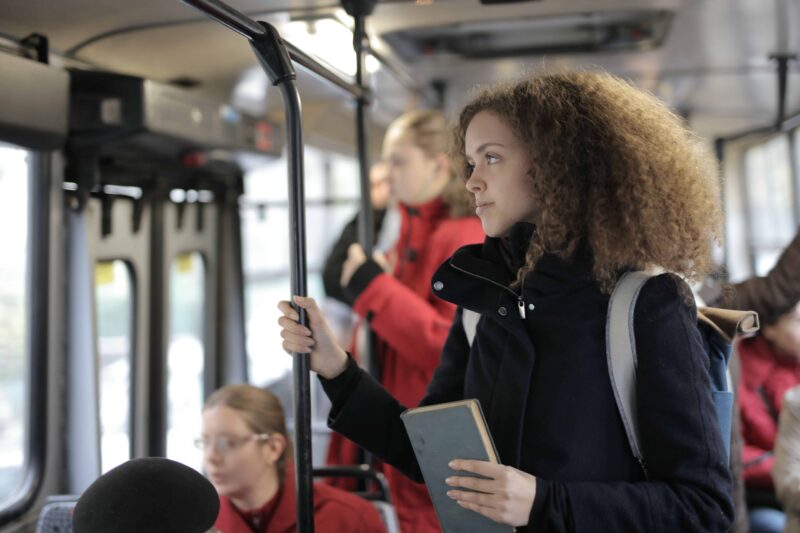
Now that you have arrived, you need to know how to get around. Here are some useful phrases you can use whether you are riding a bus, train or any other form of public transportation.
Does this go to… ?
Before you get on a bus or train, ask whether it is going to the place you want to go. If the driver says no, you can ask “how do I get to… ?” and take note of the directions they give you.
How long does it take to get to… ?
Here, you are asking how many minutes, hours, etc. it will take for the vehicle to get to your destination.
How much is the fare?
The fare is the price of riding your public transport.
“Do you accept… ?”
End this question with a mode of payment , which includes cash and cards .
Excuse me, is this seat taken?
This phrase is useful if you see someone with an empty seat beside or near them, but you want to be 100% sure they do not have a companion.
I missed my stop. Can you please let me know when we are at the next one?
In an ideal world, traveling would go smoothly. But sometimes, things like not being able to get off at your stop happen! Luckily, you can use this phrase to get you out of a pickle (get you out of trouble).
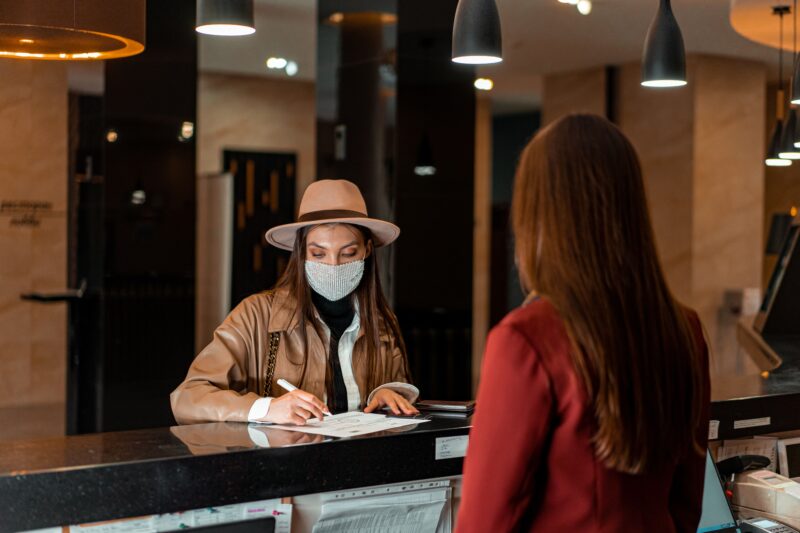
Of course, if you are staying with friends and family, you can skip this section. But if you will stay at a hotel, keep the following phrases in mind.
Greetings! I have a reservation under the name of…
End the phrase with your full name or the name you used to make your reservation.
When you get to your hotel, go to the front desk. It is easy to find because that is usually where you will first meet the hotel’s employees. Also, that is where the other guests will probably be!
You want to confirm that you have a reservation first—that is, proof that you have a room at the hotel where you are staying. Otherwise, you have to look for somewhere else to stay.
What is included in my reservation?
This question asks what services you have already paid for. Of course, there is your room, but you may also want to check for other things like breakfast, pool, spa, etc.
What time is check-in / check-out?
Since you will not be staying at the hotel all the time, you will want to know what time you can check in and check out.
Check in means the time you will be allowed to enter your room, while check out means the time you should leave your room.
Does the room have a… ?
You may also want to know about your room’s amenities (things to help make your stay more convenient and comfortable). For example:
- Bathroom / restroom. Again, the correct term for this place depends on where you are.
- Refrigerator / fridge. A refrigerator or “fridge” is a place to keep your food and drinks cold. Keep in mind that you may have to pay extra for any food or drinks you take out of hotel refrigerators.
- Wi-Fi. Wi-Fi is simply a wireless internet connection. You should probably also ask for the Wi-Fi password. ( “What is the Wi-Fi password?” )
- Air conditioner. An air conditioner is a piece of equipment that cools a room.
How many beds are in the room?
This question will help you know if there is enough space to sleep for the number of people in your hotel room.
What floor am I on?
A floor in this situation refers to the level of the hotel.
If you are on a high floor (like the 30th, for example), you may want to use the elevator , the device that lifts and lowers you between floors of the hotel, to help you get to your room.
My room needs…
Most of the time, housekeeping (the people who clean the room) will make sure you have everything you need. Should they forget, you can say “My room needs…” and finish with:
- Towels. Towels are soft, thick materials you use to dry yourself after taking a bath.
- Toilet paper. Toilet paper are thin white sheets rolled up on tubes. They help you wipe yourself in the bathroom.
- Bedsheets. “Bedsheets” is a term that includes pillowcases, blankets and all the other pieces of cloth that cover your bed.
Could I please have room service ?
As a guest, you can request services by saying “Could I please have… ?” For example, you can request room service , where someone will come up to your room to deliver food, drinks and other things you may need.
Where is the best… around here and how do I get there?
Since the hotel employees are locals, they will probably know the area more than you do.
Before you check out of your hotel, you can use this phrase and replace “…” with:
- Grocery store. Grocery stores are places where you can buy most types of items.
- Hospital. If you or someone you are traveling with gets sick or injured, you need to know where to go.
- Bank. If you run out of money, you may need to go by a bank to get more.
- Restaurant. Make sure you ask for a restaurant that offers local cuisine or food.

A table for two, please.
The number indicates how many people will be eating with you at the restaurant. It does not have to be just two: it can be any number of people with and including you.
I would like to drink…
Finish this phrase with the name of the drink you want. Popular drinks are:
- soda pop (carbonated sweet drinks)
May I see a menu?
A menu will help you decide what you want to eat.
I would like to order, please.
Once you have decided what to eat and drink, raise your hand and wait for a waiter to come to your table. Then, say this phrase to indicate that you are ready to order or ask questions about the food.
Could you recommend any popular dishes?
This is a good question to ask if you are not sure what to order.
May I ask if you have dishes that are… ?
You may prefer certain foods to others for personal reasons. For example, you can finish the question with any of the following:
- Vegetarian / Vegan When you say that dishes are vegetarian , that means they are mostly made of plant-based ingredients. When you say they are vegan , it means they do not have any animal ingredients (even eggs or milk!) at all.
- Halal. If you are a Muslim, you want to make sure that what you eat does not go against the laws of your religion. You may need to explain what ingredients make a food halal or haram , though.
Can you tell me about any potential allergens in this dish?
Allergens are ingredients in your food that can cause you to have a negative reaction. It may be a good idea to ask about these before you order a dish. The last thing you want is to not enjoy your meal because you got sick!
Can I please have… ?
Fill in the blank with an item off of the menu or one of these items:
- Appetizer. An appetizer is a small dish you eat before the main course (meal).
- Soup. Soup is a common way to start meals.
- Salad. If it is too warm for soup, try a salad!
- Dessert. A dessert is a sweet dish you eat after the main course.
- A glass of water. If you are not interested in any particular drinks, a glass of water is always a good option.
- Extra sauce / salt / spice. If you think your dish could use a little more sauce, salt or spice, you can ask if you can have more.
Can I ask for a refill?
The word refill comes from the prefix re- (which usually means “to repeat”) and fill . If your glass of water is empty and you want more, you can ask for a refill so your empty glass will have water again.
May I have the bill?
The bill indicates how much you have to pay after you eat the meal. Make sure to ask for this. In some restaurants, the waiters will not bring it to your table unless you ask.
If you want more useful English phrases to use in restaurants, check out this post on ordering food in English .

Of course, your trip would not be complete without souvenirs or items you buy to remember the place you visited! To make the most of your visits to shops, here are a few phrases to keep on hand.
Excuse me, where can I find… ?
Finish the question with what you are looking for.
Excuse me, how much is this?
This is a standard phrase for asking the price or cost of items.
Do you offer discounts?
When you ask for discounts , you are asking if the item comes at a lower price. Usually, the discount is shown in percentages (%). For example, if an item is $10 and there is a 50% discount on it, the final price would be $5.
Do you have a sale?
Another way to save money is to watch out for sales or events when you can buy items for much lower than their original cost.
Does this come in a bigger / smaller size?
If you are buying clothes, you may not be able to find something that fits you. In that case, use this phrase to check if they have your size. You can also ask “can I try this on?” to make sure the piece of clothing really fits!
What is your return and exchange policy?
Sometimes, you end up buying an item that you do not like or has defects (something wrong with it). A return and exchange policy allows you to either return (give back) the item to the store or exchange (switch or change) it with a similar one.
What forms of payment do you accept?
Here, you are asking if they accept cash, cards or any other form of payment you have on hand.
Can you recommend something similar to this?
If you find something you like but not quite or you want more varieties (colors, sizes, etc.) of the same item, this is a good question to ask.
For more shopping vocabulary you should know, go here .

Aside from the stores, you also want to check the sights and sounds of your destination! For those, here are the phrases you can use.
Where is the visitor information center?
The visitor information center is where you can get everything you need to know about an area—maps, landmarks, restaurants, shops, etc.
Excuse me, can you tell me what attractions I should check out around here?
There may be so many attractions in the area, you will not know where to start. This question can help you make your itinerary or travel plans for the day.
Are there any guided tours for this area?
Then again, you may not need to explore the area on your own. With a tour guide , you can plan where you want to go, get information on each attraction and even some interesting tidbits (facts) about them!
Are there any rules and restrictions I should know?
As a visitor, the last thing you want is to get into trouble. You want to know what you should do (the rules) and what you should not do (the restrictions).
Can you take a photo of me in front of… ?
A trip is not complete without pictures you can post on social media! There are times when you may want to take pictures of yourself in front of a site and that is where this phrase comes in.
Are there any events or festivals around here?
If you want to enjoy the place the way the locals do, this is a question you should ask.
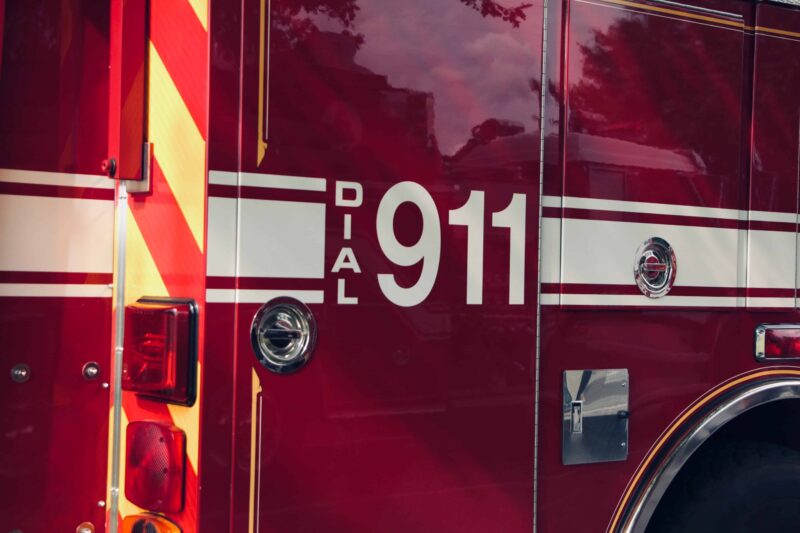
Even with careful planning, you may encounter some problems with your travels. Here are some phrases to help you out if something bad happens.
I have lost my…
End this phrase with any valuables (important items) you lose, such as:
- Passport. If you lost your passport, you need to find an embassy or state organization that represents your home country in the place you are visiting. To ask for directions to the embassy, say “where is the embassy for… ?” and end the question with your country’s name in English.
- Wallet. If someone stole your wallet or something else from you, you need to contact the local police , the organization responsible for dealing with crimes. In the United States, for example, you can call 911 on a phone.
- Way. When you say you have lost your way , you mean you are not sure where you are and where you should go. If you have a destination in mind, you can say “how do I get to… ?” and end the question with where you want to go.
If something bad is happening to you, calling out this word will get people’s attention and—hopefully—get you the help you need.
I feel…
Sometimes, the people who come to help you may need more information about what you need help with. For example, you could say “I feel…”
- Dizzy / Faint. Dizzy or faint means your head feels light, as though it is being turned around and around.
- Sick. If you do not feel well in any way, you should say “I feel sick.”
If your body hurts, you can also say “I am in pain.”
With these travel English phrases, you should be able to get around most countries without much trouble.
Enjoy your trip!
If you like learning English through movies and online media, you should also check out FluentU. FluentU lets you learn English from popular talk shows, catchy music videos and funny commercials , as you can see here:

If you want to watch it, the FluentU app has probably got it.
The FluentU app and website makes it really easy to watch English videos. There are captions that are interactive. That means you can tap on any word to see an image, definition, and useful examples.

FluentU lets you learn engaging content with world famous celebrities.
For example, when you tap on the word "searching," you see this:

FluentU lets you tap to look up any word.
Learn all the vocabulary in any video with quizzes. Swipe left or right to see more examples for the word you’re learning.

FluentU helps you learn fast with useful questions and multiple examples. Learn more.
The best part? FluentU remembers the vocabulary that you’re learning. It gives you extra practice with difficult words—and reminds you when it’s time to review what you’ve learned. You have a truly personalized experience.
Start using the FluentU website on your computer or tablet or, better yet, download the FluentU app from the iTunes or Google Play store. Click here to take advantage of our current sale! (Expires at the end of this month.)
Enter your e-mail address to get your free PDF!
We hate SPAM and promise to keep your email address safe

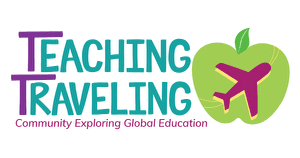
Traveling or Travelling? Which is Correct Spelling?! Learn Here…
By: Author Lillie Marshall
Posted on Published: January 25, 2020 - Last updated: January 11, 2023
Is it Traveled or Travelled ?
Traveler or traveller , traveling or travelling .
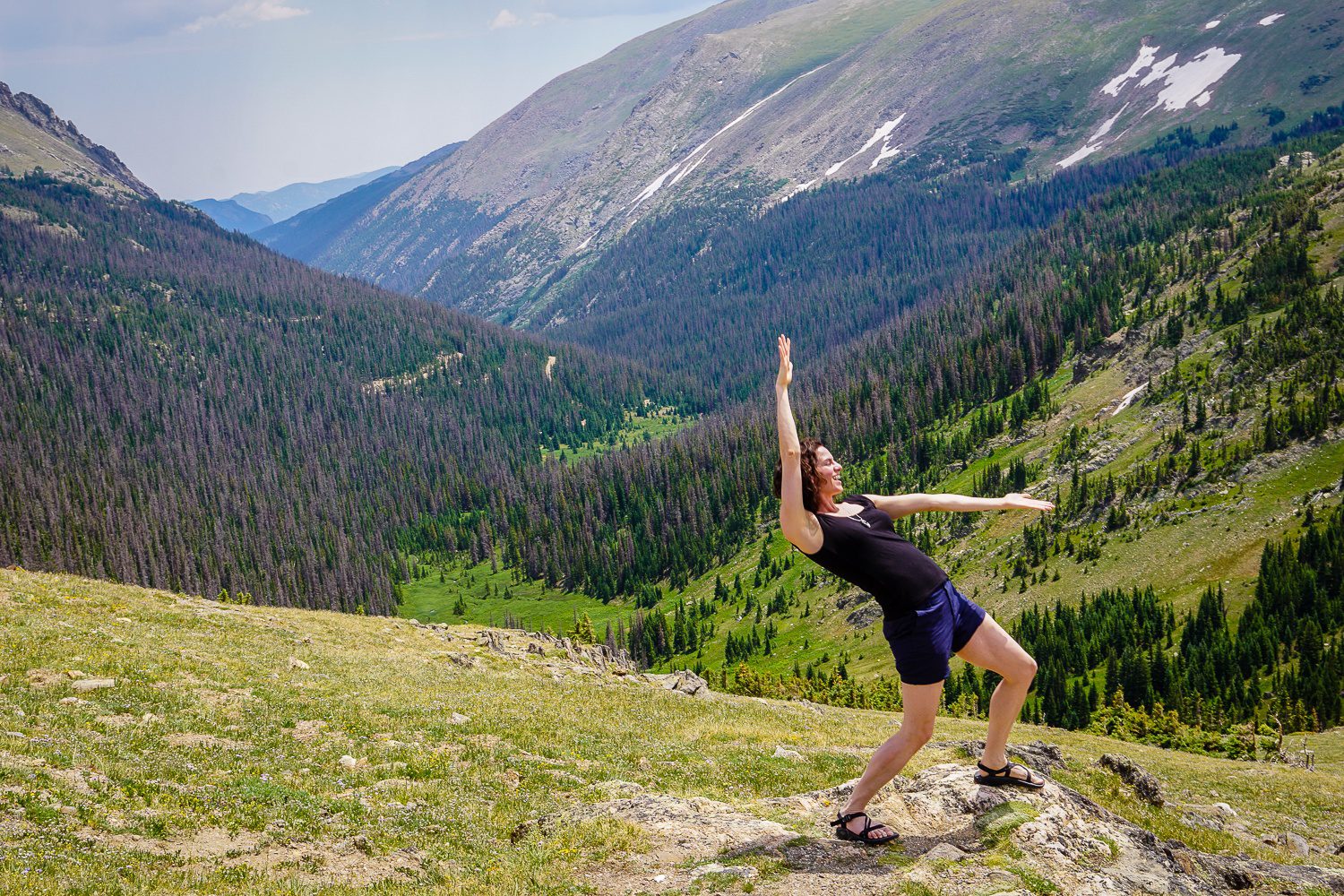
Answer: The spelling depends on WHERE you are in the world.
Now, the main purpose of this site is to share teacher travel grants and other global education opportunities, but I couldn’t resist creating this grammar article, because the “Traveling” spelling question comes up often, and causes kerfuffles.
I’ve been a full-time English teacher since 2003, so allow me to (ahem, pun coming) SPELL out the “Traveling or Travelling” rule for you in order to spread confidence and accuracy in the world.
Hey — it might even help in editing your applications for teacher fellowships , or assist in determining the correct way to structure a spelling lesson if you decide to teach English abroad !

Traveling vs. Travelling = U.S. vs. British Spelling
It’s all about geographical linguistics, my friends! The United States (and other countries that use American English spelling conventions) are in the “ one L ” boat for spelling.
In other words, if you’re in New York, or writing for a New York audience, what is correct is to write: “ Traveling ” because that’s the American spelling. If you’re in London, or writing for a London audience, tap: “ Travelling ” into your keyboard.
The same goes for all versions of Traveler/Traveller, and Traveled/Travelled: One “L” for countries that use American spelling, and two for places that embrace British English writing conventions. Simple !

Canada: Traveling or Travelling?
Wait… maybe it’s not THAT simple. What about Canada? That country is geographically close to the U.S. and thus should use just one “L,” right? Wrong .
Canada is one of the Commonwealth Countries: more than 50 nations that once were part of the British Empire. Hence, Canada uses the double – L rule, and if you’re in Quebec City , the correct spelling is: Travelling .
Other Commonwealth Countries that use the “two L” spelling (Travelled, Traveller, and so on) include Australia, South Africa, and New Zealand.
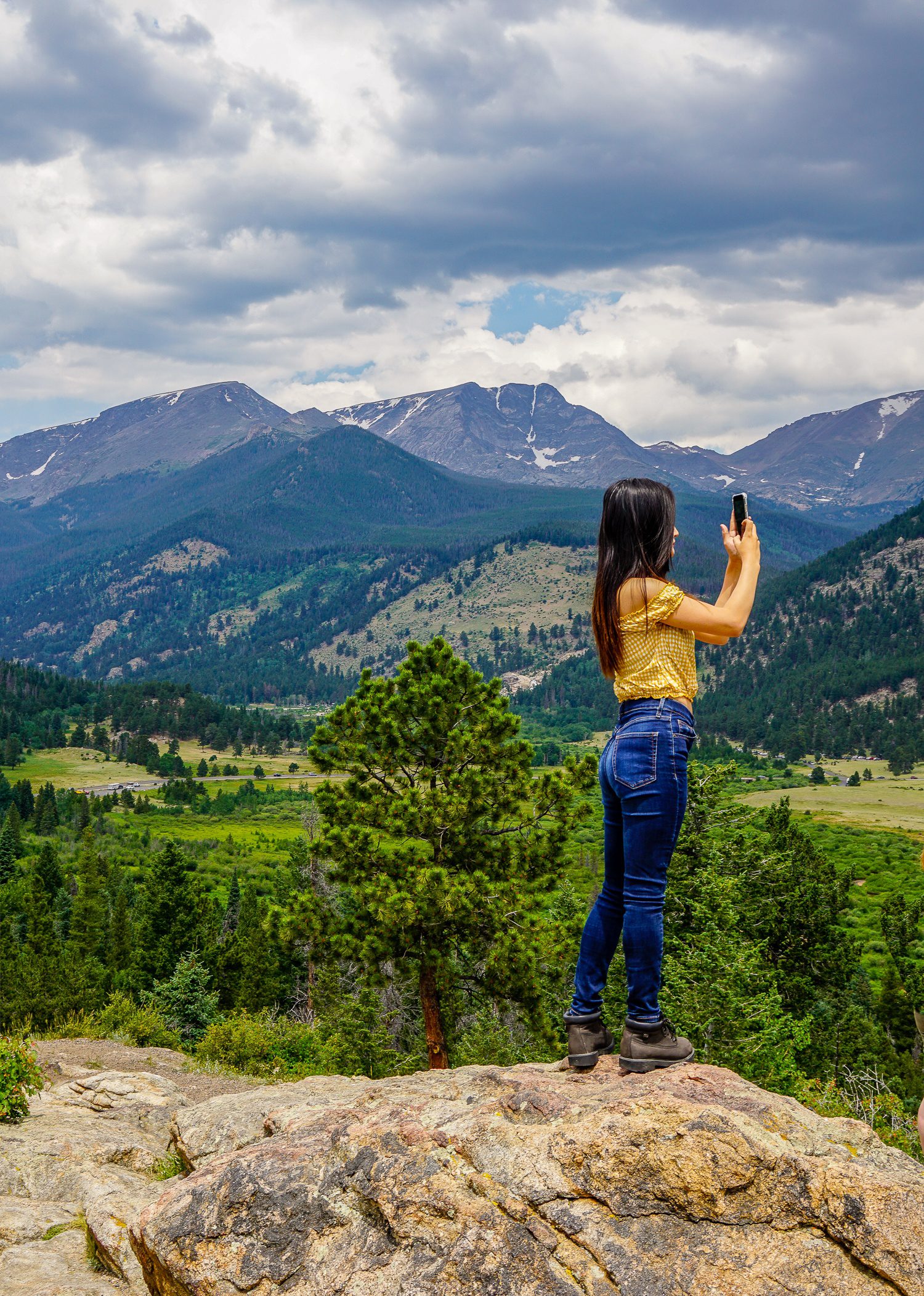
Is this Site Teaching Traveling or Travelling ?
The reason this site is called Teaching Traveling with ONE “L” is because I’m American , and my readership is predominantly American. (The one “L” thing is also a nice connection to the fact that my other site is called Around the World “L” !)
Alas, when things get tricky is when geographical worlds start to mix. This issue may pop up for you, too, so let’s address it directly.

What About a Mix of American and British Contexts?
Chances are you may find yourself in a situation where it’s unclear whether you should use the American or British version of our favorite “T” word. What then?
Here’s a frequent example I encounter on this site: If a British teacher types her answers to my interview questions using the double-L spelling, Travelling , do I go in and “ correct ” every instance of it to the single-L version ?
My American spell-checker sure thinks I should, and in fact is yelling at me to fix it at this very moment, its jaggedy red teeth bared!
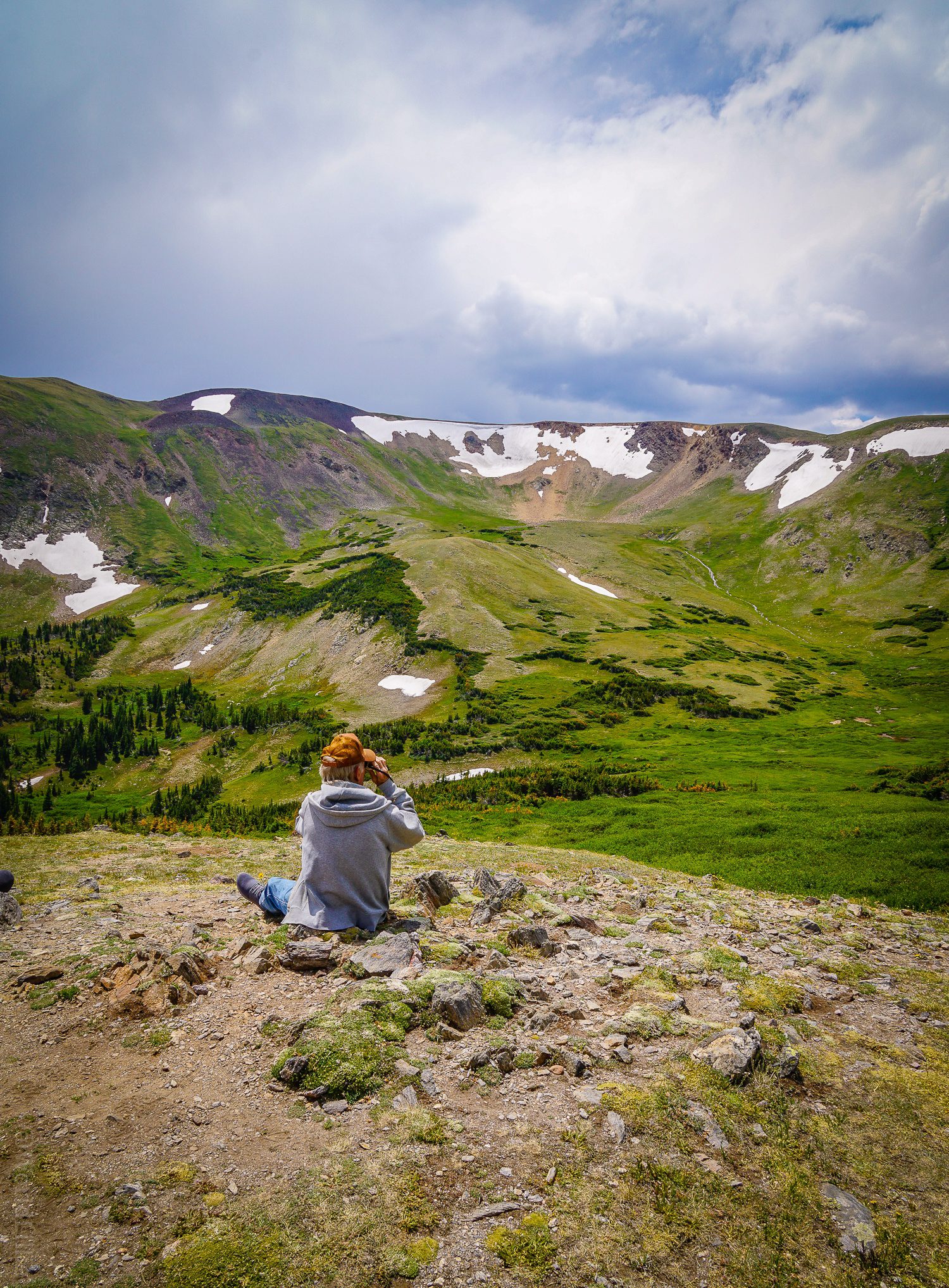
Should Travelling be Changed to Traveling ?
So what’s the answer to this two-context spelling dilemma? You have two choices, and either can be justified, depending on what your audience genuinely needs and wants.
Option #1 : Pick one spelling and stick to it throughout your body of work. In my case, if I chose this option, I would change all spelling on this site to the American one-L “Traveling.”
Sometimes I do this, clicking through all the U.S. spell-check suggestions to “fix” the British double L, because the article is one I know will mostly reach U.S. readers who might be confused by the unfamiliar spelling. Usually, however, I opt for the other option.
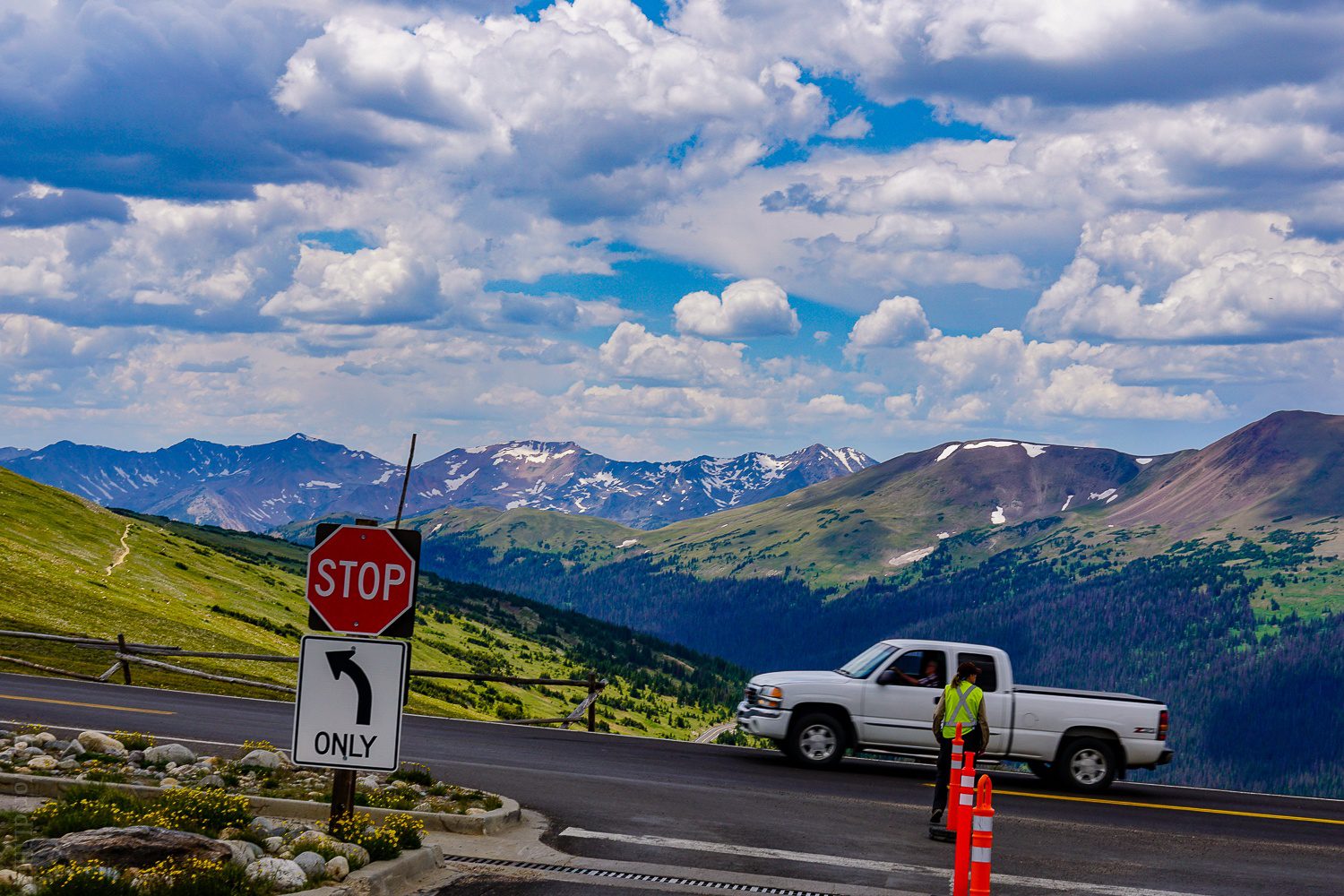
When to Keep “Travelling” Spelling
Option #2 : Change between “Travelling” and “Traveling” based on what the majority audience of the piece is expecting.
This option is what I chose to do for interviews with these teachers from Canada and Ghana , because I decided that readers would understand that the “Travelling” spelling was correct in the context of the British English country the speakers were from.
I also knew that the interviewees would also be sharing the articles with their friends, who in turn were used to the double-L spelling. In other words, it wouldn’t be correct for me to “correct” their British spelling in that situation.
Avoiding Traveling vs. Travelling
Bonus Option : Really stuck for whether to use Traveling or Travelling? If your piece is short enough, alter word choice so you don’t need to use either! For example, instead of saying, “I’m a traveller,” write, “I’m a person who loves to travel.” Kind of sneaky and sometimes silly, but if you’re really stuck, it’s an option.
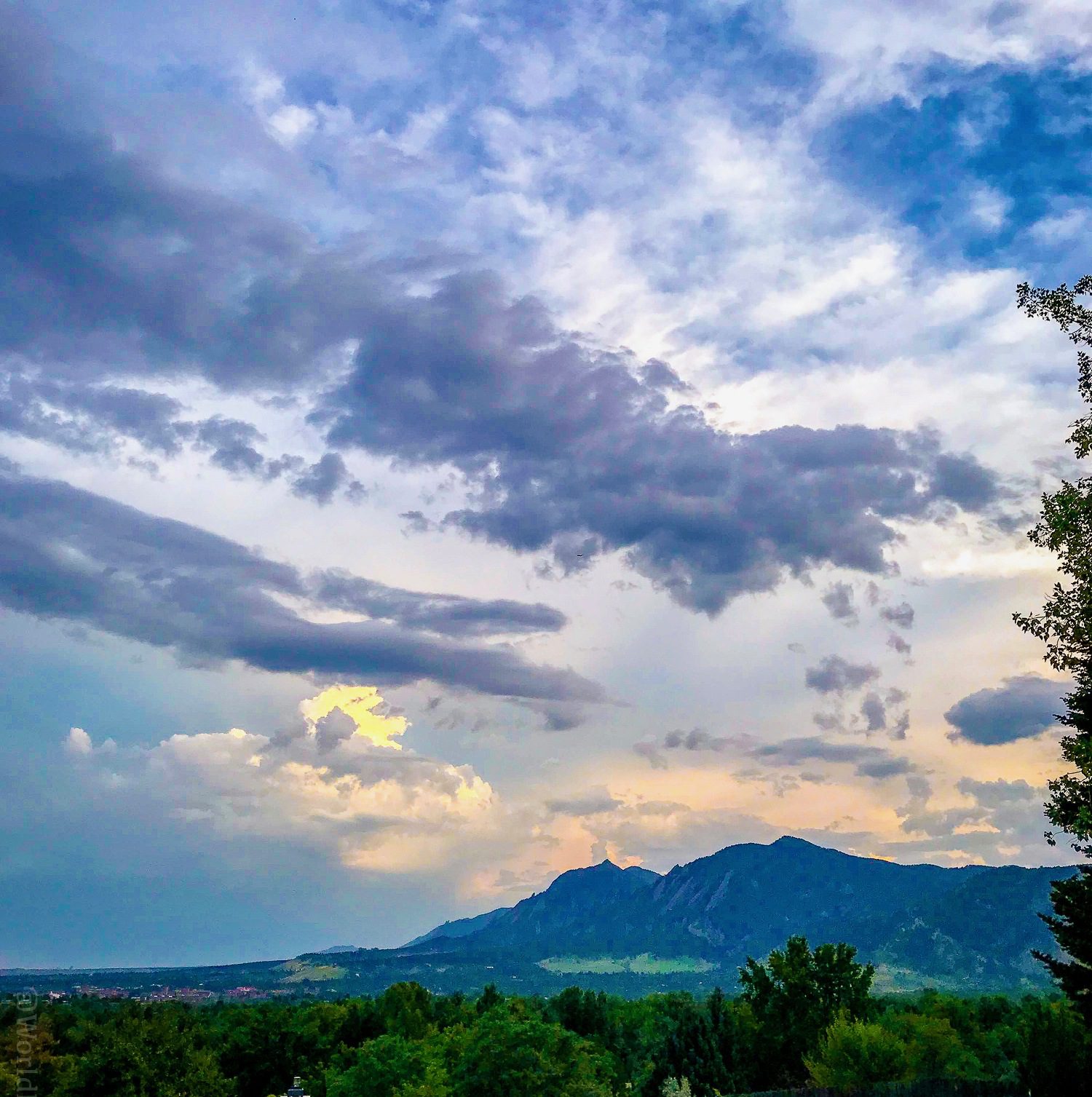
So, Traveling or Travelling?
In summary, it comes down to this: What does the specific audience of your written piece need and expect? Who you are and where you’re from becomes secondary to who they are and what they need.
That’s kind of deep , eh?
I hope you enjoyed this grammar lesson and found it useful. It’s the first one I’ve written (well, besides a tutorial on how to use the word “ Dushi “), and I must say that I found it so fun to write that I might just start putting down more of my 15 years of English teaching knowledge into articles…
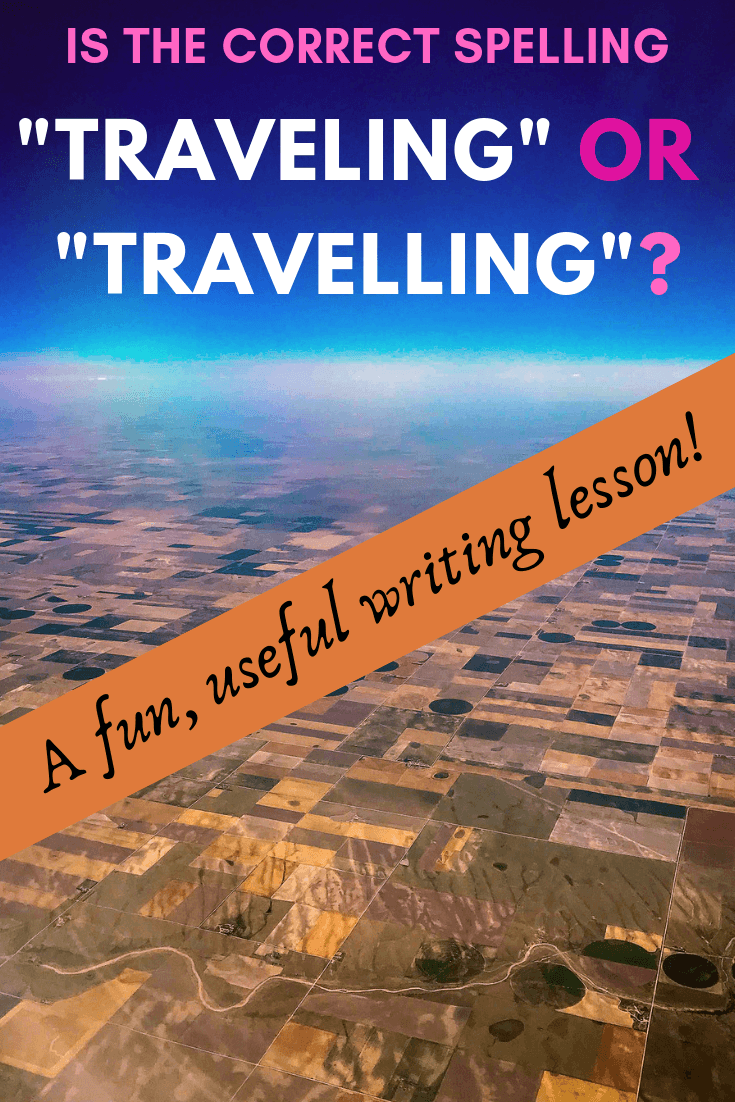
So what about you? What’s been your experience with the Traveling/Travelling divide? Did you know this rule before, and how did you learn it?
Are there other grammar, writing, or global education lessons you’d like to see on these pages? Do share!

The author, Lillie Marshall, is a 6-foot-tall National Board Certified Teacher of English from Boston who has been a public school educator since 2003. She launched TeachingTraveling.com in 2010 to share expert global education resources, and over 1.6 million readers have visited over the past decade. Lillie also runs AroundTheWorld L.com Travel and Life Blog, and DrawingsOf.com for educational art. Do stay in touch via subscribing to her monthly newsletter, and following @WorldLillie on social media!
Check this box to receive email notification of follow-up comments!
This site uses Akismet to reduce spam. Learn how your comment data is processed .
Monday 4th of January 2021
Thank you, Lillie! This was so helpful! I first learned English in Canada and often find myself "mixing up" American and British rules. It wasn't until recently that I learned that Canadian spelling is independent and consisting of both American and British rules! (normally including the "double L" rule and the "z" in words like specialize).
Lillie Marshall
So glad this helped! Very interesting that Canada uses a hybrid of British and American spellings, including the Z swap!
Tuesday 8th of September 2020
Lol I do have this issue in India is a Commonwealth country. Similarly, we have colour and color. Now I can say as long as you understand but when my kids were schooling I was after them for British spellings.
So interesting! Thank you for sharing!
Randy Franciose
Saturday 29th of August 2020
I misspelled this word on my wife's grave marker and only noticed my error yesterday, a year after she died. Does this imply she was an Anglophile or merely that her widower is a deficient speller?
Monday 11th of January 2021
@Lillie Marshall, Agreed!
Sunday 30th of August 2020
Never fear -- what you wrote was written with love and that's what matters!
Tuesday 28th of April 2020
When I was in Elementary School in the 1960's we were taught the double L rule. This was in the US.
Wednesday 11th of August 2021
@John, Same here. In Pennsylvania in the 1960's and 1970's, I was taught the double L rule, and still use it.
This is so interesting!!! Thank you for sharing this information. Do we think conventions changed over the years?
M Nazmul Huq Talukder
Tuesday 4th of February 2020
Yes, i faced problems while spelling this word.
Saturday 22nd of February 2020
Hope this helps!
Traveling or Travelling – Which Is Correct?
Marcus Froland
March 28, 2024
Ever found yourself pausing mid-sentence, pen hovering over the page or fingers stalled on the keyboard, wondering if it’s “traveling” or “travelling”? You’re not alone. This common conundrum trips up many of us, sowing seeds of doubt every time we try to jot down our adventures or share tales of our journeys. It’s a tiny difference, just one letter, but it holds the power to make us second-guess ourselves.
The truth is, both spellings are correct — but there’s a catch. The choice between them isn’t as arbitrary as it might seem; it hinges on something you might not have considered. And no, we’re not going to spill the beans just yet. By the end of this article, you’ll not only know which spelling to use when but also understand why it matters more than you might think.
When it comes to writing the word for moving from one place to another, both “traveling” and “travelling” are correct. The difference lies in where you are or who your audience is. In the United States , people prefer to use one ‘l’, making it “traveling”. However, in countries like the United Kingdom, Canada, and Australia , adding an extra ‘l’ is the norm, so it’s “travelling”. This variation is because of different spelling rules in American and British English. So, next time you write about your adventures, remember to consider who will be reading it. If your readers are mainly from the U.S., go with “traveling”. If they’re from other English-speaking parts of the world, “travelling” might be more appropriate.
The American and British Spelling Dilemma
The unique paths of language development and educational standards in the United States and the United Kingdom contribute to the spelling variations witnessed in American vs. British English . One such example is the difference in spelling of the word “traveling” in American English and “travelling” in British English. While these discrepancies might appear minor, they play a significant role in the localization of written content and reflect the cultural influences in each variant of the English language.
At the heart of the American and British spelling dilemma is the influence of Noah Webster, an American lexicographer, grammarian, and language reformer who advocated for a simplified spelling system that distinguishes American English from British English. His efforts resulted in several modifications, including changes to the way “traveling/travelling” and related words are spelled.
Let’s take a closer look at the spelling differences between American and British English:
These spelling variations can be attributed to the language discrepancies , which impact not only the spelling of individual words but also the English spelling rules that govern written communication in both American and British English.
“As an American, I may spell the word ‘traveling’ with a single ‘l,’ but my friends from the United Kingdom insist on using the double ‘l’ spelling of ‘travelling.’ It’s fascinating to see the impact of cultural and historical factors on our language usage.”
To understand and appreciate the diverse nature of the English language and its spelling conventions , it’s essential to explore the factors that contributed to the divergence between American and British English. By familiarizing yourself with these variations, you can better cater your written content to different audiences and ensure the appropriate use of language.
Understanding the Spelling Discrepancy: A Historical Perspective
The spelling discrepancy between “traveling” and “travelling” has its roots in the English language history and the linguistic evolution that occurred as American and British English took different paths. Noah Webster, a renowned American lexicographer, greatly influenced the development of American English spelling conventions with his advocacy for spelling reform.
Some of these reforms included reducing double consonants to a single consonant in certain words, such as changing “travelling” to “traveling,” in an effort to simplify and differentiate American English from its British counterpart. This linguistic change had a lasting impact on the spelling of numerous words in American English, including “traveler” instead of “traveller” and “canceled” instead of “cancelled.”
“Language is the expression of ideas, and if the people of one country cannot preserve an identity of ideas, they cannot retain an identity of language.”
Noah Webster
In addition to simplifying spellings, Webster sought to create a distinct American linguistic identity that would set it apart from British English. His dictionary, An American Dictionary of the English Language , was published in 1828 and became a standard reference for American English.
- Historical Influences : American and British English evolved differently due to geopolitical factors, such as political separation and cultural influences.
- Spelling Reforms : Noah Webster sought to differentiate and simplify American English spellings, including changing double consonants to a single consonant, e.g., “travelling” to “traveling.”
- Webster’s Dictionaries : Webster’s dictionary publications helped spread his spelling ideologies, playing a crucial role in shaping American English spelling conventions .
By understanding the historical underpinnings and the reasons behind spelling discrepancies like “traveling” versus “travelling,” writers can make informed decisions on which spelling to use based on their audience and the regional linguistic preferences. The legacy of Noah Webster’s influence on American English continues to thrive, as seen in the American English spelling conventions employed today.
The Grammar Behind “Traveling” and “Travelling”
Understanding the difference between American and British English spelling conventions when it comes to multisyllabic words like “traveling” and “travelling” is essential for writers across the globe. In this section, we will dive into the grammar rules that determine final consonant doubling , stress pattern rules , and suffix addition rules in both American and British English.
When to Double the Final Consonant in American English
In American English, the general rule for doubling the final consonant when adding a suffix depends on whether the ending syllable is stressed or not. If the final syllable of a word is stressed and it ends in a vowel followed by a consonant, the consonant is usually doubled. However, since the stress in “travel” is on the first syllable, the ‘l’ is not doubled when adding a suffix. This results in the American English spelling “traveling.”
The Rule of Thumb for Multisyllabic Words
In both American and British English, the stress pattern of a multisyllabic word can determine the spelling when suffixes are added. For words like “travel,” where the stress is on the first syllable, American English does not double the ‘l’, while British English often doubles the ‘l’, resulting in the spelling “travelling”.
In many multisyllabic words , the stressed syllable can determine the final consonant doubling when suffixes are added.
Applying the Correct Suffix in American vs. British English
Whether to apply one ‘l’ or two when adding suffixes to “travel” depends on the variant of English being used. The American English convention follows the rule of non-doubling for non-stressed ending syllables, favoring “traveling” over “travelling,” which is prevalent in British English. This difference in suffix application is an essential aspect of dialect-specific spelling conventions.
By understanding the grammar rules behind final consonant doubling , stress pattern rules , and suffix addition rules , you can ensure that your writing aligns with the correct spelling conventions, whether working with American or British English.
Geographical Spelling Preferences for “Traveling”
The spelling of “traveling” and “travelling” varies considerably based on the geographical region, resulting in regional spelling differences and local language preferences . To put it simply, “traveling” with one ‘l’ is predominantly used in American English, whereas “travelling” with double ‘l’s is generally preferred in the UK, Commonwealth countries, and other parts of the world influenced by British English norms.
It’s crucial to comprehend these geographical linguistic variations in order to communicate effectively and respectfully with diverse audiences. Using the appropriate spelling for each regional audience can help establish a connection with readers and prevent misunderstandings or misconceptions. To give you a clearer understanding, let’s explore the different variations of “traveling” or “travelling” and their respective geographical preferences.
As you can see, the geographical location of your audience plays a key role in determining which spelling variation to use. In the age of globalization, it is up to you to be mindful of these regional spelling preferences and adapt your writing accordingly to create a clear, consistent, and engaging message for your readers.
Becoming aware of regional spelling differences , local language preferences , and geographical linguistic variations is essential for effective communication and achieving success in the world of writing.
“Traveling” or “Travelling” in Professional Writing
In professional writing, maintaining consistency in language use across different English-speaking countries is crucial. Whether you spell it “traveling” or “travelling” depends on the target audience and their regional language preferences. For example, American English speakers will expect “traveling,” whereas an audience in the UK and other parts of the world influenced by British English will be more accustomed to “travelling.”
Consistency in Language Use Across Different English-Speaking Countries
Maintaining consistency in spelling and grammar is essential in ensuring that your writing is polished and professional. Being aware of international English variations enables you to adapt your writing style to various audiences. To demonstrate the importance of adapting to different language preferences, consider the following table:
As showcased in the table, spelling variations differ across various English-speaking countries. As a writer, it’s crucial to be aware of these differences and tailor your content to suit your audience’s expectations.
Adapting Your Spelling to the Audience
Audience-oriented writing and writing localization are both important factors for success in professional writing. By adapting your spelling and language use to your target audience’s regional preferences, you can better establish credibility and avoid potential confusion. Your readers will appreciate the effort you put forth to ensure your writing is clear and relatable to their own linguistic background.
“The difference between the right word and the almost right word is the difference between lightning and a lightning bug.” – Mark Twain
When submitting work for an international audience, consider the spelling variations and regional language preferences they might have. For instance, a US-based writer submitting work in Australia should opt for “travelling,” aligning with the British English preference, to ensure that the writing resonates well with the local audience.
Staying aware of regional language preferences and maintaining consistency in your writing is essential for successful professional communication. Adapting your spelling to different audiences not only prevents confusion but also demonstrates your attentiveness and dedication to providing tailored content .
Common Usage in Journalism and Literature
In the world of journalism and literature, spelling standards and linguistic preferences play a crucial role in effectively communicating with your target audience. American publications such as The New York Times and Condé Nast Traveler typically use “traveling” with one ‘l’, in line with American English conventions.
On the other hand, British outlets like The Guardian and Bristol Post adhere to British English norms, using “travelling” with two ‘l’s. As a writer, it is essential to be well-versed in these spelling conventions to maintain credibility and fluency in your works. This applies regardless of whether you are writing articles, essays, press releases, or even blog posts.
Understanding the linguistic preferences of your intended audience and tweaking your writing accordingly is not only a sign of cultural awareness but also a mark of professionalism. So, to make a lasting impression and connect with your readers on a deeper level, always pay close attention to the regional spelling differences in words like “traveling” and “travelling” across various media platforms.
Share this:
Two minute english.
English Made Simple: Two-Minute Lessons for Busy Learners
Copyright © 2024 • TwoMinEnglish.com

'Travelling' or 'Traveling': What's the Difference Between the Two?

'Travelling' or 'Traveling': two different ways to spell the same word. But which one is correct? The answer is actually pretty simple. Read on to find out.
In short, 'travelling' is the British English spelling, and 'traveling' is the American English spelling.
The Difference Between 'Travelling' or 'Traveling'
Firstly, let's define 'traveling'. Although I'm sure you're familiar with this word, I want to make sure we've covered all our bases. 'Traveling' is the participle tense of the verb 'to travel.' To travel is to take a journey somewhere, sometimes for the purposes of a holiday, other times it might be for a work trip or to visit family.
Back in 1828, Noah Webster, an American lexicographer, published his famous dictionary, "An American Dictionary of the English Language," hoping to standardize American speech. The man was famous for preferring words to be written the way they sounded. That makes sense, right?
So he spent many years editing the spellings of words that came from British English in order to make them look more like they sound. One of the many changes he made was to remove extra letters where he deemed them to be unnecessary. 'Traveling,' 'traveler,' and 'traveled' were among those. Some other words where the spelling was cut short include:
These words all have alternative spellings in British English that are either longer or don't look exactly as the word is pronounced. Take 'mom,' for instance. The Brits spell it 'mum,' which is pretty close to how you pronounce the word, but the spelling with the 'o' is closer to the American accent.
Remember the Difference - 'Traveling' or 'Travelling'?
As a result of his editing, Mr. Webster cut out a lot of unnecessary 'l's. But not all of them. In words where the pronunciation emphasis is on the syllable with the 'l,' two 'l's remain. For example:
- controlling
But do you want to know the simplest way to know which spelling the American one is? When looking at the two same words with different spellings, the American one is usually the shorter one. It's true! Let's look at earlier examples as evidence of this:
- American spelling: color British spelling: colour
- American spelling: canceled British spelling: cancelled
- American spelling: totaled British spelling: totalled
And while this logic doesn't apply to the examples 'center' and 'mom', the logic of spelling the word as it's pronounced does.
Therefore, whether to use 'traveling' or 'travelling' depends on your audience. Are you writing for an American audience? Then use 'traveling.' Are you writing for a British or other Commonwealth audience (Canada, Australia...)? Use 'travelling.'
'Traveling' and 'Travelling': Examples
Now that we're clear on the meaning of the word and which spelling to use when it's time to look at some examples of the word used in a sentence. I'll only use the spelling 'traveling,' but bear in mind that both spellings are interchangeable. I'll also cite some examples that use 'traveled' and 'traveler.'
I haven't seen him in ages; he's been traveling since last year. Last year we traveled to Costa Rica for our honeymoon. A true traveler never arrives. Traveling is one of my favorite pastimes. Have you ever traveled solo? I met a bunch of travelers last night; they're touring Central America.
Concluding Thoughts on 'Traveling'
So there you have it. The difference between 'traveling' and 'travelling' is simply based on where you are based or where your audience is based. Other than that, they mean the exact same thing. So don't sweat it if you're unsure which to use; in any case, both are acceptable. But a good way to remember is that the American spelling is usually the shorter one.
To learn about more confusing words , including American vs. British words, visit our blog . We've covered many commonly misspelled and misunderstood words and will continue to cover many more!
Learn More:
- ‘Center' or 'Centre': What's the Difference?
- 'Tonne' vs 'Ton': What's the Difference Between the Two?
- 'Pass Time' or 'Pastime': What's the Difference Between the Two?
- 'Spoilt' vs 'Spoiled': What's the Difference Between the Two?
- 'Practise' or 'Practice': What's the Difference Between the Two?
- ‘Enquiry' vs 'Inquiry': What's the Difference?
- ‘Aeroplane' vs 'Airplane': What's the Difference?
- 'Autumn' vs 'Fall' What's the Difference?
- 'Cancelled' vs 'Canceled': Which is Correct?
- 'By Jove': Meaning, Definition, Origin
- ‘Loss' vs 'Lost': What's the Difference Between the Two?
- ‘Truly' or 'Truely': What's the Difference Between the Two?
- 'Spelt' or 'Spelled': What's the Difference Between the Two?
- ‘Pyjamas' or 'Pajamas': What's the Difference Between the Two?
- ‘Theatre' vs 'Theater': What's the Difference Between the Two?
We encourage you to share this article on Twitter and Facebook . Just click those two links - you'll see why.
It's important to share the news to spread the truth. Most people won't.
Add new comment Cancel reply
Your email address will not be published. Required fields are marked *
Save my name, email, and website in this browser for the next time I comment.
Post Comment


The Plagiarism Checker Online For Your Academic Work
Start Plagiarism Check
Editing & Proofreading for Your Research Paper
Get it proofread now
Online Printing & Binding with Free Express Delivery
Configure binding now
- Academic essay overview
- The writing process
- Structuring academic essays
- Types of academic essays
- Academic writing overview
- Sentence structure
- Academic writing process
- Improving your academic writing
- Titles and headings
- APA style overview
- APA citation & referencing
- APA structure & sections
- Citation & referencing
- Structure and sections
- APA examples overview
- Commonly used citations
- Other examples
- British English vs. American English
- Chicago style overview
- Chicago citation & referencing
- Chicago structure & sections
- Chicago style examples
- Citing sources overview
- Citation format
- Citation examples
- College essay overview
- Application
- How to write a college essay
- Types of college essays
- Commonly confused words
- Definitions
- Dissertation overview
- Dissertation structure & sections
- Dissertation writing process
- Graduate school overview
- Application & admission
- Study abroad
- Master degree
- Harvard referencing overview
- Language rules overview
- Grammatical rules & structures
- Parts of speech
- Punctuation
- Methodology overview
- Analyzing data
- Experiments
- Observations
- Inductive vs. Deductive
- Qualitative vs. Quantitative
- Types of validity
- Types of reliability
- Sampling methods
- Theories & Concepts
- Types of research studies
- Types of variables
- MLA style overview
- MLA examples
- MLA citation & referencing
- MLA structure & sections
- Plagiarism overview
- Plagiarism checker
- Types of plagiarism
- Printing production overview
- Research bias overview
- Types of research bias
- Example sections
- Types of research papers
- Research process overview
- Problem statement
- Research proposal
- Research topic
- Statistics overview
- Levels of measurment
- Frequency distribution
- Measures of central tendency
- Measures of variability
- Hypothesis testing
- Parameters & test statistics
- Types of distributions
- Correlation
- Effect size
- Hypothesis testing assumptions
- Types of ANOVAs
- Types of chi-square
- Statistical data
- Statistical models
- Spelling mistakes
- Tips overview
- Academic writing tips
- Dissertation tips
- Sources tips
- Working with sources overview
- Evaluating sources
- Finding sources
- Including sources
- Types of sources
Your Step to Success
Plagiarism Check within 10min
Printing & Binding with 3D Live Preview
Travelling or Traveling – British vs. American English
How do you like this article cancel reply.
Save my name, email, and website in this browser for the next time I comment.
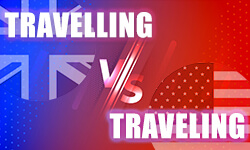
Consistency is crucial in academic writing , particularly when crafting a research paper , dissertation , or academic essay . This involves maintaining a consistent vocabulary, grammar, spelling, and punctuation to ensure a cohesive, clear, and easy-to-understand flow throughout the paper. Many students have difficulties differentiating between British English vs. American English such as whether to use “travelling” or “traveling”. Learn how to distinguish these two in this article.
Inhaltsverzeichnis
- 1 “Travelling” or “traveling”
- 2 “Travelling” or “traveling” in the past tense
- 3 “Travelling” or “traveling” as a noun
“Travelling” or “traveling”
“Travelling” and “traveling” both define the past tense of the verb “to travel.” To travel means to move or journey from one place to another, typically over a distance. It involves going to a different location, either domestically or internationally, for various purposes, such as leisure, business, exploration, or personal reasons. Traveling often involves transportation, such as by car, train, plane, or boat, to reach the desired destination. The spelling may differ depending on whether you’re using British or American English. In British English, it’s always spelled with a double “l”. However, in American English, both spellings are acceptable, though using a single “l” is more prevalent.

British English

American English
travelling (not recommended)
In general, British English tends to use more doubled consonants in certain verb forms, such as adding an extra “l” in words like “travel.” This is because British English obeys the rule of doubling the consonant when adding suffixes like “-ing” or “-ed” to certain verbs. American English, on the other hand, often maintains the base spelling of the verb.
Examples of using “travelling” and “traveling”
The following examples will exemplify the difference in spelling of the word “travelling/traveling” in British and American English.

- I enjoy travelling to new countries.
- She is currently travelling through Europe.
- Our family loves travelling during summer vacations.

- I enjoy traveling /traveling to new countries.
- She is currently traveling /traveling through Europe.
- Our family loves traveling /traveling during summer vacations.
“Travelling” or “traveling” in the past tense
When using the verb “travel” in the past tense, the exact spelling applies to British English vs. American English, as with the “-ing” form. British English is written with a double “l” and in American English, both ways are possible but a single “l” is more common.
- British English: “Travelled”
- American English: “Traveled” or “travelled”
The following examples will explain the usage of the word “travelled/traveled” in both languages.
- Last year, I travelled to Italy.
- She travelled throughout Europe during her gap year.
- We travelled by train to visit our relatives.

- Last year, I traveled /travelled to Italy.
- She traveled /travelled throughout Europe during her gap year.
- We traveled /travelled by train to visit our relatives.

“Travelling” or “traveling” as a noun
The word “travel” refers to the noun form of the verb “to travel.” The word “travel” is spelled the same way in both British and American English, with only one “l”.
The following examples will show you the usage of the noun “travel”.

- I love exploring places through travel.
- Business travel can be exciting.
- She has a passion for adventure travel .

How do you spell “travelling”?
The correct spelling differs between American English and British English:
- The correct spelling in American English is: “traveling” with one “l”.
- The correct spelling in British English is: “travelling” with a double “l”.
How do you spell “travelling” in British English?
In British English, the correct spelling is “travelling” .
How do you spell “traveling” in American English?
In American English, the correct spellings are “traveling” and “travelling”, but the spelling with one “l” is far more common, while the one with the double “l” is not recommended .
How do you spell “travelled”?
The correct spelling in American English is “traveled” with one “l” and in British English “travelled” with a double “l”. While it is possible to use the British spelling for American English, it is not recommended .
How do you spell “travel”?
The standard spelling in British and American English is “travel”. A version with a double “l” is not possible .
We use cookies on our website. Some of them are essential, while others help us to improve this website and your experience.
- External Media
Individual Privacy Preferences
Cookie Details Privacy Policy Imprint
Here you will find an overview of all cookies used. You can give your consent to whole categories or display further information and select certain cookies.
Accept all Save
Essential cookies enable basic functions and are necessary for the proper function of the website.
Show Cookie Information Hide Cookie Information
Statistics cookies collect information anonymously. This information helps us to understand how our visitors use our website.
Content from video platforms and social media platforms is blocked by default. If External Media cookies are accepted, access to those contents no longer requires manual consent.
Privacy Policy Imprint

Live-English.net
Learn English Online with real teachers
40 Basic Vocabulary Words and Common Phrases for Travel in English
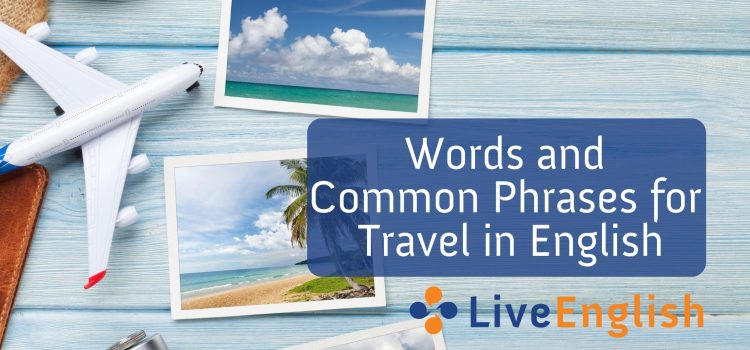
Embarking on a journey to a foreign country can be both exciting and a bit daunting, especially when language barriers come into play. But fear not, we’ve got you covered! This page is dedicated to all the globetrotters out there who are keen on enhancing their English language skills specifically for travel.
We’ve curated a list of 40 essential English words and phrases that will prove to be your best companions on your travels.
Whether you’re a seasoned traveler or planning your first overseas trip, mastering these words and phrases will not only boost your confidence but also enrich your travel experiences. So, let’s dive in and start preparing for your next adventure with our comprehensive travel vocabulary guide. Happy learning and safe travels!
40 essential English words and phrases for travel
- Passport – “Don’t forget to bring your passport to the airport.”
- Luggage – “Please make sure your luggage is not left unattended.”
- Reservation – “I have a reservation under the name Smith.”
- Itinerary – “Our itinerary includes stops in Rome, Paris, and London.”
- Destination – “Our final destination is Sydney.”
- Accommodation – “I’ve booked accommodation for three nights in the city center.”
- Sightseeing – “We’re going sightseeing in the old town tomorrow.”
- Currency – “What’s the local currency in Japan?”
- Boarding Pass – “Please have your boarding pass and identification ready.”
- Departure – “Our departure time is 6:00 PM.”
- Arrival – “Our estimated arrival time is 8:00 PM.”
- Customs – “You’ll need to declare any items at customs.”
- Visa – “Do I need a visa to travel to the United States?”
- Tourist – “As a tourist, I love exploring new places.”
- Landmark – “The Eiffel Tower is a famous landmark in Paris.”
- Guidebook – “I bought a guidebook to learn more about the city’s history.”
- Souvenir – “I bought a souvenir from each city we visited.”
- Jet Lag – “I’m feeling a bit of jet lag after the long flight.”
- Travel Agency – “The travel agency arranged all of our accommodations.”
- Backpack – “I prefer to travel with a backpack instead of a suitcase.”
- Could you help me, please? – When you need assistance.
- How much does this cost? – When you want to know the price of something.
- Where is the nearest…? – When you’re looking for something specific, like a bathroom or a subway station.
- I would like to book… – When you want to make a reservation.
- Do you speak English? – When you need to find someone who speaks English.
- I’m lost. Can you help me? – When you need directions.
- Can I have the menu, please? – When you’re at a restaurant and want to see the menu.
- I’m allergic to… – When you need to inform someone of your allergies.
- Can I have the bill, please? – When you’re ready to pay at a restaurant.
- What time does it open/close? – When you want to know the operating hours of a place.
- Can I have a ticket to…, please? – When you’re buying a ticket.
- Where can I catch the bus/train? – When you need to find the bus or train station.
- Is it far from here? – When you want to know the distance to a place.
- Can you recommend a good…? – When you’re looking for recommendations.
- Do you accept credit cards? – When you want to know if you can pay with a credit card.
- What’s the Wi-Fi password? – When you need to connect to the internet.
- I’d like to go to… – When you’re telling a taxi driver your destination.
- Is there a pharmacy nearby? – When you need to find a pharmacy.
- Can I try this on? – When you’re shopping for clothes and want to try something on.
- Could you take a picture of us, please? – When you want someone to take a photo of you and your group.
Wrapping Up Our English Travel Vocabulary Journey
And there you have it! We’ve journeyed through 40 essential English words and phrases that will help make your travels smoother and more enjoyable. Remember, language is a powerful tool that can open doors to understanding new cultures, making new friends, and creating unforgettable experiences.
Don’t worry if you can’t memorize all the words and phrases at once. The beauty of language learning is that it’s a continuous process. Keep practicing, and soon these words will become second nature to you.
But why stop at 40? If you’re eager to expand your travel vocabulary even further, we have an exciting offer for you. Follow us on Instagram and send us a direct message to get your hands on our comprehensive eBook (write “Travel eBook”), which features 200 essential English words and phrases for travel, plus 2 special bonuses!
We hope this guide will be a valuable resource for your travel adventures. Whether you’re exploring bustling cities, tranquil countryside, or exotic beaches, these phrases will help you navigate your way with confidence.
Thank you for joining us on this linguistic journey. We wish you all the best in your English learning and your future travels. Remember, every journey begins with a single step, or in this case, a single word. Happy travels and happy learning!
>> Learn more English vocabulary
Privacy Overview
My English Language
English language resources for efl students and teachers.

Travel and Transport
Travel vocabulary: using english for travel.
Travel vocabulary is one of the most useful areas of language learning today, as more people than ever are travelling far and wide for business and pleasure. There are many useful words and phrases we use when travelling and dealing with transport.
Although our travel plans have been put on hold for a while due to the Coronavirus pandemic , the world is slowly starting to open up again. This means we need to be ready with our travel language and vocabulary for when we can get a flight, a bus or a train!
For non-native speakers , travel vocabulary is a particularly useful topic of study and always a popular subject, allowing you to enjoy organising your travels without worrying about language issues.
Explore travel vocabulary here and learn useful vocabulary related to travelling and using public transport. We have included useful words related to using trains, buses, cars, taxis, planes and boats, so you can have your travel phrases covered, whatever your mode of transport.
General English Travel Vocabulary:
to arrive , to depart, to leave, to stay,
to cancel, cancellation, cancelled, delay, delayed
to book, to reserve, reservation, to cancel a reservation
holiday, business trip
suitcase, bag, luggage
trip, journey, to travel, map
travel agent, brochure
ticket office, fare, price, single/return ticket
by foot, on foot
travelling by plane, by train, by taxi, by car, by boat
roundabout, road, traffic lights, speed limit, junction, cross roads, road signs
Image source
Transport Vocabulary and Useful Phrases:
Wheels, steering wheel, dash board, indicators, headlights, roof, bonnet, boot, engine, battery, windscreen wipers, garage, car mechanic, petrol station, service (a ‘check up’ for a car)
Double decker, single decker, passengers, bus driver, bus stop, bus station, bus conductor, coach, luggage hold, bus lane
Bus travelling phrases:
the next stop, the last stop, to get on/off the bus, to buy a ticket
Train station, platform, track, level crossing, locomotive, underground, cross-country, local, return, single, ticket, carriage, first/second class, train driver, ticket inspector, waiting room, seat, timetable, guard, season ticket, fare, travel card, buffet car
Train travel phrases:
to catch a train, to check the timetable, on the platform, to travel cross-country
to get on the train, to embark, to set off (on a journey)
to get off the train, to disembark, to alight
ticket machine – a machine where you can buy your train tickets
ticket gate – a mechanical gate blocking access, where you need to insert your ticket to pass through
the buffet car – a carriage on a train where you can buy drinks and snacks
Grand Central Station , New York City – image source
Cab, black cab (official English taxi), fare, taxi rank, taxi driver, tip ( noun and verb )
Taxi travel phrases:
to hail a taxi / to flag down a taxi (when you raise your arm to get a taxi driver’s attention to encourage it to stop in the street)
to pay the fare (the fare is the fee for the journey)
to tip the driver (verb) / to give the driver a tip (noun)
Aeroplane, airport, airline, wing, runway, pilot, gate, passport, excess baggage charge, cabin crew, flight attendant, air steward/stewardess, security, turbulence, seatbelt
take off, landing
turbulence (uncomfortable, sudden movements of a plane due to air pressure/temperature changes)
hand luggage (luggage you take into the cabin with you)
hold luggage/checked luggage (luggage you check in for stowage under the aircraft)
over-head locker (where you can put your hand luggage)
boarding card, customs, departures, arrivals, lounge, aisle seat, window seat, check-in, in-flight movie, in-flight entertainment
terminal 1, terminal 2 / T1, T2 (a terminal is where passengers go to buy tickets, check in luggage, go to their boarding gate etc.)
boarding gate – where passenger go to board the plane (i.e. to get on the plane), located inside the terminal building
A plane takes off – image source
Plane travel phrases:
to put luggage/bags in the hold
to board the plane
prepare for take off, the plane will be taking off in 30 minutes
prepare for landing, the plane will be landing in 20 minutes
to fasten your seatbelt, to buckle up (‘buckle up’ is slang for ‘fasten your seatbelt’)
the flight was quite turbulent, to experience some turbulence, there was some light/heavy turbulence
“How was your flight?”
“It was good, thanks, except there was some turbulence during the descent that made me spill my drink!”
“Great – it was a smooth flight and I slept most of the time.”
Ferry, cruise ship, harbour, deck, port, sea, ocean, cabin, captain, sail, sea sickness , crossing, on board, life belt/jacket, foot passenger, buffet, port side, starboard
- The difference between a boat and a ship: boats are small to mid-sized vessels, often used for pleasure trips. Boat is also a generic term for water vessels. Ships are normally larger and are used to carry cargo, passengers or smaller boats.
Boat travelling phrases:
to embark (to get on the boat) / to disembark (to get off the boat)
‘choppy’ seas / rough seas / strong waves
Calm waters will provide a peaceful cruise for this ship – image source
calm waters / still waters
to sail, to have a good crossing (a ‘crossing’ is when you go from one place to another on a boat/ship) – e.g. “Did you have a good crossing?”
to go out on deck (to go outside on the ship)
welcome aboard/on board (you might hear this when you embark for the first time)
the captain’s table (where the captain sits at dinner – sometimes passengers might get an invitation to site at the captain’s table at some point during their cruise)
- ‘Plain sailing’ is an idiom that means an event that goes smoothly: ‘It’s all plain sailing from here’
It’s a great day to be ‘out on deck’ – image source
English at the Train Station
Useful travelling vocabulary for using the train, including phrases you may want to say, phrases you may hear and comments you might want to make about travelling by train:
- Train times on timetables are always given in the twenty-four hour clock format. So, 5.15 pm would be 17.15 and 9.05 am would be 09.05.
A busy airport – image source
“How was the journey?”
“It was fine, the train arrived on time and I managed to buy a coffee from the buffet car.”
“Terrible, the first two trains were cancelled and then I had to stand up for the entire journey.”
“My train was delayed, so I passed the time by browsing in the station bookshop”
English vocabulary at the airport
Travelling vocabulary for using planes and visiting the airport, including phrases you might hear at the airport and sentences you might need to say when travelling by plane:
Click here to explore more essential English vocabulary and phrases for everyday situations.
When travelling and using transport, you might also need to ask for directions. Check out how to ask for directions in English when travelling around a city with our directions page. Our article includes possible questions you might want to ask and answers you could receive when navigating your way around a new town.
Let us know your thoughts on travel vocabulary
What do you find most difficult about using English when travelling?
Do you find any of these phrases related to travel and transport confusing?
Can you think of other useful English travel vocabulary for using different modes of transport?
TEFL teachers, how do you incorporate travelling vocabulary into your English lessons?
2 thoughts on “ Travel and Transport ”
Thank you for the provided phrases and words. I would also like to see a short dialogue or common phrases when someone got lost in a city or trying to get somewhere, so that there should be various options for speaking about traveling ina city
Hi Tatyana, thanks for your comment. A dialogue like this is a great suggestion. We will looks to add something like this to the travel and transport page soon. In the meantime, you might find our directions page useful, as this contains phrases for asking for directions when travelling in a city.
Leave a Reply
Your email address will not be published. Required fields are marked *
- Learn English
- Infographics

- English Vocabulary
100 + Travel Words explained 🛫🏝❤️ Best Free Lesson

You can jump to any section of this article:
Booking a Holiday
Travelling to your destination, arriving at your destination, places to visit, describing places, asking for help.
Whether you are going on a short holiday for a few days or planning to travel around various countries for a few months, having a basic understanding of the vocabulary and phrases you might need to use for communication is quite important.
English is a widely spoken language in the majority of countries that welcome tourism, so it would be beneficial to familiarise yourself with some useful phrases before departing.
In addition, if you could find out how to say some basic phrases in the country’s native language, I’m sure the local people there would appreciate your efforts!
Basic phrases in English that you should translate and try to use in the native language of your destination:
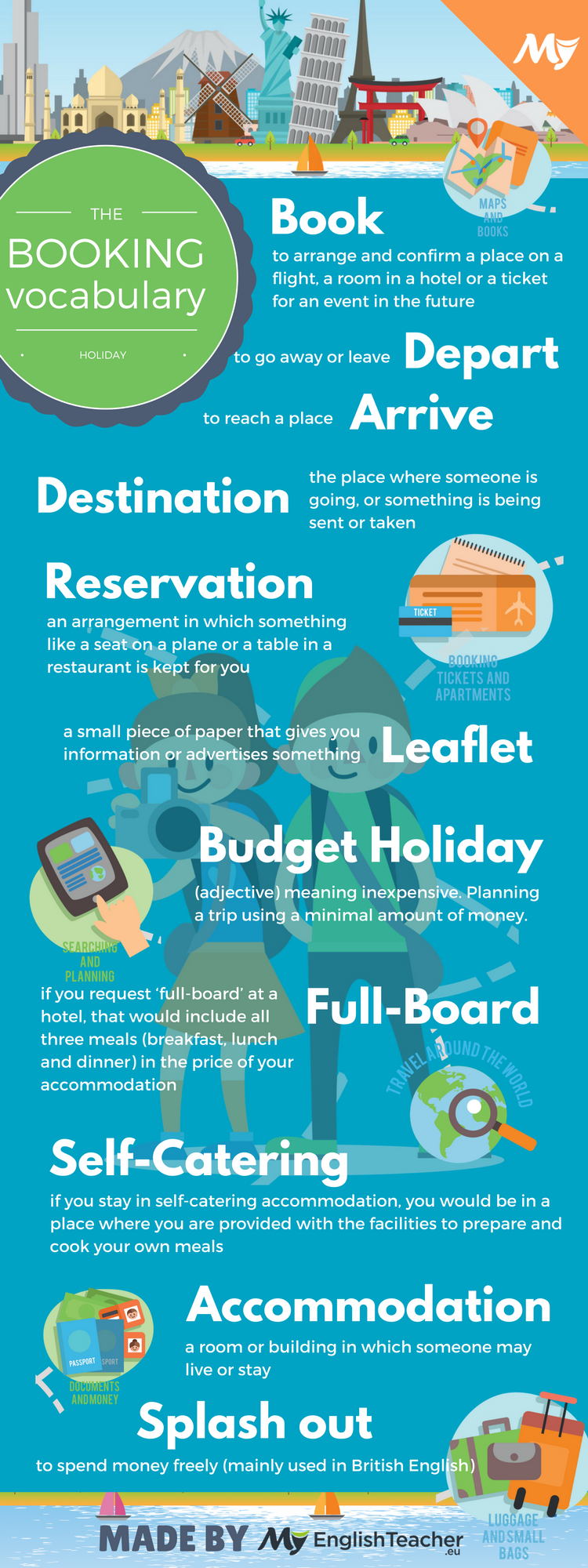
Book: as opposed to the noun (reading material), this verb means to arrange and confirm a place on a flight, a room in a hotel or a ticket for an event in the future.
Depart: to go away or leave, especially on a journey.
Arrive: to reach a place, especially at the end of a journey.
Reservation: an arrangement in which something like a seat on a plane or a table in a restaurant is kept for you.
Destination: the place where someone is going, or something is being sent or taken.
Complimentary: if tickets books or any other items are complimentary, it means they are given free, especially by a business.
All-Inclusive: Including everyone or everything. In holiday terms, this would refer to a hotel deal where the price usually includes accommodation, meals and drinks (any extra activities or facilities would be charged separately).
Travel Agency: a company or shop that makes travel arrangements for people.
Ticket: a small piece of paper or card given to someone, usually to show that they have paid for an event, journey or activity.
Brochure: a type of small magazine that contains pictures and information about a product or a company.
Leaflet: a small piece of paper that gives you information or advertises something.
Last Minute Deals: these are promotions that are advertised at the latest possible time for those who are more spontaneous!
Promotion: publicising a product to increase sales or public awareness.
Package Deal: an offer or agreement involving a number of related items or the acceptance of one being dependent on acceptance of another.
Half-Board: if you request ‘half-board’ at a hotel, breakfast and dinner would be included in the hotel price (as part of the package).
Full-Board: if you request ‘full-board’ at a hotel, that would include all three meals (breakfast, lunch and dinner) in the price of your accommodation.
Self-Catering: if you stay in self-catering accommodation, you would be in a place where you are provided with the facilities to prepare and cook your own meals.
Accommodation: a room or building in which someone may live or stay. Different types of accommodation include apartments, hotels, guesthouses and backpacking hostels.
Vacation: the American term for ‘holiday’.
Camping: the activity of spending a holiday (vacation) living in a tent or campervan.
Backpacking: to travel or hike carrying one’s belongings in a backpack.
Transfer: the act of moving someone or something from one place to another.
Budget Holiday: (adjective) meaning inexpensive. Planning a trip using a minimal amount of money. (Budget – noun) Having a limited amount of money for expenditure:
- ‘We have to keep within the household budget).
Travel Documents: all the necessary documents you would need to take with you on a holiday i.e. passport or ID card, driving license, flight/bus/ train tickets, visa confirmation etc.
Outbound: travelling away from a particular place, usually the first half of a journey.
Inbound: travelling towards a particular place, especially when returning to the original point of departure.
Two-way, Return Ticket (UK), Round Trip (US): a ticket that allows someone to travel to a place and back again.
One-way, Single Ticket: a ticket that allows a passenger to travel only to his/her destination, without returning.
Transport: (verb trans-PORT ) to take or carry goods or people from one place to another. (noun TRANS-port ) A system or means of conveying people or goods from place to place by means of a vehicle, aircraft or ship.
Splash out: a phrasal verb (mainly used in British English) meaning to spend money freely
Please enable JavaScript

Sample Conversation about Booking a Holiday: Travel Agent = TA, Customer = C
TA: Good afternoon madam, how can I help you today? C: Good afternoon, I would like to book a trip to Italy for 2 people and a 6 year old child please.
TA: Is there anywhere in particular you would like to go? C: I can’t decide between Venice or Rome, whichever is cheaper as we’re on a budget this year!
TA: Okay, and when would you like to go? C: We have two weeks of holiday between 18 th June and 2 nd July, and we’d like to go for at least 10 days during that period.
TA: No problem, I’ll just check to see which destination would be cheaper…. We have a special promotion on at the moment, if you book a package deal to Venice, you get free transfer to and from your hotel to the airport, plus one free meal each day. Would you be interested in that? C: Yes, that sounds great!
TA: And would you like full-board or half-board ? C: Well, seeing as we will get one free meal each anyway, I think self-catering would be better. I’ll have a little bit of extra money to splash out in a nice restaurant somewhere!
TA: Okay, that’s fine. We have a hotel that offers self-catering facilities and is right in the centre of Rome. They also have special facilities for children such as meal deals, extra beds, a play area in the lobby and a crèche. C: Perfect! I won’t need to spend too much money on transport and our son will surely have fun too!
TA: Exactly. Your outbound flight will be on the 19 th June, departing from London Gatwick Airport at 11:30am , and your return flight will be on the 30 th June at 10:30pm. That gives you 11 and a half days in Rome, does that suit you? C: Yes, that’s excellent, and we’ll still have a couple of days to recover before going back to work! How much will that be?
TA: Well, the promotion is £200 per adult, and your child can go for free because he is under 8 years old. That includes the return flights , accommodation for 11 nights, airport transfer and a complimentary meal each per day. Shall we go ahead and book it ? C: Wow, that is a fabulous deal! Yes please.
TA: Okay. How would you like to pay? C: Credit card please. Here you go.
TA: Thank you. Could I also see your passports please? C: Sure, here you go.
TA: Thank you. Here are your tickets and everything else you’ll need to know about your package holiday. Remember to keep all your travel documents safe throughout the whole trip. C: Thank you so much for your help!
TA: You’re welcome. Enjoy the rest of your day and please contact us if you have any queries before you set off on your holiday !
Recommended for you: Spa Fitness Gym Workout Massage Vocabulary and Dialogs Formal and Informal Email Phrases Starting with Greetings
NEXT: Packing Vocabulary
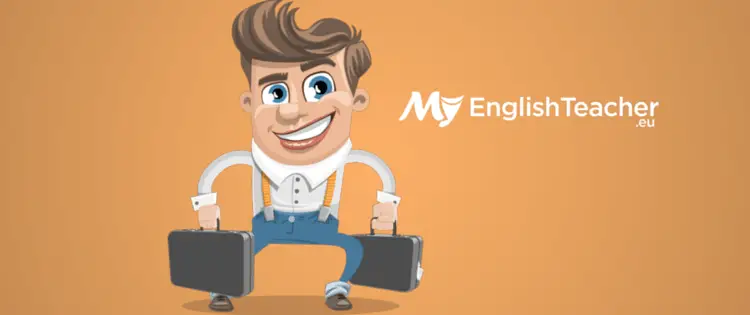
Suitcase: a case with a handle and hinged lid, used for carrying clothes and other personal possessions.
Backpack (US), Rucksack (UK): a bag with shoulder straps that allow it to be carried on one’s back.
Currency: a system of money in general use in a particular country.
Appropriate Clothing: suitable or fitting for a particular purpose, person or occasion.
Seasonal: relating to a particular season of the year (Autumn, Winter, Spring or Summer).
Swimwear, Bikini: clothing worn for swimming (bikinis are specifically for women).
Fanny Pack (US), Bum Bag (UK): a small bag used to safely store small valuable items when on holiday. This is usually worn around the waist and can be concealed under one’s clothing.
Sample Conversation about Packing:
A: Sarah, I’ve managed to book the flights and the train tickets for our vacation to Switzerland! B: Wow, that’s so exciting! So, are we leaving next month on the date we wanted?
A: No, we’re leaving next week! The travel agency gave us a great package deal and we’ve saved a lot of money, but it meant changing the dates to go earlier. We don’t have to work anyway, so I thought it would be nice! B: Oh, I see! Okay, that means we’ll have to start packing very soon. What will the weather be like?
A: Well, it’ll be spring but we’re going for 3 weeks, so I would say it’s safer to take clothing for hot and cold weather. We’ll probably go skiing too, so let’s pack our snow gear . B: Sure. I’m going to pack a few bikinis too, just in case we find a small beach!
A: It might be easier to take our backpacks , as we can fit more into them. B: I agree, they’re a lot bigger than the suitcases . Have you got all our travel documents together?
A: I just need to print off the flight confirmation details and the train tickets . B: Great. I’ll get some dollars exchanged to Swiss franc for the first few days. A: Okay, so you’re in charge of getting the currency sorted and I’ll keep all the travel documents together. Now, let’s start packing!
Recommended for you: Cooking / At the Restaurant Vocabulary and Dialogs Vacation vs Holiday in English! Travel, Trip, Journey, Tour, Voyage, Cruise, Crossing, Excursion, Expedition, Flight
NEXT: Traveling to your destination
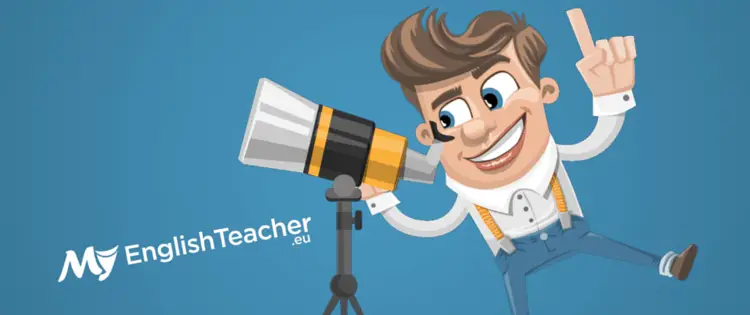
Check-In: the act of reporting one’s presence and registering, typically at an airport or hotel.
Departure Gate: gate where passengers embark.
Airport Terminal: this is a building at an airport, where passengers transfer between ground transportation and the facilities that allow them to board or disembark from an aircraft.
Departure Lounge: a seating area in an airport where passengers wait to board an aircraft or vehicle.
Duty-Free: Items available for purchase that are free of duty or tax charges in a particular country, generally sold at airports.
Ferry: a boat or ship for conveying passengers or goods, especially over a relatively short distance and as a regular service.
Take Off: (of an aircraft or bird) becoming airborne.
Board: to get on or into (a ship, aircraft or other vehicle).
Passport Check, Security Checkpoint: a barrier or manned entrance typically at a border of a country where travellers are subject to security checks.
Overweight: baggage weighing in excess of the allowed amount.
Destination: the place to which someone or something is going or being sent.
Window Seat: a seat positioned next to a window on a large vehicle or aircraft.
Aisle Seat : a seat positioned beside the walkway on a large vehicle or aircraft.
Sample Conversation about Checking-in at the Airport: Airport Attendant = AA, Passenger = P
AA: Next please! P: Hi. Good Afternoon.
AA: Good Afternoon sir. May I see your passport please? P: Yes, here you go.
AA: Thank you. Please place your luggage on the belt. P: (Places suitcase on the conveyor belt)
AA: I’m afraid this suitcase is 7kg overweight . You are allowed a maximum of 30kg and this suitcase weighs 37kg. You will need to remove some items or pay an additional fee for the extra weight. P: Oh no! I see. Okay, I’m happy to pay the fee.
AA: Is this your bag sir? P: Yes, of course it is.
AA: Did you pack it yourself? P: Yes.
AA: Were you given anything by someone else to take on the flight? P: No, definitely not.
AA: Do you have any of the following items in your luggage ? (points to images of dangerous objects) P: No, I’m certain.
AA: Okay, that’ll be 56 euros for the overweight case please. P: Okay, here is the right amount in cash. Also, could I please have a window seat ?
AA: I’ll just see if there is one available…. Okay, you’ll be seated in 25A. Here is your passport and boarding pass , please keep all your documents safe. Enjoy your flight. P: Thank you very much.
Recommended for you: Main differences between American and British English? Useful English Phrases For Running A Business Meeting Difference between LUGGAGE and BAGGAGE
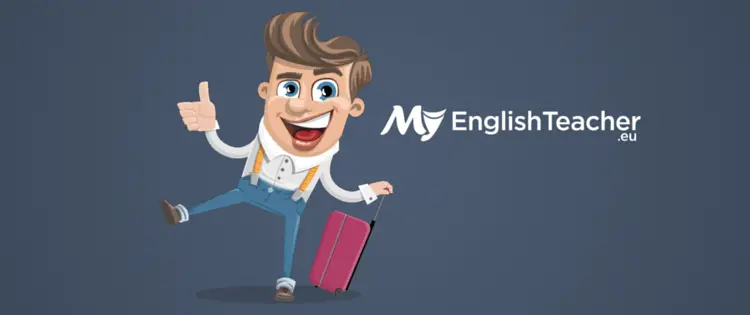
Landing: an instance of coming or bringing something to land, either from the air or from water.
Customs: the place at a seaport, airport or frontier where officials check incoming goods, travellers or luggage.
Baggage Collection Point, Baggage Reclaim, Baggage Claim Area: an area where arriving passengers claim checked-in baggage after disembarking from an airline flight.
Nothing to Declare: exiting the airport at a gate where you state that you do not have any goods where duty is payable or that need checking whether entry into the country is permitted.
Credit Card: a small plastic card provided by a bank or company which gives you access to money that you will need to pay back within an agreed time limit.
Debit Card: a small plastic card provided by your bank which gives you access to money that you already have in your bank account.
Porter: a member of staff in a hotel who assists guests with carrying their luggage.
Alarm: something to help you wake up at an appropriate time, this could be a sound notification on your smartphone or a telephone call from staff if you are staying in a hotel.
Room Service: requesting food, drinks or other services to be delivered to your hotel room.
Sample Conversation about Checking-in at the Hotel: Hotel Receptionist = HR, Guest = G, Porter = P
P: Good morning Sir, welcome to The Royal Pavilion Hotel. May I take your bags please? G: Oh, that’s very kind of you! Thank you. I am quite tired after that journey.
P: Please follow me this way to the check-in desk. HR: Good morning Sir, do you have a reservation ?
G: Yes, I booked online. HR: Which name was it booked in?
G: Mr. Graham Watts HR: Yes, I have it here. Could I see the credit card you paid with please?
G: Yes, here you go. HR: Thank you. Would you like an alarm call to wake you up?
G: Yes please. If you could call me around 11am, that’d be great. I would like to rest for a few hours before my meeting. HR: No problem. The complimentary breakfast is served until 11:30 and you can call for room service at anytime.
G: I will most probably do that! Thanks. HR: Your room is number 237 on the third floor and here’s the key. Our porter will help you with your bags and show you to your room.
G: That’s wonderful, thank you. Is there a Wi-Fi connection available in my room? HR: Yes, you’ll find the password in you room beside the TV. We hope you enjoy your stay with us. P: Okay Mr. Watts, if you please come this way, I’ll show you to your room…
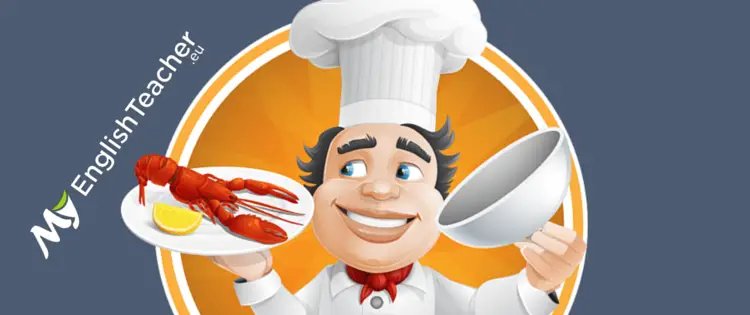
- Kitesurfing
- Rock Climbing
- Windsurfing
- Wakeboarding
- Paddleboarding
- Sunbathing
- Sightseeing
- Amusement Park
- Art Gallery
- Miniature Golf, Crazy Golf
- Animal Sanctuary
- National Park
- Invigorating
- Enervating
- Fascinating
- Old-Fashioned
- Picturesque
- Over-Priced
- Cosmopolitan
- Metropolitan
- Neopolitan
NEXT: Asking for help
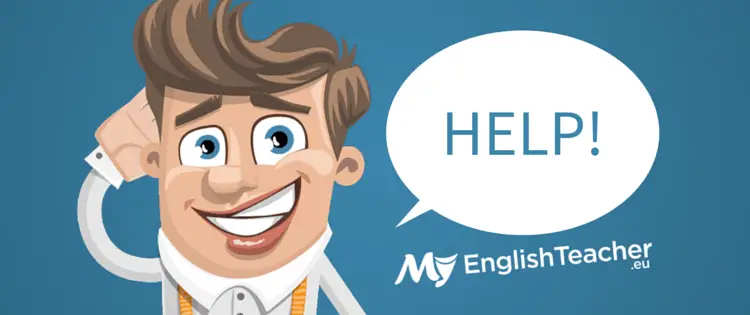
Catching someone’s attention:
- Excuse me, could I ask you a quick question please?
- Excuse me, sorry to bother you but could you help me please?
- Hello sir/miss, …
- Sorry sir/miss, …
- Excuse me, do you speak English?
Asking for information:
- You wouldn’t happen to know where … is, would you?
- I’m trying to find the …
- I need to get to the …
- How can I get to the …?
- Do you know where the … is?
- Where is the nearest …?
- I’m a little lost, where is the …?
If you miss a flight, bus, transfer, train:
- It seems I have missed my … could you please book me onto the next available one?
- I’ve missed my … is there any way of getting a refund?
- I’ve missed my … could you please give me information about the next one?
- Could you please help me to rearrange my …?
When you’re feeling unwell:
- Excuse me, is there a first aid room here?
- I feel really unwell, is there someone who can help me?
- I’m suffering from … do you have medical staff here?
- Do you have a first aid kit I could use please?
- I’ve injured my … could you please help me?
If there is something wrong with your luggage:
- My suitcase has not arrived yet, where can I get it from?
- My luggage is missing, could you help me please?
- My rucksack has been damaged, what can I do about this?
- I cannot find my suitcase, where can I check please?
Asking someone to translate:
- Could you tell me what it says on that sign please?
- Could you translate this message for me please?
- Could you please ask this person to …?
Prepositions and giving directions:
- (Turn) Right
- (Turn) Left
- Straight On
- Opposite the …
- Next to the …
- The … is on your (right, left)
- Before, After the traffic lights
- Take the first, second, third exit at the roundabout
More for you: Aviation Vocabulary ››› 19 most important words explained Difference between BEFORE and UNTIL Numbers, Years, Length, Dates in English!
RELATED ARTICLES MORE FROM AUTHOR

Understanding the Extroverted Introvert

Your Guide: List of 30 Helpful Synonyms with Explanation and Examples

50 Creative Ways to Say Happy Birthday: My Top Picks

48 Another Word for Impo or Important
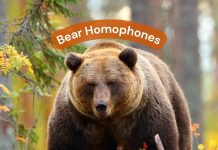
Bear Homophones Demystified: Expert Guide
![Names of Generations, Years and their Characteristics [Generations Timeline] Names of Generations and years: The Greatest Gen, Baby Boomers, Gen X, Y, Z](https://www.myenglishteacher.eu/blog/wp-content/uploads/2020/06/Names-of-Generations-218x150.png)
Names of Generations, Years and their Characteristics [Generations Timeline]

I like using standard english

Such a great job to run this awsome site.

that is wonderful!
MOST POPULAR

👉 A BIG List of Prefixes and Suffixes and Their Meanings

200 Phrases for saying THANK YOU in any situation!

Formal and Informal Email Phrases – from Greetings to Closing Phrases!

Linking Words: List of Sentence Connectors in English with Examples!

80 In Conclusion Examples! + Translation

90 Names of Baby Animals and Their Parents

Talk to Strangers / Free Chat Rooms

English Level Test

6 Ways to Immediately Improve Your English Communication Skills

What does TBH mean? (TBH full form) on Facebook, Instagram, Texting

25 Ways to Say “Keep Up The Good Work” 💪 &...
Stay connected, editor picks.

Supposition Meaning

Summary of how Components of Health are related to Wellness

POPULAR POSTS
Popular category.
- Q&A 2439
- English Vocabulary 624
- English Vocabulary Dictionary 363
- English Grammar 200
- Synonyms 147
- Infographics 109
- Collocations 105
- Learn English 81
- English Idioms 69
- Privacy Policy
- Terms & Conditions
- 📝 VOCABULARY
- 🚀 GAMES/ACTIVITIES
Travel Words to Learn in English

Travelling is going from a place to a distant place. Movement of people is considered as travel. People travel by many vehicles such as car, bus, plane, train or ship. These are called means of transport .
⬤ Pictures of travel vocabulary with pronunciations
Here is a list of travel vocabulary in English with pictures. You can listen to the pronunciation when you click on an image. The browser you are using does not support HTML5 audio playback. Sorry.
⬤ Word list of travel vocabulary in English
- destination
- travel agent
- ticket office
- information desk
- flight attendant
⬤ Air travel vocabulary
- boarding pass
- business class
- economy class
- first-class
- emergency exits
SIMILAR PAGES: ❯❯ Holiday vocabulary ❯❯ City life vocabulary ❯❯ Transportation vocabulary ❯❯ Business English vocabulary
⬤ Flashcards exercise about travelling
Learn travel vocabulary with flashcards exercise below. There are flashcards about travel vocabulary. Guess it and open the card to see the answer.
⬤ Flip the card game about travelling
Click on a card to open it. Then you will see a random word about travelling. Guess the meaning of it in your own language.
⬤ Images of travel vocabulary to download
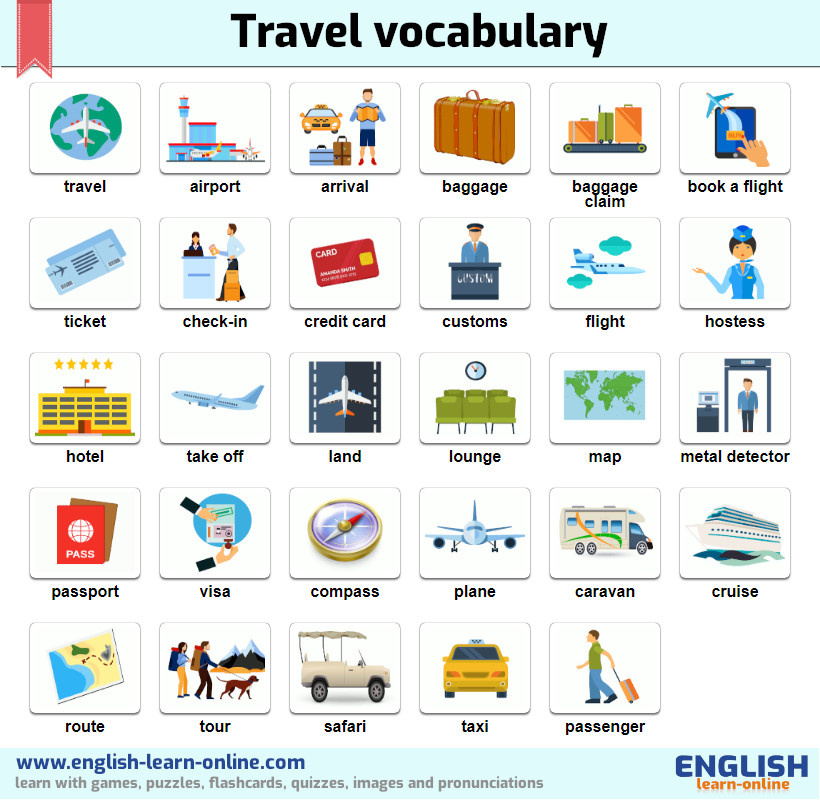
⬤ Picture quiz about travel vocabulary
Let’s check your travel vocabulary with images. Select the correct option according to the given picture. For every correct answer you get 10 points.
⬤ Listening test
This is a free listening test about travelling. First listen to the audio about travel. Then select the corresponding picture from the list.
⬤ Writing test about travel
Below is a vocabulary writing test about travel. Look at the image and write the name of the picture into the input box.
START
⬤ Spelling test about travel
Below is a vocabulary listening and spelling test about travel. Listen to the audio and then write what you hear into the input box. For every correct answer you get points.
⬤ Worksheets for travel vocabulary to download
Related pages, memory card game for travel, word scramble game for travel related words, word search puzzle for travel, make words game for travel expressions, wetman game for travel, accessories vocabulary 👓 exercises pictures audio, body parts in english 👨 with games and listed images, classroom objects vocabulary in english 📕 with games, clothes vocabulary in english 👕 learn with images and flashcards, colour names in english 🎈 with tests and images, computer parts (hardware) vocabulary: pictures audio, verb to be (am, is, are) – with examples and online exercises, modal “can” – with explanations exercises and activities, present continuous tense – with usage examples and pictures, simple present tense (do-does) – with usage, pictures and example sentences.
© www.english-learn-online.com All right reserved You can write us any mistakes or read our about page or see our privacy policy .

TRAVEL ENGLISH/ENGLISH FOR TOURISTS
Learn/practice common english phrases used by travelers.


Essential Travel Vocabulary – Improve Your English
It’s so much fun to travel, practice your English, and learn new things! Traveling is a lot easier if you know some essential English travel vocabulary. These are words you really need to know before you go! Ryan is going to share 17 of these necessary vocabulary words for traveling.
Hi everyone! Traveling is one of my five great passions. I love:
- Working with kids
- Learning new languages
- Meeting new people
Some of the best things I’ve ever experienced happened while I was traveling! I’ve been to:
- The Great Wall of China
- The Fos de Guasso in Brazil
- I’ve met amazing people
- I’ve even fallen in love!
All while traveling! So today, I want to share with you 17 essential travel vocabulary words I use when I talk about my adventures and my travels. Use them to talk about YOUR adventures and YOUR travels, too!
17 Essential Travel Vocabulary – Words 1-5
1. Book (a flight)
A book is something you read (a noun), but the verb “to book” means “to reserve.” If you “book a flight,” that means you reserve a flight.
I booked a flight to Buenos Aires. Now I need to book an accommodation.
2. Accomodation
An “accomodation” is a place to sleep. A hotel, an Airbnb, a hostel, even couchsurfing, are all accomodations.
Do you have an accomodation in Buenos Aires yet?
3. Make a Reservation
To “make a reservation” means to reserve the use of something – this can be anything! You can “book” an accomodation, specifically, a house or a room to sleep in. To “make a reservation” can also apply to a room, but it can also be a rental car, or a tour. You can fly around the city in a hot air balloon, but you need to make a reservation!
For example, I could say:
I want to go on the dungeon tour. I need to make a reservation. If I want to stay at the Luxor Hotel in Las Vegas, I need to call or go online and make a reservation.
So I’ve booked a flight, I’ve found my accommodation, and I made a reservation for a car rental. Now it’s time to fly!
4. To Take Off
The verb phrase that we use to describe this is “to take off.”
My flight takes off at noon. Has your flight taken off yet?
The verb “to land” is the plane arriving at its destination. “To land” can also refer to anything that is flying, then comes to the ground. I could say:
The butterfly landed on my shoulder. The plane takes off at 8:00 am and lands at 5:00 pm.
You can also use the verbs “take off from” and “land in” to talk about when and where you are going. For example:
I take off at 7:00 am. I take off from New York. (I leave from New York.) I take off from Berlin and I land in Singapore.
If you are very lucky, your flight will not stop. It will go directly from “a” to “b” – from Berlin to Singapore. However, sometimes you have to stop. For example, the flight goes from Berlin to Singapore, but it might stop in Doha, Qatar.
Essential Travel Vocabulary – Words 6-10
6. Connection or Layover
When I stop in Doha, it is called a “connection,” or a “layover.” So when you are talking about airplane flights, the word “connection” means a city that your flight stops in before you reach your final destination. There are even more words to describe this!
Do you have a connection, or do you have a direct flight? Yes, I have a connection in Doha.
7. Leg (of a Trip)
If you have two flights to get to one destination, for example, Berlin to Doha and Doha to Singapore, each flight is called a “leg” – just like the legs I have above my feet!
The first leg of my trip is from Berlin to Doha. The second leg of my trip is from Doha to Singapore.
Another word for a connection is a “layover.” A “layover” is simply when you have to stop for a few hours in your “connecting” city. Either one of these sentences is correct:
I have a connection in Doha. I have a layover in Doha.
9. Stop Over
If your layover is very long, it’s called a “stop over.” This just means that you will stay in that connecting city for many hours – usually more than four hours.
Last year, I had a stop over in Ankara for 12 hours!
10. Travel Backpack
Before you travel, you need a backpack. Not any type of backpack – you need a “travel backpack.” A “travel backpack” is much bigger than a normal backpack. You have room for lots of clothes, a computer, some toiletries, packing cubes – for lots of things!
Travel backpacks aren’t essential, but they are so practical and useful!
Essential Travel Vocabulary – Words 11-17
11. Clamshell or Suitcase Style Opening
A travel backpack can open like a suitcase. This is also called a “clamshell” opening – meaning it opens like a clam – on three sides. This is important because it allows you to pack very quickly, and to quickly access all your things.
12. Packing Cubes
“Packing cubes” are simply little bags to organize your things inside the travel backpack. For example:
I have my shirts in one packing cube. I have packing cubes for my shoes, my socks, and even the clothes I need to wash!
13. Toiletries
Now, the last packing cube you need is for your “toiletries.” “Toiletries” is essential travel vocabulary for things that you find in the bathroom, like a toothbrush.
Toiletries might include mouthwash, toothpaste, lotion, and shampoo. It’s a smart idea to put your toiletries in a clear bag, because that will make the security people very happy.
Let’s Review!
- You made your reservation.
- You booked an accomodation.
- You have a travel backpack with packing cubes and toiletries.
- You are ready to go!
- You take off from Buenos Aires.
- You land in Paris.
Now you are feeling really sleepy. This is called:
14. Jet Lag
“Jet lag” is the feeling of being tired after you travel because your body is used to a different time zone.
Sometimes when I travel from Europe to Asia I get jet lag.
15. Sightsee
This is a simple verb that just means to visit, or to look around. If I just landed in Shangai, I could say:
I really want to sightsee downtown! I really want to sightsee around the People’s Square!
If I’m traveling with a friend, I can ask:
“Hey, Foofy, do you want to sightsee around Stockholm tomorrow?”
You can also say to “go sightseeing,” if you don’t have a particular destination in mind.
“Hey, Foofy, do you want to go sightseeing?”
What’s Next?
- You’ve been sightseeing; observing the city and taking it all in.
- Now you’re ready to go to a new city!
You can book a trip on a bus, or make a reservation for a flight, or you could try:
16. Hitchhiking
“Hitchhiking” is when you put your thumb up and ask people for a ride! I’ve “hitchhiked” almost 100 times in many countries, and I’ve always had great experiences. You can have fun conversations and meet really cool people. It’s not always the most fun way to travel, because the weather might be bad or people might be rude, but it’s worth a try!
17. Bucket List
Hitchhiking was on my “bucket list.” A “bucket list” is a list of things you want to do before you die. It comes from an English idiom “kick the bucket,” which means “to die.” Here are some things on my bucket list:
- Visit Antarctica
- Learn 10 languages
- Become a father
- Teach sports and English at a kids’ camp
What’s on your bucket list? I’m curious! Let me know in the comments below! I’d love to hear what you think.
Now that you know how to get where you want to go, check out this post to help you save money along the way!
if you want to continue on your English journey, we have a great ebook for you called Travel English Expert.
The Travel English Expert is a collection of 50+ recorded conversational lessons with a text guide. Everything is directly related to real world travel. This course will give you templates to practice your listening & speaking skills – including more essential travel vocabulary – even if you aren’t planning an awesome trip to Singapore any time soon!
I hope these 17 Essential Vocabulary Words for Traveling were helpful for you! Be sure to leave a comment, and check back soon for more great English tips!

Gabby Wallace, M.Ed TESOL
About the Author Gabby Wallace is the Founder of Go Natural English, where you can quickly improve your confidence speaking English through advanced fluency practice. Even if you don't have much time, this is the best place for improving your English skills. Millions of global intermediate - advanced English students are learning with Gabby's inspiring, clear, and energetic English lessons. Gabby has a Masters Degree in Teaching English to Speakers of Other Languages from Boston University and 20+ years experience helping students become fluent through her online courses and membership program.
Looking for something? Use the search bar below
Let's connect, learn more with paid options.

English Insiders Membership
Get premium daily lessons (text, audio & quizzes for just $3 USD / month!

The English Fluency Formula Ebook
Get the most popular audio ebook online for quickly improving your English fluency.

The Fluent Comunication Program (50% off VIP Access to All Courses)
Don't waste time! Get an instant, all-access pass to hundreds of premium lessons. Organized and guided recorded video lessons with quizzes to give you everything you need for fluency, right now. Normally $997, you can join for 50% off for just $497 USD. This is a one-time payment with lifetime access.

- General English
- Video series
- Word on the Street
WOTS: Transport and Travel

In this episode, Stephen and Ashlie have a friend called Jazz visiting from abroad. They take Jazz on a trip around London to see the sights and famous places.
Nick meets a man who lives on the River Thames and a photographer who creates digital visions of London in the future.

The City of London
Nick talks about the history of The Thames and then is shown around a houseboat on the river. Later, he meets some artists who create incredible images of London in the future.
- Read more about The City of London
- Log in or register to post comments

Transport and Travel Scene 1
Stephen's friend comes to London and Ashlie and Stephen show him around.
- Read more about Transport and Travel Scene 1

Transport and Travel Scene 1 - Language Focus
Rob the teacher talks about using the present perfect to describe events and experiences.
- Read more about Transport and Travel Scene 1 - Language Focus

Transport and Travel Scene 2
Ashlie, Stephen and Jazz take a trip on the London Eye to enjoy the views of London.
- Read more about Transport and Travel Scene 2

Transport and Travel Scene 2 - Language Focus
Rob the teacher talks about using the past simple and the present perfect.
- Read more about Transport and Travel Scene 2 - Language Focus
Online courses

Group and one-to-one classes with expert teachers.

Learn English in your own time, at your own pace.

One-to-one sessions focused on a personal plan.

Get the score you need with private and group classes.
Search form
- A1-A2 vocabulary
Vocabulary exercises to help learn words to talk about air travel.
Instructions
Start with the image matching exercise. Then choose one or more of the other exercises to try.
Check your vocabulary: multiple choice
Check your vocabulary: gap fill, worksheets and downloads.
Have you ever travelled by air? What is the longest flight you have taken?

Sign up to our newsletter for LearnEnglish Teens
We will process your data to send you our newsletter and updates based on your consent. You can unsubscribe at any time by clicking the "unsubscribe" link at the bottom of every email. Read our privacy policy for more information.
- Daily Crossword
- Word Puzzle
- Word Finder
- Word of the Day
Synonym of the Day
- Word of the Year
- Language stories
- All featured
- Gender and sexuality
- All pop culture
- Grammar Coach ™
- Writing hub
- Grammar essentials
- Commonly confused
- All writing tips
- Pop culture
- Writing tips
Advertisement
adjective as in itinerant
Strongest matches
- peripatetic
Strong matches
Weak matches
- riding the rails
adjective as in vagabond
- down-and-out
- fly-by-night
- perambulant
- perambulatory
noun as in locomotion
- progression
Discover More
Example sentences.
Separately, workers of state-owned companies traveling overseas were also allowed to take one of the two Sinopharm vaccines in June.
He stated that most of those people were stopped by US officials at airports, and Nielsen agreed, adding that some are stopped even before they travel.
Instead, Hanage said, the neat curve turned out to reflect extreme lockdowns and stringent travel restrictions — things the United States was not prepared to choose for itself.
You may think that flatwater canoe trips are the car camping of backcountry travel options.
Namely, the desire to travel and leave the confines of our homes after months of quarantine and self-isolation.
Capaldi said the nature of the character—a time-travelling alien—meant his successor could take any form.
Ahmed, released on bail, managed to avoid being in court for the verdict and is now “travelling” constantly to avoid re-arrest.
Leila is not the only one who finds joy in drinking an alcoholic beverage when travelling outside Iran.
Travelling to France, it now seems ludicrous that anyone could have opposed such a convenient route.
The site advises recruits to “improve your physical fitness” before travelling to Kiev.
I hate to be long at my toilette at any time; but to delay much in such a matter while travelling is folly.
To think,” said the younger Englishwoman to her sister, “of this wee mite travelling about in an open motor!
The motherly woman received the babe instinctively and cast aside the travelling-rug in which he was enveloped.
Progress: an old term for the travelling of the sovereign to different parts of his country.
It is a great thing for the musical education of the country to have such an organization travelling every winter.
Related Words
Words related to travelling are not direct synonyms, but are associated with the word travelling . Browse related words to learn more about word associations.
adjective as in roaming
noun as in movement
adjective as in unsettled; vagrant
Start each day with the Synonym of the Day in your inbox!
By clicking "Sign Up", you are accepting Dictionary.com Terms & Conditions and Privacy Policies.
On this page you'll find 72 synonyms, antonyms, and words related to travelling, such as: nomadic, peripatetic, roving, wandering, ambulatory, and floating.
From Roget's 21st Century Thesaurus, Third Edition Copyright © 2013 by the Philip Lief Group.
10 things I wish tourists knew before visiting Greece, from a local
- I'm from Athens, and I've seen plenty of tourists make mistakes while traveling to Greece .
- Pace yourself if you're planning on staying out at the bars and clubs all night.
- It's worth it to do some research on smaller islands and local cuisine before your trip.

Thanks to its ancient ruins, picturesque beaches, and incredible food, Greece is one of the top tourist destinations. In 2023, over 32 million people visited.
I was born in Athens and currently split my years living between the US and Greece , so I've spent plenty of time in the beautiful European country.
Here are 10 things I think tourists should know before visiting.
There’s so much more to see in Greece than the popular islands.
It seems like everyone visits Mykonos, Santorini, and maybe Paros, but Greece has over 220 inhabitable islands. Plus, most of them are more budget-friendly than the popular spots.
I recommend looking into places like Kimolos, Astypalaia, Paxoi (also known as Paxos and Paxi), or Folegandros.
The Greek mainland is also beautiful. There's a lot to see there, from UNESCO sites at Delphi and Meteora and the turquoise waters of the Peloponnese to the stunning mountains and villages of Epirus.
Athens is more than the Acropolis.
Athens has great nightlife , restaurants, museums, and cool neighborhoods like Plaka, Exarcheia, Psyrri, and Pangrati.
Tourists who just swing by to check the Acropolis off their list are missing out. I've always found it to be one of the liveliest cities in the world.
You don’t need to tip 20%.
Greek servers generally rely on hourly wages, so there isn't the same tipping culture as the US .
I normally just round up the bill or leave a couple of Euros on the table as a tip — unless I had exceptional service or dined at a more formal (and tourist-oriented) restaurant.
Pace yourself when drinking alcohol.
A lot of travelers take advantage of Greece's lax attitude toward alcohol restrictions. Coupled with the fact that Greek bars and clubs close pretty late (like 4 a.m. late), some tourists get sloppy.
Locals usually intersperse drinks with food and water so they can last the whole night, and I recommend tourists do the same.
Slow down and take Sundays off.
Greeks have a pretty relaxed relationship with time — people often arrive late and stores may open half an hour after they said they would.
Service in Greece can seem slow to people from more fast-paced places, especially on the quieter islands . A lot of stores and supermarkets are also closed on Sundays, even in Athens.
I know this can be annoying at times, but I recommend just enjoying the slower pace of life.
Don’t try to visit too many islands on one trip.
So many people ask me if they can fit four or five islands into a seven-day trip, and I never recommend it. Take your time and enjoy each destination for at least a couple of days.
Half the joy of the Greek islands is getting to destress. If you're hopping from ferry to ferry and running around to cover the highlights, you'll miss out on the best parts of the country.
Be sensitive about natural disasters.
I never thought I'd have to say this, but I have seen multiple tourists in the last few years posting about how "pretty" the skies or sunsets are thanks to the glow from raging wildfires .
At a time when a lot of Greek people are wondering if their houses are still standing or their loved ones have gotten to safety, it's a pretty insensitive thing to do.
Don't skip out on experiencing a traditional taverna.
Athens and other popular Greek destinations now have a lot of upscale restaurants with cuisines from all over the world. But make sure to eat in a traditional taverna at least once.
A taverna is a casual restaurant with family-style dining. Diners can spend hours in them chatting with friends while sharing food paired with some great wine or ouzo (a Greek aperitif).
Greek food is more than just gyros.
Well-known dishes like gyros and souvlaki are truly delicious, but Greek cuisine is so much more than that.
For example, a lot of Greeks start their day with a tiropita (cheese pie) and freddo coffee. Each region also has local specialties that I recommend inquiring about.
In tavernas, popular menu items include calamari, octopus, all kinds of fish, grilled and fried cheeses (like saganaki and halloumi), and side dishes like fava.
Learn a few local words.
Most younger Greek people understand English, but you may run into problems communicating with older people — especially in more rural areas.
Even if a local person can understand you, I think it's nice to learn a few simple words and phrases like "good morning," "thank you," and "how are you?"
It's nice when tourists make a little bit of an effort.
- Main content
Word of the Day
What it means.
Something described as palpable is obvious and notable. Palpable may also be used as a synonym of tangible to describe something that can be perceived by one's sense of touch.
// The tension in the courtroom was palpable as the jury foreman stood to announce the verdict.
See the entry >
palpable in Context
"The power of the ancestral people who built Cliff Palace feels palpable as I stand inside the cliff hollow, marvelling at towers and rooms that slot together perfectly." — Linda Barnard, The Toronto Star , 16 Sept. 2023
Build your vocabulary! Get Word of the Day in your inbox every day.
Fashionable words.

- Which of these items is named for a deadly weapon?
- Stiletto heel Henley shirt
- Fedora hat Brogue shoes

Test your vocabulary with our 10-question quiz!

You can make only 12 words. Pick the best ones!
Did You Know?
If you find it fascinating how English speakers push words with concrete meanings into figurative use, we feel you. By which we mean we understand you, of course, not that we are patting your head or poking you in the shoulder. Palpable , which has since the 14th century described things that can be literally felt through the skin (such as a person’s pulse), has undergone an expansion similar to that of feel over the centuries, and is now more frequently used to describe things that cannot be touched but are still so easy to perceive that it is as though they could be—such as "a palpable tension in the air."
Test Your Vocabulary with M-W Quizzes

What Did You Just Call Me?

Guess the Curious Origins of These Everyday Words

Name That Flower

12-Letter Words Quiz

Challenging Standardized Test Words Vol. 3

Are You Feeling Lucky?
Test Your Vocabulary
Rearrange the letters to form a noun that refers to the use of electronically or mechanically generated movement that a user experiences through the sense of touch as part of an interface (as on a gaming console or smartphone): CHIPSAT
More Words of the Day
Noblesse oblige, circumlocution, inalienable.

Can you solve 4 words at once?
Subscribe to America's largest dictionary and get thousands more definitions and advanced search—ad free!
Games & Quizzes

- Australia edition
- International edition
- Europe edition
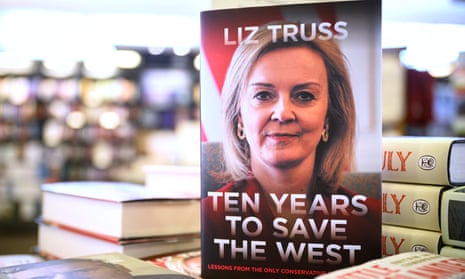
Trump fangirl Liz Truss channels Maga menace at US conservative thinktank
The former British PM went all Trumpy at the Heritage, with an audience hanging on her every word as she promoted her book
Was that Donald Truss? Or Liz Trump? A former British prime minister turned up in Washington on Monday channeling the Maga menace who once lorded it in the Oval Office and now spends his days in a dingy courtroom.
Liz Truss was at the Heritage Foundation , a conservative thinktank in Washington, within sight of the US Capitol dome, to promote her grandly titled book Ten Years to Save the West. Why does she keep coming back to America? It was not hard to figure out.
Far from the London literary critics sharpening their knives, Heritage offers Truss a happy place , full of gushing sycophancy with an audience hanging on her every word. In this regard the 48-year-old has gone all Trumpy: the ex-president loves to surround himself with oleaginous flatterers who dare not cross him.
How divine that the politicians who whine about “groupthink” and “safe spaces” are the ones who cling to groupthink and safe spaces.
To illustrate the point, Truss’s war on “the global left” establishment evidently includes the Guardian. Last Friday, this reporter received an email from Heritage about the Truss event that said: “Due to space limitations, we unfortunately must rescind your in-person invite.”
Curiously, come Monday morning, Truss posted a tweet encouraging members of the public to register the event and enclosing a link. So much for space limitations. But those who did attend were informed they couldn’t get a signed copy of the book due to “supply chain issues”.
Others were still able to watch a live stream on YouTube where, three hours after it ended, the event had just over 700 views. (Heritage’s biggest hit on the site is a Tucker Carlson speech that attracted a million views.)
Heritage is the thinktank behind Project 2025, a sprawling plan for a second Trump presidency. Wearing a dark blue jacket and trousers, white blouse and shiny black shoes, Truss noted that when she was first invited to Heritage as environment secretary in 2015, she was warned against not to go by then British ambassador Kim Darroch.
“He says to me, ‘You’ve got to be wary of this organisation. They’ve spoken out against President Obama. They’ve even been critical of Prime Minister Cameron. Are you really sure, minister, that you want to go and see them?’” Truss recalled, speaking from a wooden lectern against a backdrop of the Stars and Stripes and a blue wall dotted with Heritage Foundation logos.
“And I said, yes, I’m sure because I’m a conservative and they’re a conservative thinktank in the United States of America, our closest ally. So eventually, I prevail because I am a determined person but the car from the embassy dropped me off two blocks away from the Heritage Foundation so that the British flag wouldn’t be sitting outside the building. ”
Making a lot of sub-Trump hand gestures with open palms, Truss proceeded to deliver her standard speech railing against left-dominated institutions, an anti-growth coalition, the IMF and Conservatives in name only. Naturally there was a swipe at wokery as “another bad neo-Marxist idea developed from Foucault and all those crazy postmodernists in the 1960s, the idea that biological sex is not a reality”.
She blamed these forces for making her the shortest serving British prime minister in history (49 days that sparked mayhem on the financial markets). She reeled off a list of foes, foreign and domestic, who joined the “pile on”. Among them was Joe Biden, who had the temerity to criticise her radical mini-budget’s tax plans “ from an ice cream parlour in Oregon ”. There was some laughter in the auditorium. So vanilla!
The Trump fangirl had some advice to impart: “I come today with a warning to the United States of America. I fear the same forces will be coming for President Donald Trump if he wins the election this November.”
Truss repeated her plea from the recent Conservative Political Action Conference in Maryland for the right to grab a “a bigger bazooka” to combat the activist left with their money and “friends in high places”. She called for a “bonfire of the quangos” and, echoing Trump ally Steve Bannon, declared: “We need to dismantle the administrative state.”
In her book, Truss writes that she was an early fan of the reality TV show The Apprentice and “enjoyed the Donald’s catchphrases and sassy business advice”. She also pays little heed to the convention that senior British politicians stay out of US elections.
She told the audience on Monday: “I worked in cabinet whilst Donald Trump was president and while President Biden was president and I can assure you the world felt safer when Donald Trump was in office… Getting a conservative back in the White House is critical to taking on the global left.”
Praise for Truss was laid on think by Nile Gardiner , director of the Heritage Foundation’s Margaret Thatcher Center for Freedom and a former foreign policy researcher for Thatcher herself. He has been named one of the 50 most influential Britons in the US by the Daily Telegraph.
In God we Truss; no lettuce jokes here. The baby-faced, bespectacled Gardiner proclaimed her book “an absolutely tremendous read”, “very robust”, “very gutsy”, “very courageous”, “a wonderful read”, “very powerful”, “a thrilling read”, “a tremendous book” and “a wonderful message”. He speculated that the current prime minister, Rishi Sunak, might be writing memoirs in the near future but “yours are far more conservative and interesting”.
Truss and Gardiner sat on plush white armchairs with glasses of water on a table between them. Truss warned that another Biden term would mean “the promotion of leftwing ideology”, girls unable to use bathrooms in privacy and no policy to deal with immigration and the southern border. “Four more years of this would be a disaster for the US internally. I think Bidenomics has been a failure .”
Gardiner wondered what a second Trump term would mean for Britain. Truss said free the world needs conservative leadership. “It’s only Britain that has a conservative government. We’ve got Biden in the US, we have Trudeau in Canada, we have Macron in France, we have Scholz in Germany and it’s not working. The west is not winning. ”
Trump has said he would encourage Russia to do “ whatever the hell they want ” to any Nato country that doesn’t meet spending guidelines on defence. But Truss echoed Trump’s call for Europe to spend more. “There are too many countries free riding at the moment who are in serious threat. If Putin succeeds in Ukraine, he won’t stop there… Donald Trump is right to say to Europe: you need to pay up.”
Elise Stefanik? Kristi Noem? Marjorie Taylor Greene? Forget it. Trump-Truss 2024 would have been unstoppable. If only she had been born in Kansas.
- The US politics sketch
- Donald Trump
- US politics
Most viewed
Advertisement
Supported by
Fjords, Pharaohs or Koalas? Time to Plan for Your Next Eclipse.
If you can’t get enough of totality, or missed out this time, you’ll have three more chances in the next four years in destinations like Iceland, Spain, Egypt and Australia.
- Share full article

By Danielle Dowling
Are you still a little giddy from the magical moments of totality during Monday’s solar eclipse? Or did clouds swoop in to block your view? Maybe you just couldn’t make it to the path of totality this time. No matter what, the question now is “ Where and when will it happen again?”
“People who have never seen it before, the first words out of their mouth after the totality ends is ‘I’ve got to see another one, this is incredible, this is unbelievable.’ That is when you become addicted to these things and end up traveling no matter where the next one is,” said Joseph Rao, an eclipse chaser and guest lecturer at the Hayden Planetarium.
So, if like Mr. Rao, you’ve developed a raging case of umbraphilia — the love of eclipses — you’ll have three chances over the next four years to see the moon blot out the sun. The first, on Aug. 12, 2026, will start above Greenland, then strafe the west coast of Iceland and move along the Atlantic Ocean and over Spain. Almost a year later, on Aug. 2, 2027, another will skirt the Mediterranean coast of North Africa then cross Egypt and part of the Arabian Peninsula. The third, on July 22, 2028, will cut across Australia and the southern tip of New Zealand.
Future Eclipses
Eclipse chasers will have several more chances this decade to view a total solar eclipse .

Last week, as Victoria Sahami , the owner of Sirius Travel , was preparing to guide a group of tourists in Mazatlán, Mexico, for Monday’s big event, she was also planning for these other upcoming eclipses. Ms. Sahami joined the ranks of the eclipse-obsessed when she witnessed one in Venezuela in the 1990s. “Like many people, I was hooked. There was no going back,” she said.
Total solar eclipses happen fairly regularly — about every one to two years — in locations scattered around the world. “That’s the great thing about them: You wind up in places that you don’t normally go,” Ms. Sahami said.
A major spoiler is weather, which will be a big variable in the 2026 eclipse — one Greenland, Iceland and Spain will see.
“Iceland normally has a lot of cloud during that time of year,” said Paul Maley , who runs Ring of Fire Expeditions . “The data shows Spain to have the higher good-weather prospects of all three. However, the sun is low in the sky and the eclipse ends as the sun hits the horizon at sunset.”
Because of Iceland’s mercurial meteorology, Ring of Fire Expeditions is going all in on Spain, with a 10-day excursion on the mainland. Sirius Travel is offering not only a five-day trip to Majorca but also an eight-day tour around Iceland. It will be based in Reykjavik, and the itinerary will remain flexible on the day of the eclipse so the tour can easily pivot toward the location with the least cloud cover. Ms. Sahami recommends the trip for those who already have a few eclipses under their belt and would be happy just to take in the sights of Iceland if the weather doesn’t cooperate.
The 2027 eclipse, on the other hand, promises to be truly stellar: Luxor, Egypt — the site of numerous ancient temples as well as the Valleys of the Kings and Queens — sits right in the middle of the path of totality and will be bathed in darkness for a full 6 minutes 23 seconds. Weather-wise, it is what Ms. Sahami called “a slam dunk.” “You know you’re going to see it. You know that you’re not going to get any clouds,” she said.
But for all its potential, those considering Egypt should be aware that the State Department has a Level 3 “Reconsider Travel” warning for the country because of the risk of terrorism.
The 2028 eclipse will darken the skies over Sydney, Australia, for 3 minutes 49 seconds. It will be the first time the city has experienced a total solar eclipse since 1857. Ms. Sahami has her eyes on a trip based out of there, while Mr. Maley has chartered a cruise ship off the northwest coast of Australia. It will be winter there, he said, but that isn’t likely to mean bad eclipse-viewing weather.
If you want to see any (or all) of these eclipses, you should get started on planning and booking now, particularly if you want to sign up for a trip organized by a tour company. One of Sirius Travel’s excursions to Luxor is already full.
Scrutinize refund policies and look into insuring your trip. Several companies will fully refund your deposit if you cancel a year in advance. A lot can happen, Ms. Sahami said, “but if you think you’re going to go, why not?”
Follow New York Times Travel on Instagram and sign up for our weekly Travel Dispatch newsletter to get expert tips on traveling smarter and inspiration for your next vacation. Dreaming up a future getaway or just armchair traveling? Check out our 52 Places to Go in 2024 .
- International

Trump hush money trial

Israel-Hamas war

Columbia University protests
April 14, 2024 - Iran's attack on Israel
By Jerome Taylor, Heather Chen , James Legge, Sophie Tanno, Emma Tucker , Kaanita Iyer , Paul LeBlanc , Catherine Nicholls, Maureen Chowdhury , Antoinette Radford and Eve Rothenberg, CNN
Our live coverage of Iran's attack on Israel has moved here .
India calls on Iran to release 17 Indian crew members on board seized container ship
From CNN's Sandi Sidhu in Hong Kong
India has called on Iran to release 17 Indian crew members on board a container ship seized by Iran on Saturday.
Indian External Affairs Minister Subrahmanyam Jaishankar said that he spoke to his Iranian counterpart Iranian Foreign Minister Hossein Amir Abdollahian and "took up the release of 17 Indian crew members of MSC Aries."
Four Filipino seamen were also on board the ship, according to the Philippine Department of Migrant Workers.
The department said it was working with its government, the ship owner, and the operator to release the captured seafarers.
On Saturday, Iran’s Revolutionary Guards seized an Israeli-linked container ship in a helicopter operation near the Strait of Hormuz, state news agency IRNA reported.
Mediterranean Shipping Company (MSC) said there were 25 crew members on board.
Japanese prime minister condemns Iran's attack on Israel
From CNN's Junko Ogura in Tokyo
Japanese Prime Minister Fumio Kishida on Sunday said he "strongly condemns" Iran's missile and drone attack on Israel.
"(The attack) further aggravates the current situation in the Middle East. We are deeply concerned and strongly condemn such an escalation," Kishida told reporters.
Kishida said Japan would continue diplomatic efforts to "prevent the situation from worsening and to calm the situation down," and "respond in cooperation with other countries."
Blinken calls British and German counterparts following Iran's attack on Israel
From CNN's Philip Wang
US Secretary of State Antony Blinken spoke with his counterparts from the United Kingdom and Germany on Sunday following Iran's attack on Israel, according to readouts from the State Department.
All parties agreed "the importance of condemning Iran's attack in the strongest possible terms and preventing further escalation," the readout said.
Blinken earlier held phone calls with his counterparts from Turkey, Egypt, Jordan and Saudi Arabia , in which he emphasized the importance of avoiding escalation in the Middle East and of "a coordinated diplomatic response."
US forces destroyed more than 80 attack drones from Iran and Yemen, Central Command says
From CNN's Philip Wang
US forces intercepted more than 80 one-way attack drones and at least six ballistic missiles from Iran and Yemen during its attack on Israel, according to a statement from the Central Command.
The operation included destroying a ballistic missile on its launcher vehicle and seven drones on the ground in Iranian-backed Houthi-controlled areas of Yemen, CENTCOM said.
"Iran's continued unprecedented, malign, and reckless behavior endangers regional stability and the safety of U.S. and coalition forces," the statement added.
Israeli and Iranian ambassadors trade accusations during UN Security Council session
From Abel Alvarado in Atlanta
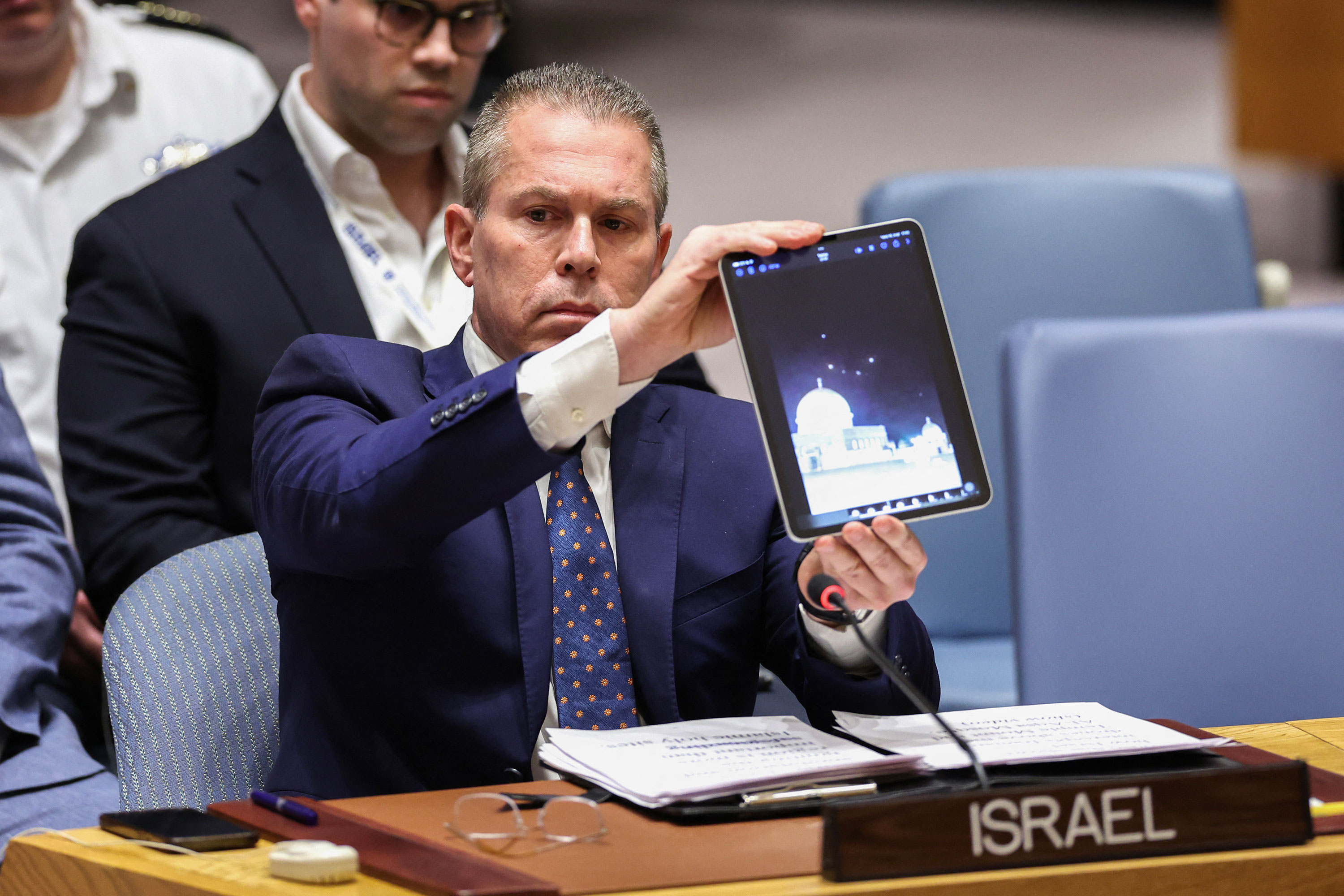
Israel and Iran’s United Nations ambassadors condemned each other’s actions during Sunday’s UN Security Council emergency session called to address Iran’s attack on Israel.
Israel’s UN ambassador Gilad Erdan said Iran "must be stopped before it drives the world to a point of no return, to a regional war that can escalate to a world war." Erdan accused Iran of seeking world domination and that its attack proved that Tehran "cares nothing, nothing for Islam or Muslims" before pulling out a tablet to show a video of Israel intercepting Iranian drones above Jerusalem’s Al-Aqsa Mosque.
Erdan called on the UN Security Council to designate the Iranian Revolutionary Guard Corps (IRGC) as a terror organization.
“Action must be taken now, not for Israel's sake, not for the region's sake, but for the world's sake. Stop Iran today."
Iran’s UN Ambassador Amir Saeid Iravani said his country’s operation was "entirely in the exercise of Iran’s inherent right to self-defense, as outlined in Article 51 of the Charter of the United Nations and recognized by international law."
Iravani said:
"This concluded action was necessary and proportionate," adding that the operation was “precise and only targeted military objectives” to reduce the potential of escalation and to prevent civilian harm. “Iran is never seeking to contribute to the spillover of the conflict in the region, nor does it to escalate or spread the tension to the entire region," he said.
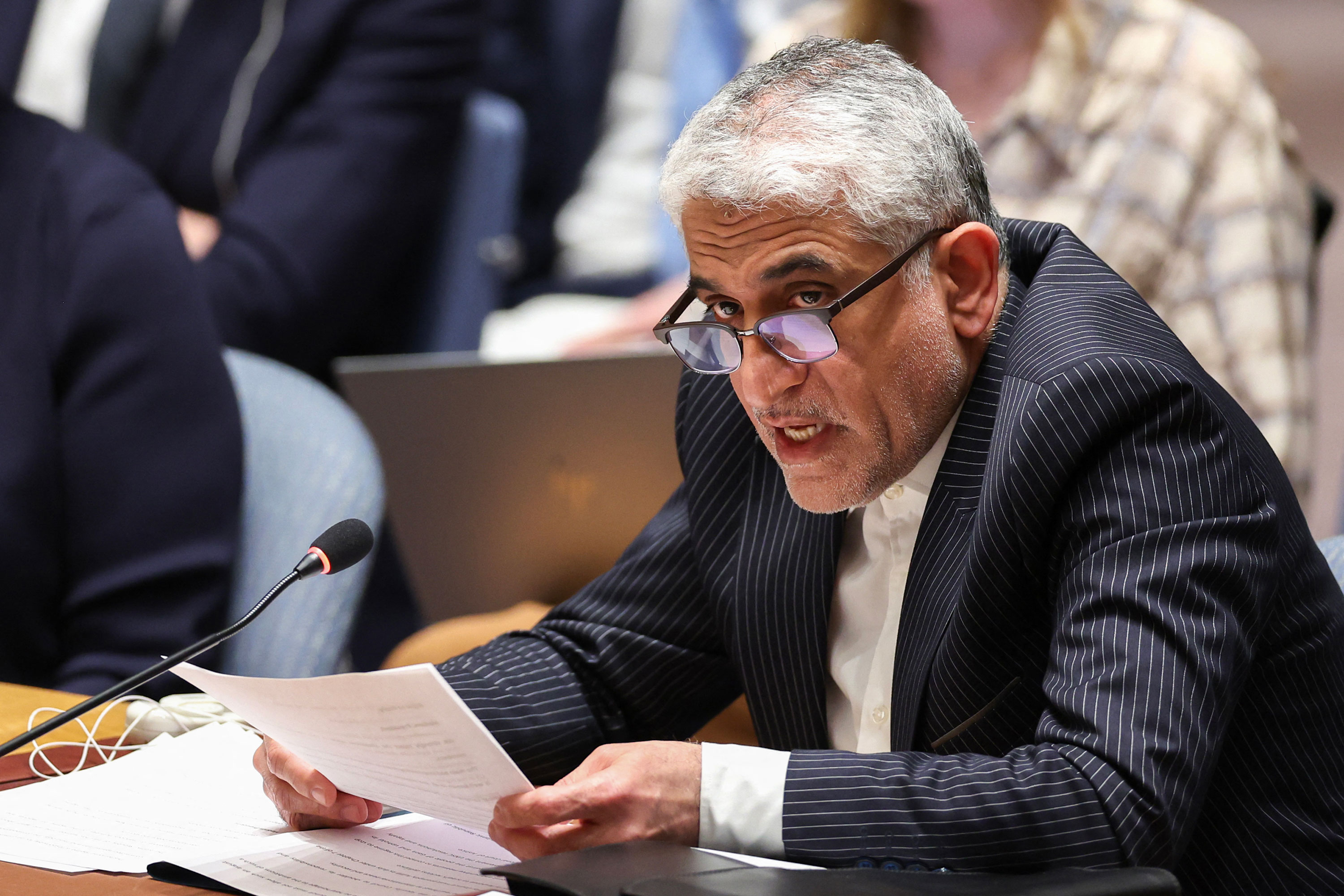
Tehran’s attack had been anticipated since a suspected Israeli strike on an Iranian diplomatic complex in Syria earlier this month.
Iravani added Iran has “no intention of engaging in conflict with the US in the region” but warned Iran will use its “inherent right to respond proportionately” should the US initiate a military operation against “Iran, its citizens or its security.”
Israeli war cabinet says it's ready to respond to Iran's attack but delays immediate action. Here's the latest
From CNN staff
The hours-long Israeli war cabinet meeting ended Sunday night without a decision on how Israel will respond to Iran’s missile and drone attack , an Israeli official said.
The cabinet is determined to respond — but has yet to decide on the timing and scope and the official said the military has been tasked with coming up with additional options for a response.
Separately, a senior Biden administration official told reporters that an Israeli official told the United States that it's not looking to significantly escalate the showdown with Iran.
CNN analyst Barak Ravid said Israeli ministers Benny Gantz and Gadi Eisenkot advocated for swift action, but US President Joe Biden's phone call with Prime Minister Benjamin Netanyahu led to a decision to delay the response until the next day.
Here are the latest headlines:
- Retaliation is over, Iran told US: Iran privately messaged the United States that its retaliation against Israel had concluded, echoing what Tehran said publicly, according to a senior administration official. Late Saturday, Iran said its attack on Israel is a response to Israel's strike on the Iranian consulate in Damascus, and "the matter can be deemed concluded." However, President Ebrahim Raisi said any “new aggression against the interests of the Iranian nation will be met with a heavier and regrettable response,” according to Iran’s state news channel IRIB.
- United Nations response: UN Secretary-General António Guterres called for a de-escalation of violence after Iran’s attack. Guterres said the United Nations and member countries have a “shared responsibility” to engage “all parties concerned to prevent further escalation.” He also called for a ceasefire in the Israel-Gaza conflict. “Neither the region nor the world can afford more war,” he said.
- G7 and others: Amid a flurry of diplomatic activity in response to Iran's attack, the G7 nations said they would work together to "stabilize the situation" in the Middle East, according to a statement from Biden. Also, Jordan summoned Iran's ambassador in Amman on Sunday after it intercepted Iranian drones over the country.
- Meanwhile in Gaza: As thousands of Palestinians were turned away from returning to their homes in northern Gaza on Sunday, a 5-year-old girl was shot in the head by Israeli soldiers, her mother said. Video showed a man carrying a 5-year-old girl named Sally Abu Laila, who was bleeding from her head, with people crowding around her in panic trying to cover her wound.
Also on Sunday:
- Israel decided to lift its restrictions on large gatherings and to reopen schools on Monday.
- The US Department of Homeland Security has not identified any “specific or credible threats” to the US since Iran attacked Israel.
Blinken calls Turkish, Egyptian, Jordanian and Saudi counterparts following Iran's attack
US Secretary of State Antony Blinken on Sunday spoke with his counterparts in Turkey, Egypt, Jordan, and Saudi Arabia following Iran's attacks in Israel, according to readouts from the State Department.
During his phone calls, Blinken emphasized the importance of avoiding escalation in the region and the importance of "a coordinated diplomatic response."
In his conversation with Jordan and Egypt, Blinken also underlined the significance of achieving an "enduring end to the crisis in Gaza."
Iran will be held responsible if any action is taken against the US or Israel, deputy ambassador warns
From CNN’s Abel Alvarado

The United States warned Iran against taking any action against the US or Israel during the UN Security Council emergency session over Iran’s attack on Israel.
“Let me be clear, if Iran or its proxies take actions against the US or further action against Israel, Iran will be held responsible,” US Deputy Ambassador to the UN Robert Wood said Sunday.
The United States is “not seeking escalation, our actions have been purely defensive in nature,” adding that the “best way to prevent such escalation is an unambiguous condemnation of the council of Iran’s unprecedented large-scale attack,” he said.
The envoy reiterated US support for Israel and condemned Iran’s attack. “Iran’s intent was to cause significant damage and death in Israel,” Wood said.
Wood also said the UN Security Council had an “obligation to not let Iran’s actions go unanswered.”
“For far too long, Iran has flagrantly violated its international legal obligations,” he said before listing occasions Iran has violated UN Security Council resolutions and international law.
Wood accused Iran of being in a “broad sense complicit” of the October 7 attack on Israel by providing “significant funding and training for the military wing of Hamas.”
He added the US will explore "additional measures to hold Iran accountable here in the UN.”
Please enable JavaScript for a better experience.

IMAGES
VIDEO
COMMENTS
Travel British Words and Phrases. Travel in the UK is an adventure filled with unique experiences, and the language used in this context is equally distinctive. From navigating the 'Tube' in London to understanding the difference between a 'motorway' and a 'dual carriageway,' these British Words and Phrases are crucial for anyone ...
A tale of two variants. What to Know. When it comes to spelling the forms of the verb travel, traveled and traveling are more common in the U.S., and travelled and travelling are dominant everywhere else. Spelling is typically clear-cut in modern English: forty unfailingly betrays four; the sweet treat after dinner is spelled dessert, not desert.
Travelling (with two Ls) is the preferred spelling in British English and is used much more frequently than is traveling. The graph below shows the use of travelling vs. traveling (as a percentage of all words used) in British English books, journals, and magazines from 1800 to 2008.
Traveling or travelling? The verb travel, which is to "go from one place to another, especially over a long distance", uses different spellings based on UK English and US English:. British English spells " travelling " with the double "L".; American English spells " traveling " with one "L".; The same goes with other verb forms of "travel" in the past tense i.e ...
English is often used in travel situations as a common language which many people can speak. This means that knowing some English phrases can make your trip safer and more fun, even if you're not traveling to a place where English is the official language. Travel is also an amazing reason to improve your English.
1. Using "Traveling" When Referring To British English. One common mistake people make is using "traveling" when writing in British English. In British English, the correct spelling is "travelling" with two L's. Using "traveling" in this context is incorrect and can make your writing appear unprofessional. 2.
Air Travel Vocabulary and Sample Sentences. Airport: I went to the airport to catch a flight to San Francisco. Check in: Make sure to get to the airport two hours early to check in. Fly: I like to fly on the same airline to get mileage points. Land: The airplane will land in two hours. Landing: The landing took place during a storm.
Gate. A gate is where you will enter to get to the airplane. It is also the place where you wait before boarding your flight. The gate is usually written on your boarding pass. Restroom. A restroom is a place where you take care of personal business like combing your hair, washing your face or using the toilet.
Canada is one of the Commonwealth Countries: more than 50 nations that once were part of the British Empire. Hence, Canada uses the double - L rule, and if you're in Quebec City, the correct spelling is: Travelling. Other Commonwealth Countries that use the "two L" spelling (Travelled, Traveller, and so on) include Australia, South ...
The American and British Spelling Dilemma. The unique paths of language development and educational standards in the United States and the United Kingdom contribute to the spelling variations witnessed in American vs. British English.One such example is the difference in spelling of the word "traveling" in American English and "travelling" in British English.
In short, 'travelling' is the British English spelling, and 'traveling' is the American English spelling. Table of Contents. The Difference Between 'Travelling' or 'Traveling' ... including American vs. British words, visit our blog. We've covered many commonly misspelled and misunderstood words and will continue to cover many more!
"Travelling" or "traveling" as a noun. The word "travel" refers to the noun form of the verb "to travel." The word "travel" is spelled the same way in both British and American English, with only one "l". The following examples will show you the usage of the noun "travel".
We've curated a list of 40 essential English words and phrases that will prove to be your best companions on your travels. +33 1 77 47 03 44; Contact Us ... which features 200 essential English words and phrases for travel, plus 2 special bonuses! We hope this guide will be a valuable resource for your travel adventures. Whether you're ...
Travel Vocabulary: Using English for Travel Travel vocabulary is one of the most useful areas of language learning today, as more people than ever are travelling far and wide for business and pleasure. There are many useful words and phrases we use when travelling and dealing with transport. Although our travel plans have been put
100+ Travel words: depart, arrive, transfer, splash out, check-in, accommodation, currency, take off, landing, alarm and more ›››› ... Home English Vocabulary 100 + Travel Words explained 🛫🏝 ️ Best Free Lesson. English Vocabulary; Infographics; 100 + Travel Words explained 🛫🏝 ️ Best Free Lesson. By. Amina - April 11 ...
helicopter. parachute. airport. hangar. control tower. air traffic controller. runway. Explore the British English vocabulary of Travel in this sound integrated guide. Touch or place your cursor over an object to hear it pronounced aloud.
Travelling is going from a place to a distant place. Movement of people is considered as travel. People travel by many vehicles such as car, bus, plane, train or ship. These are called means of transport. ⬤ Pictures of travel vocabulary with pronunciations. Here is a list of travel vocabulary in English with pictures.
Welcome to our Travel English section! If you're planning a trip, and would like to learn/practice common English phrases used by travelers, we offer 60 free exercises that will help you do this. This is much more than a simple English phrase book. It's a collection of interactive exercises designed to assist you in a wide variety of possible ...
17 Essential Travel Vocabulary - Words 1-5. 1. Book (a flight) A book is something you read (a noun), but the verb "to book" means "to reserve.". If you "book a flight," that means you reserve a flight. I booked a flight to Buenos Aires. Now I need to book an accommodation.
Transport and Travel Scene 2 - Language Focus. Rob the teacher talks about using the past simple and the present perfect. 7. In this episode, Stephen and Ashlie have a friend called Jazz visiting from abroad. They take Jazz on a trip around London to see the sights and famous places.
Personal online tutoring. EnglishScore Tutors is the British Council's one-to-one tutoring platform for 13- to 17-year-olds. Find out more. Vocabulary exercises to help learn words to talk about air travel.
Find 69 different ways to say TRAVELLING, along with antonyms, related words, and example sentences at Thesaurus.com.
Then you NEED to know these 麟 'travel' words in English! 邏 Swipe through our vo...". BBC Learning English | Do you like ️ travelling around the world?
Pace yourself when drinking alcohol. The bars and clubs stay open really late in parts of Greece. Joanna Kalafatis. A lot of travelers take advantage of Greece's lax attitude toward alcohol ...
Most fliers have stronger feelings in the era of escalating seat fees and more basic economy. James Randolph is a pretty chill flier. Unless you ask him to switch seats. "99% of the time I'm ...
What It Means. Something described as palpable is obvious and notable. Palpable may also be used as a synonym of tangible to describe something that can be perceived by one's sense of touch. // The tension in the courtroom was palpable as the jury foreman stood to announce the verdict. See the entry >.
A former British prime minister turned up in Washington on Monday channeling the Maga menace who once lorded it in the Oval Office and now spends his days in a dingy courtroom. Liz Truss was at ...
A major spoiler is weather, which will be a big variable in the 2026 eclipse — one Greenland, Iceland and Spain will see. "Iceland normally has a lot of cloud during that time of year," said ...
CNN —. Dubai International Airport, one of the world's busiest aviation hubs, remained in disarray Thursday after unprecedented heavy rain led to airliners having to negotiate flooded runways ...
On Saturday, Iran's Revolutionary Guards seized an Israeli-linked container ship in a helicopter operation near the Strait of Hormuz, state news agency IRNA reported. Mediterranean Shipping ...